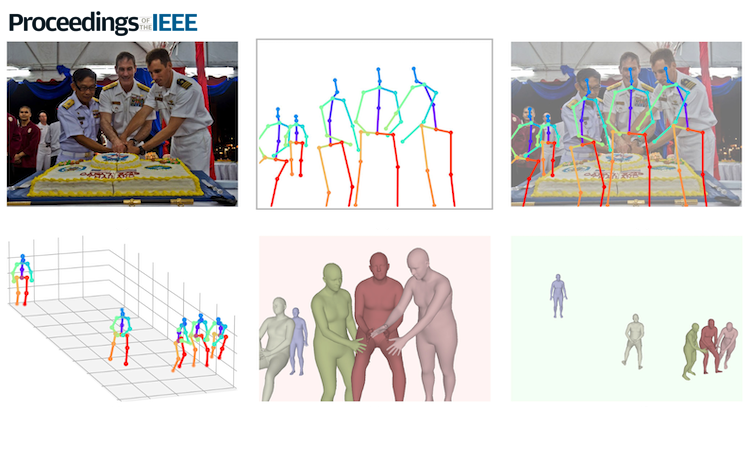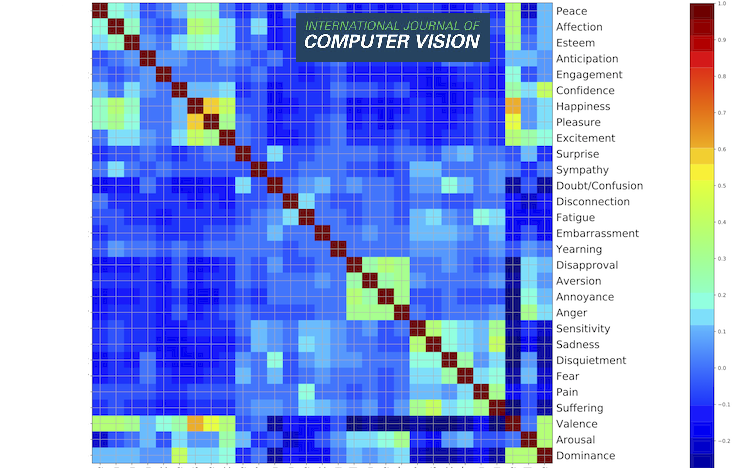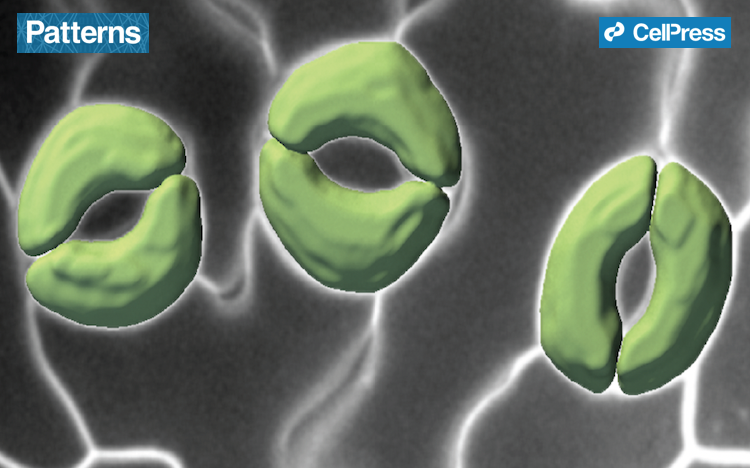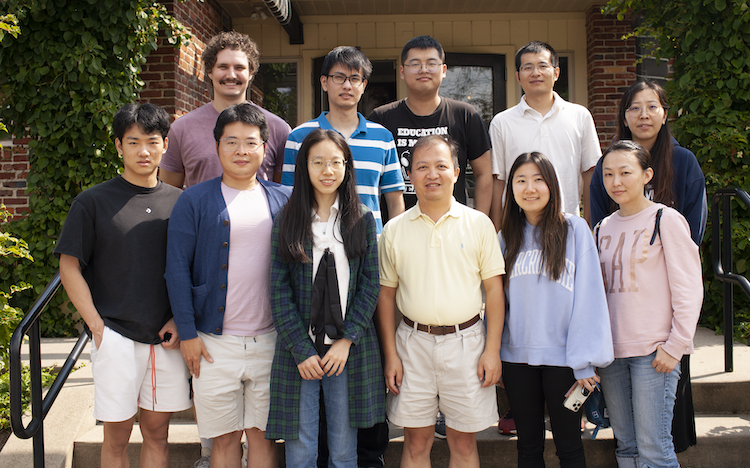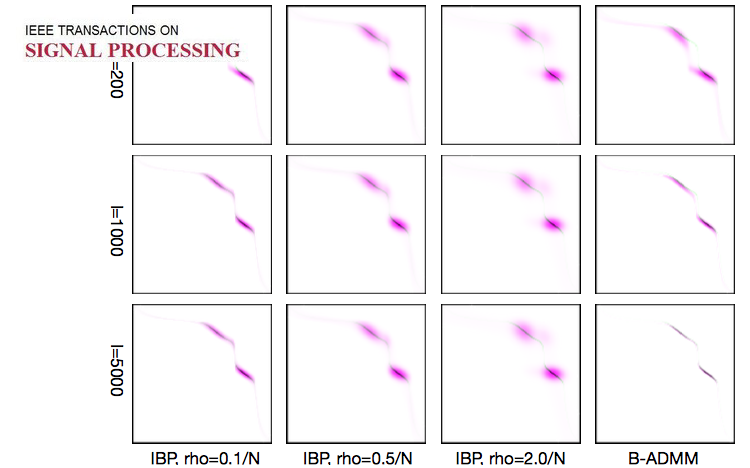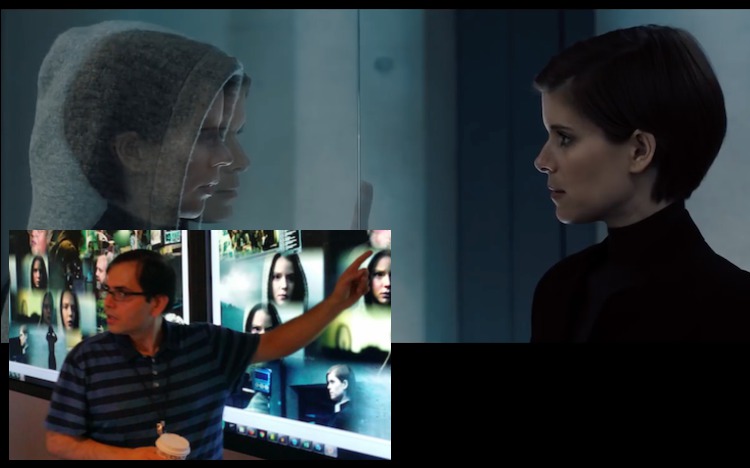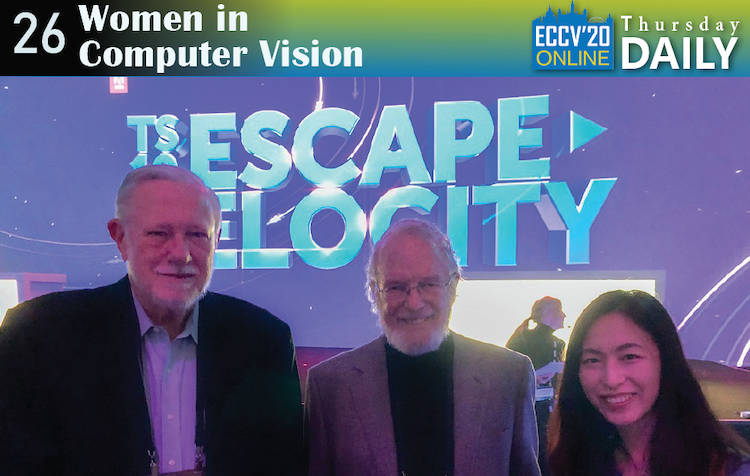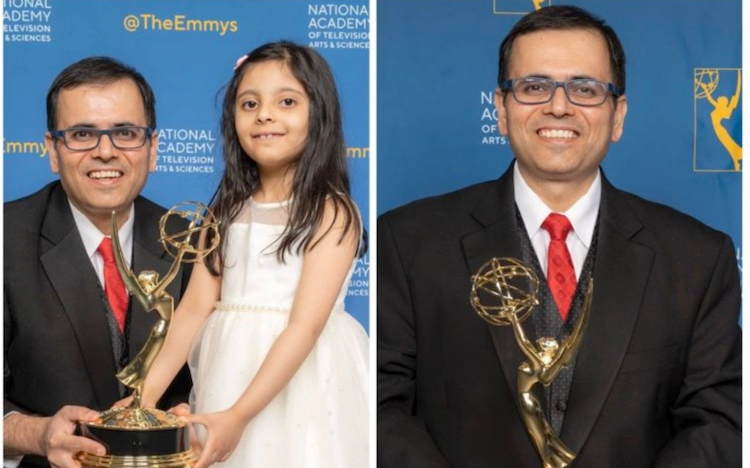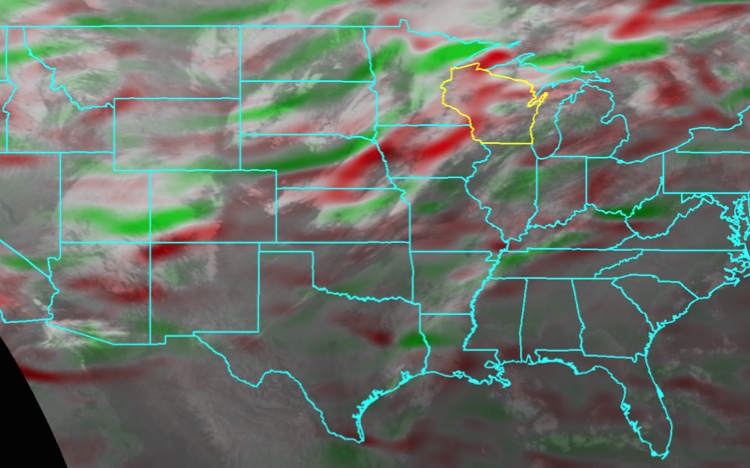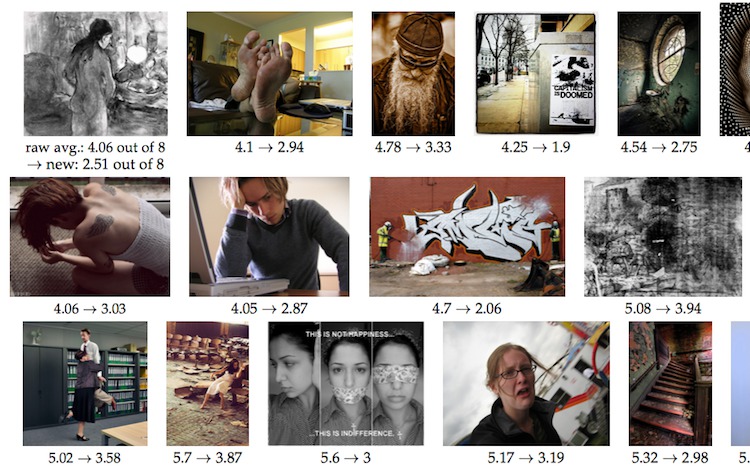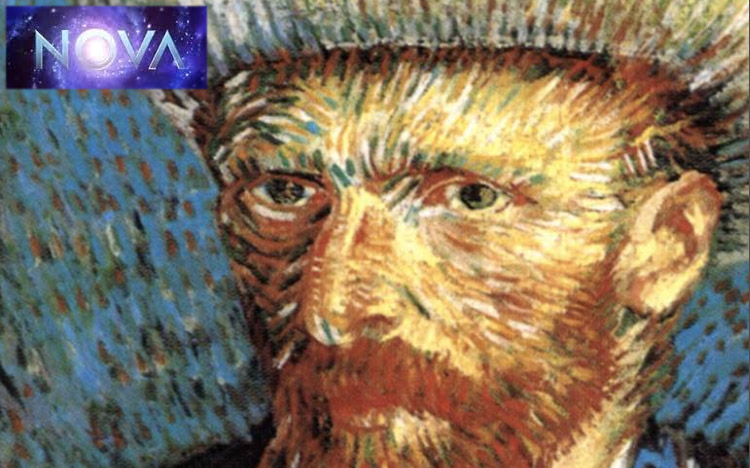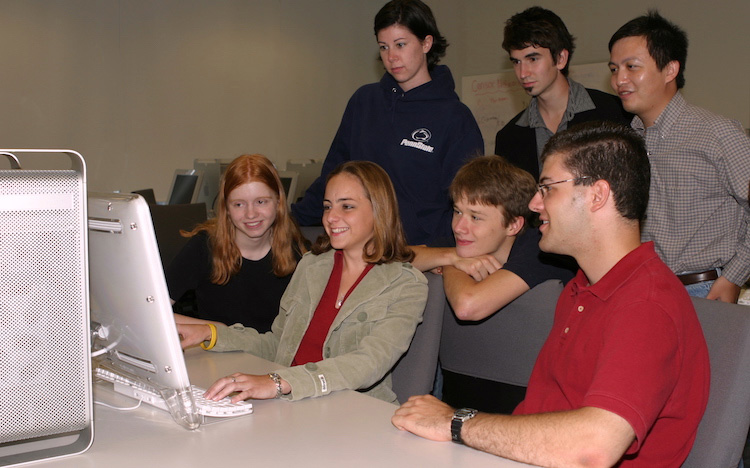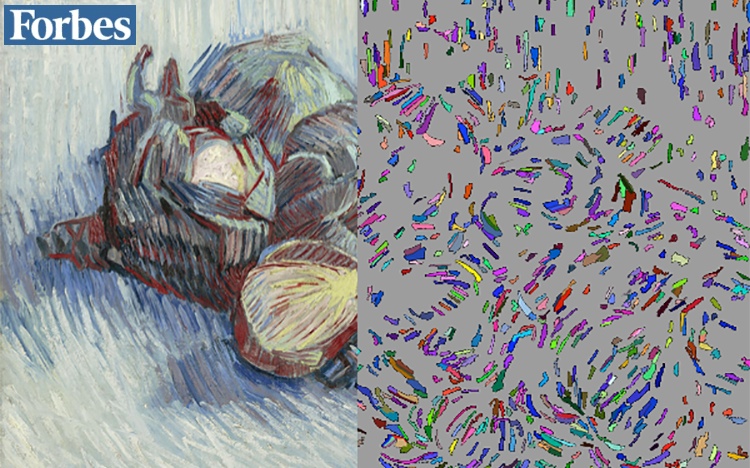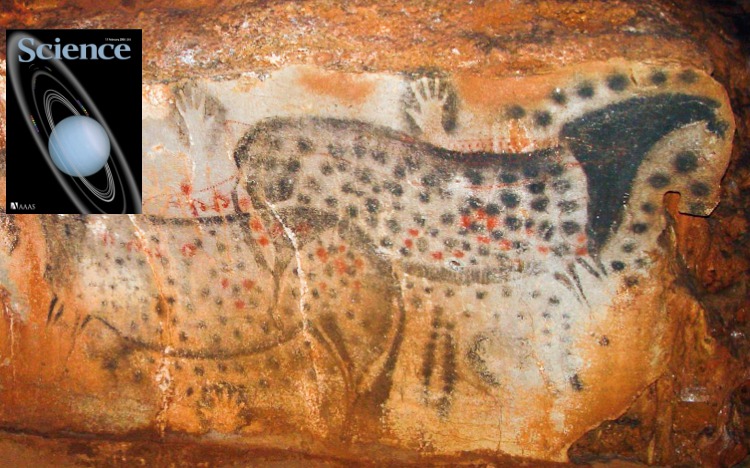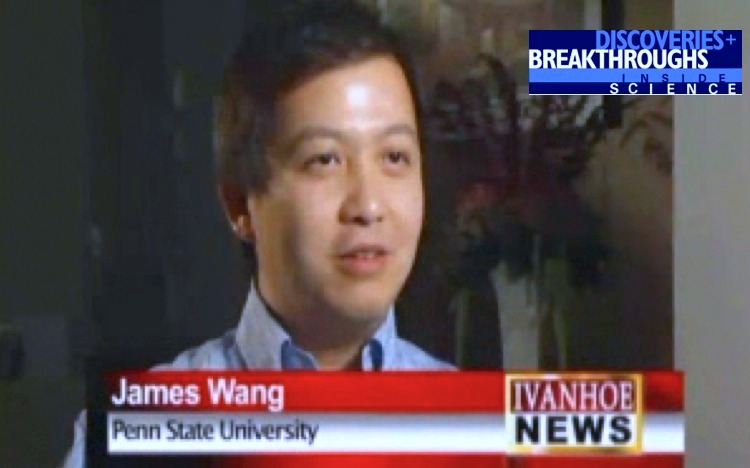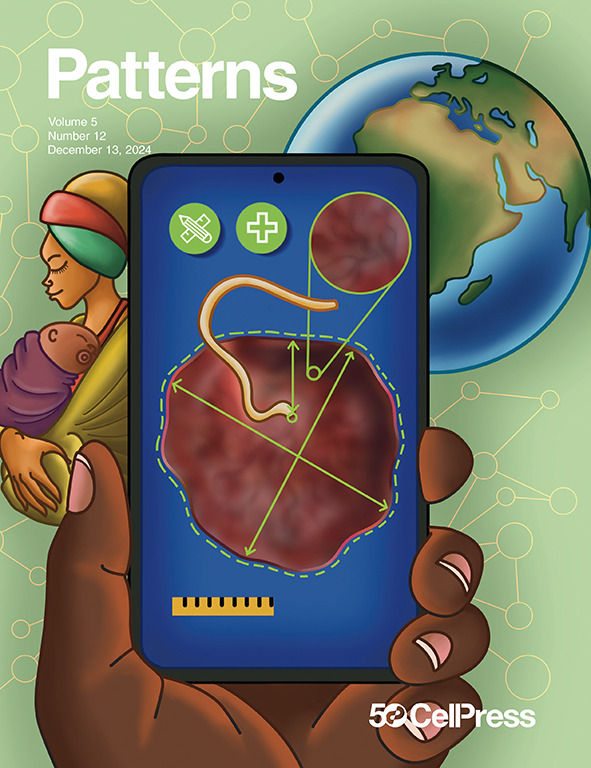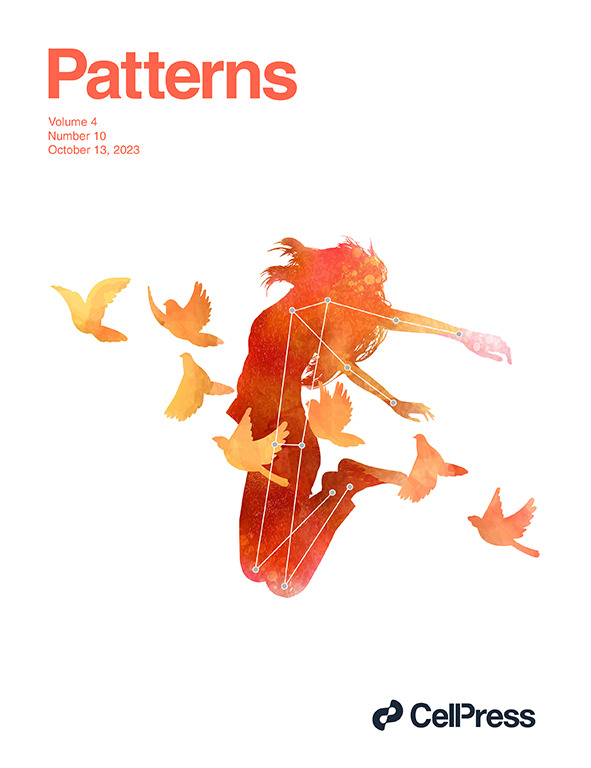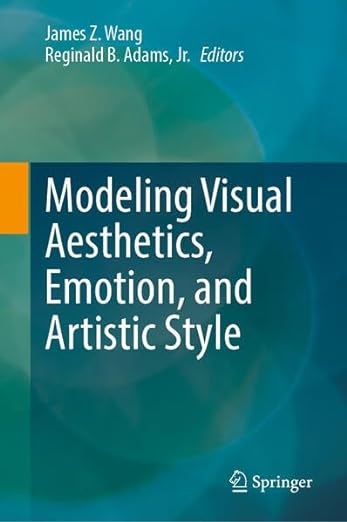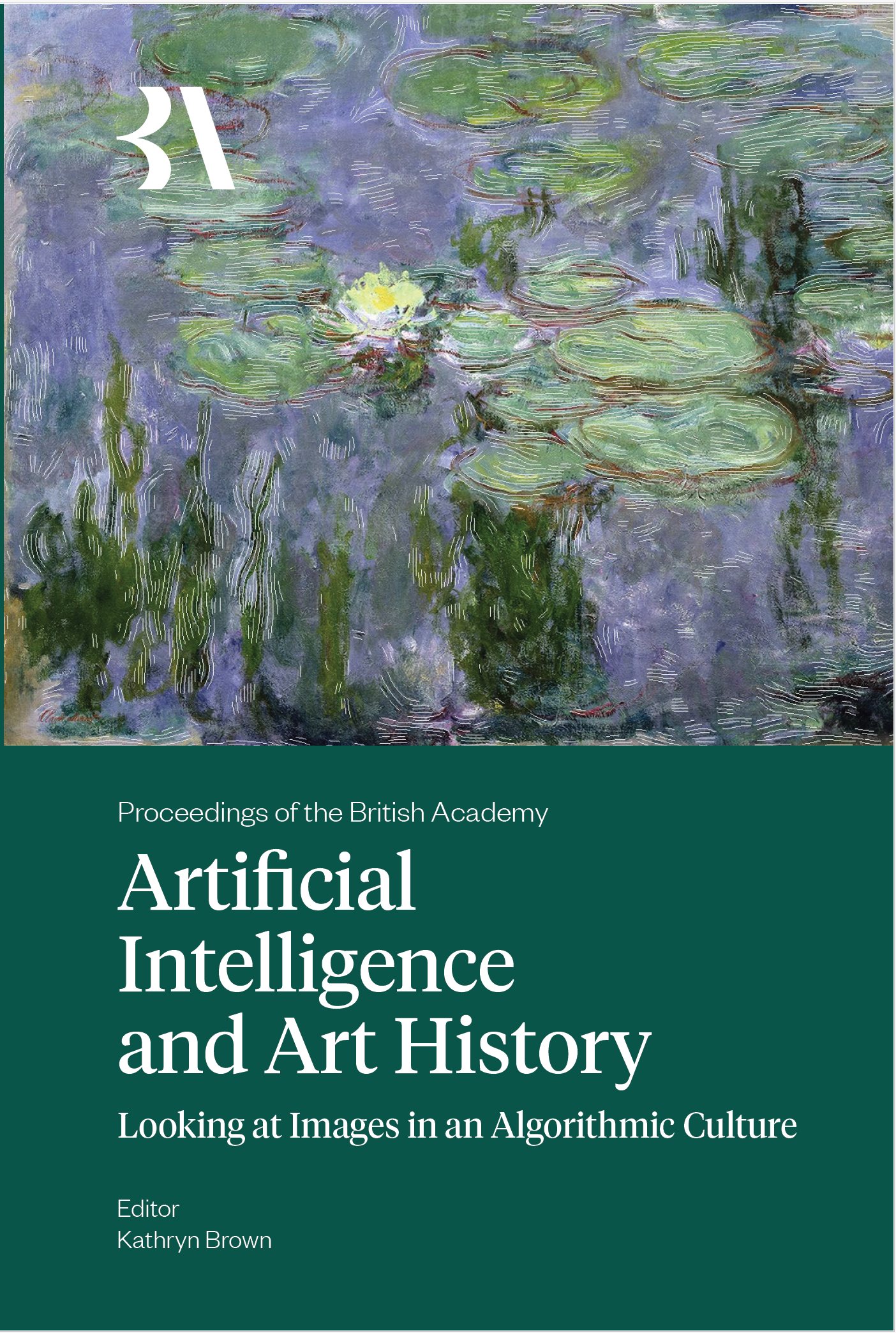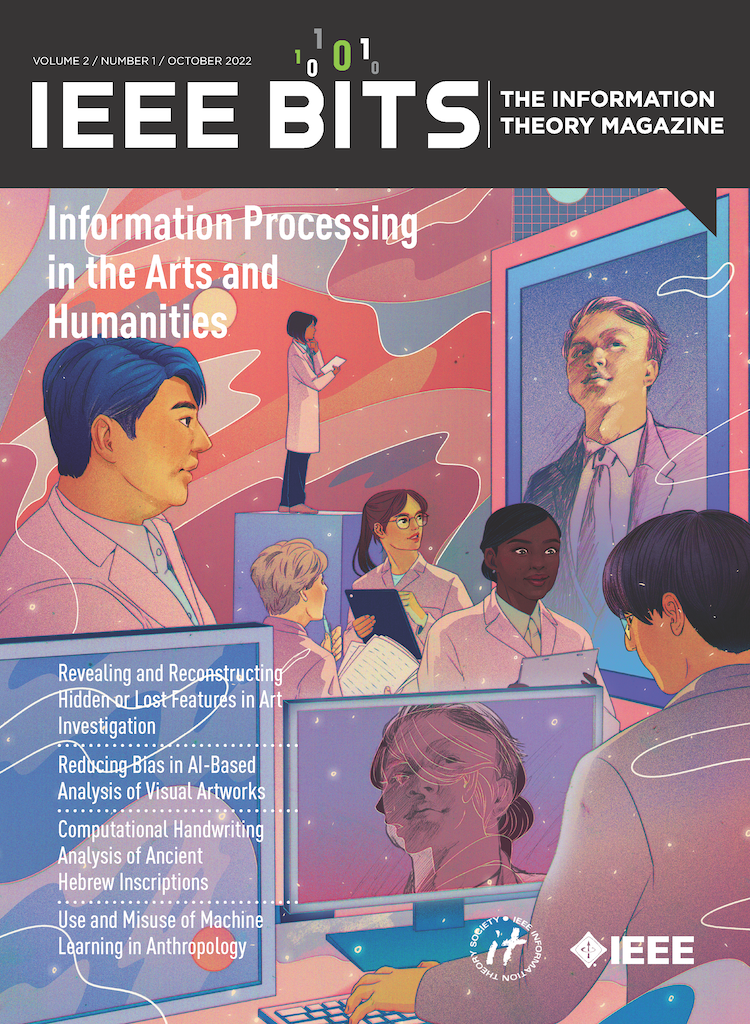Stroke E.R. DiagnosisA.I. Non-verbal Communication
ModelingObjects, Concepts, Aesthetics and Emotions in Big Visual Data
Research interests: computability of emotions, human-AI interaction, big data, biomedical informatics, visual arts, ...
In the Press-
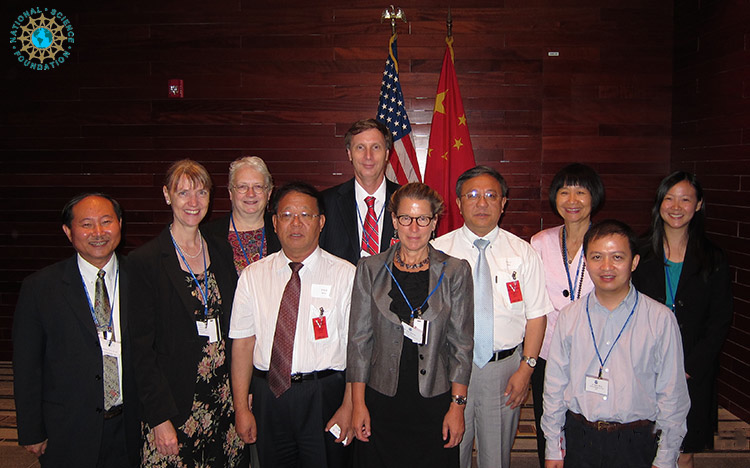
NSF delegationUS Embassy, Beijing

about us


The mission of our group is to advance knowledge related to the
analysis, management, and making sense of large and complex visual
data, and to contribute to the society through dissemination of
research findings, developing innovative solutions to real-world
problems that impact society and improve people's lives, and education
of future leaders in this field.
Our research is driven by a strong commitment to multidisciplinary
collaboration, excellence, and ethical responsibility, as we work
towards a future in which machine intelligence enhances and augments
human capabilities. The group has published two monographs and over
70 journal articles
(Google
Scholar profile). Notable technologies developed by the group
include the SIMPLIcity image retrieval
engine (at Stanford), the ALIPR real-time automatic image annotation
system, the Acquine aesthetic quality inference engine, evoked emotion
prediction system, bodily expressed emotion understanding system, and
the brushstroke style analysis methods for oil paintings.
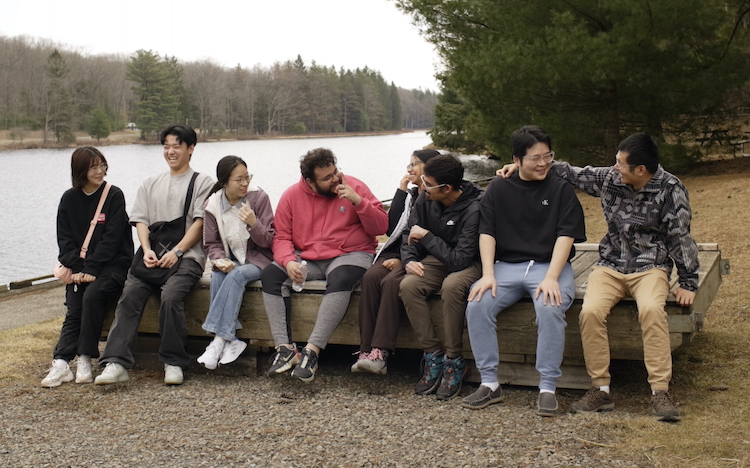
We actively engage Ph.D. and M.S. students in research.
Our past Ph.D. students have achieved great success after graduation, taking on tenure-track faculty and research scientist positions and making significant contributions in fields such as AI, robotics, autonomous driving, computer vision, data science, cloud computing, and computational photography. To learn more about our alumni, please click the "ALUMNI" link below.
During the summers, our graduate students have had the opportunity to intern at leading companies and research institutions such as Adobe Research, Amazon Lab126, Apple, AT&T Labs, Bytedance AI Lab, CMU, DeepMap.AI, Dolby, Facebook, Google Research, HP Labs, IBM Research, IDIAP Switzerland, Kodak, MathWorks, Merck Research, Meta, Nationwide, NEC Research, Pinterest, PNC, Siemens Research, SONY Research, Telefonica R&D Barcelona, Tencent, Toutiao, Twitter, Uber, Verisk Analytics, Xerox PARC, Yahoo!, and 12Sigma.
We welcome talented and motivated students with strong computational and mathematical/statistical skills to apply to join our group.
Our lab actively engages undergraduate students, with a focus on promoting participation from Schreyer Honors Scholars and underrepresented students from the WISER, MURE, FURP, and Millennium Scholars programs. Our undergraduate research students have gone on to pursue graduate studies at esteemed universities including Brown, Carnegie Mellon, Columbia, Cornell, Johns Hopkins, Tufts, Cambridge, and the University of Pennsylvania. Interested students can email Dr. Wang to discuss opportunities. Please be aware of scammers. We do NOT use social media for communication or recruitment. We do NOT use email to advertise any positions. We do NOT ask students to make any payments to us.
 Our Logo is a vibrant representation of the
multidisciplinary nature of our research foundation. Five colors
represent disciplines from which we draw knowledge and methodologies:
engineering (orange), science (golden yellow), medicine (green),
psychology, art, and humanities (dark blue), and ethics
(purple). Light blue symbolizes our educational and training mission.
At the intersection of these cores, our work in computer vision ensues.
The six light rays, shaped like a camera shutter, hint at our focus on
perception and the future.
Our Logo is a vibrant representation of the
multidisciplinary nature of our research foundation. Five colors
represent disciplines from which we draw knowledge and methodologies:
engineering (orange), science (golden yellow), medicine (green),
psychology, art, and humanities (dark blue), and ethics
(purple). Light blue symbolizes our educational and training mission.
At the intersection of these cores, our work in computer vision ensues.
The six light rays, shaped like a camera shutter, hint at our focus on
perception and the future.
About Prof. James Z. Wang

Since 2000, Dr. Wang has been a faculty member at Penn State, where he holds the position of Distinguished Professor in the Data Science and AI area and (by courtesy) the Human-Computer Interaction area of the College of Information Sciences and Technology. He is also an Affiliated Professor of the Molecular, Cellular, and Integrative Biosciences (MCIBS) Program (Option on Bioinformatics and Genomics, the Huck Institutes of the Life Sciences). He serves as the founding Co-Director of the Intelligent Information Systems Laboratory (2001-). He has served as the lead guest editor of IEEE Trans. on Pattern Analysis and Machine Intelligence Special Section on Real-world Image Annotation and Retrieval (2008), an Associate Editor of IEEE Transactions on Multimedia (2009-2011), an Associate Editor of Computerized Medical Imaging and Graphics (2019- ), a guest editor of IEEE BITS The Information Theory Magazine Special Issue on Information Processing in Arts and Humanities (2022), and an invited speaker at more than 130 institutions. He was a Visiting Professor of Robotics at Carnegie Mellon University (2007-2008) and a Program Manager in the Office of the National Science Foundation Director (2011 and 2012). These other sites [personal; g-scholar; wiki; math genealogy; FAQ] have more information.
Other pictures: 4/2000 Stanford, 9/2007, 4/2010 State College, 9/2010, 12/2013, 12/2014, 12/2015, 12/2017, 12/2019, 9/2020
Ph.D. Advisees

|
Kyuhyeok Seo kjs7552 (at) psu.edu Ph.D. Program in Informatics, Penn State, since 2025 Thesis: Committee: to be formed |
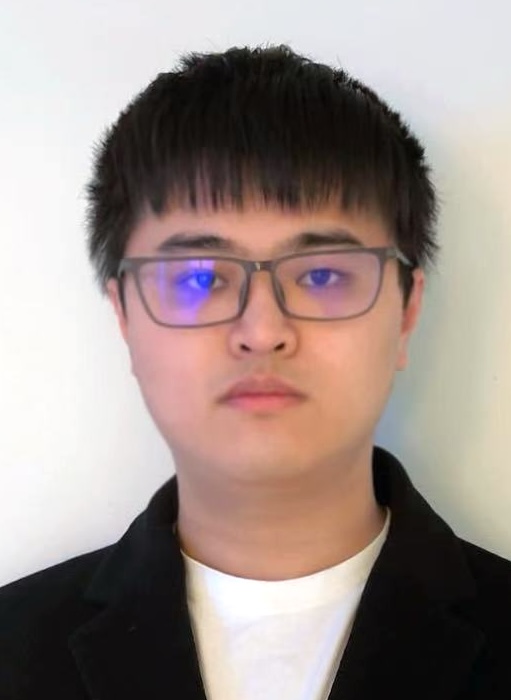
|
Zihe Wang zqw5438 (at) psu.edu Ph.D. Program in Informatics, Penn State, since 2025 Thesis: Committee: to be formed |
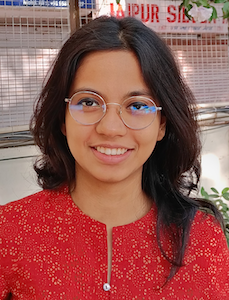
|
Sree Bhattacharyya sfb6038 (at) psu.edu Ph.D. Program in Informatics, Penn State, since 2023 Thesis: Committee: James Z. Wang (Advisor), Sharon Huang, Sarah Rajtmajer, Reginald B. Adams, Jr. |

|
Manas (Max) Mehta mvm7168 (at) psu.edu Ph.D. Program in Informatics, Penn State, since 2022 Thesis: Committee: James Z. Wang (Advisor), Sharon Huang, Kenneth Huang, Alison Gernand |

|
Sitao Zhang sitao.zhang (at) psu.edu Ph.D. Program in Informatics, Penn State, since 2020 Thesis: Committee: James Z. Wang (Advisor), Jia Li (Co-Advisor), Sharon Huang, Suhang Wang, Michelle G. Newman |

|
Lizhen Zhu ljz5180 (at) psu.edu Ph.D. Program in Informatics, Penn State, since 2020, graduation expected in 2026 Thesis: Committee: James Z. Wang (Advisor), Bradley P. Wyble (Co-Advisor), Sharon Huang, Amulya Yadav, Hyungsuk Tak |
|
Graduating doctoral advisees are listed under the Alumni tab (above). |
M.S. Advisees
Zixuan Zhao, Informatics, since 2025
Postdoctoral Scholar
Devdhar Patel, NSF-funded Projects, 2025-
Undergraduates and Honors Students
Krisha Patel, Biomedical Engineering, Schreyer Honors College, 2025-
Samyan Nakkella, Computer Science, Schreyer Honors College, 2025-
Eesha Jadhav, Computer Science, Schreyer Honors College, 2025-
Leona Chen, Computer Science, Schreyer Honors College, 2025-
Jonathan Chen, Computer Science, 2025-
Rishita Aruna Penmetsa, Computer Science, Schreyer Honors College, 2025-
Ziqi Gao, Computer Science and minor in Mathematics, 2024-
Anushcka Joshi, Computer Science, 2024-
Aneesh Singh, Computer Science, Schreyer Honors College, 2022-
Current SponsorsWe are Grateful to our Sponsors
Our general scientific research has been primarily supported by the US National Science Foundation. Any opinions, findings, and conclusions or recommendations expressed in this material are those of the author(s) and do not necessarily reflect the views of the National Science Foundation.
Our medical research has been primarily supported by the US National Institutes of Health. The content is solely the responsibility of the authors and does not necessarily represent the official views of the National Institutes of Health. We are also funded by the Burroughs Wellcome Fund.
Among others, we are also supported by Amazon.com, Inc., the National Endowment for the Humanities, and the Houston Methodist Hospital,
Our college and other units at Penn State have been very supportive of our work. Our work uses the ACCESS Cyberinfrastructure (formerly Extreme Science and Engineering Discovery Environment, XSEDE), which is supported by the NSF.

|
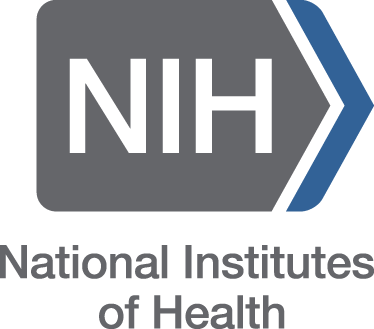
|

|

|

|

|
Graduated or Soon-to-Graduate Ph.D. Advisees
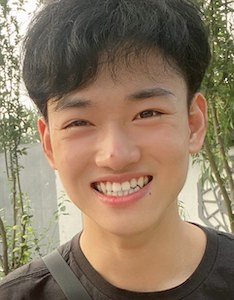
|
22. Yimu Pan, Mistral AI, Palo Alto, CA. ymp5078 (at) psu.edu Ph.D. Program in Informatics, Penn State, Spring 2026 Thesis: Harnessing Multimodal and External Knowledge for Robust Learning Under Imperfect Data Conditions Committee: James Z. Wang (Advisor), Sharon Huang, Kenneth Huang, Alison Gernand, Jeffery A Goldstein (Northwestern) |
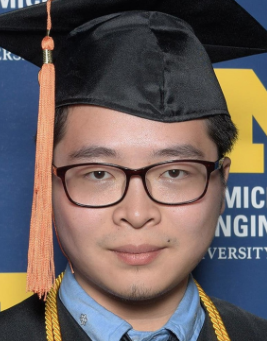
|
21. Tongan Cai, Machine Learning Scientist, Samsara Inc., San Francisco, CA. (g-scholar) cta (at) psu.edu Ph.D. Program in Informatics, Penn State, Spring 2025 Thesis: Multimodal Approaches Towards Computer-Aided Oral-Facial Diagnoses of Cerebrovascular Accidents (Download) Committee: James Z. Wang (Advisor), Sharon Huang, Justin Silverman, Jia Li |
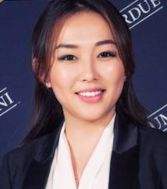
|
20. Dolzodmaa Davaasuren, Software Engineer II (ML), Uber, San Francisco, CA. (g-scholar) dud240 (at) psu.edu, dolzodmaa (at) gmail.com Ph.D. Program in Informatics, Penn State, Spring 2025 Thesis: Automated Plant Cell Morphology through Volumetric Image Segmentation and Placenta Pathology Analysis from Photos (Download) Committee: James Z. Wang (Chair), Sharon Huang, Justin Silverman, Alison Gernand, Charles T. Anderson |

|
19. Chenyan Wu, Research Scientist, Meta, CA. (g-scholar) czw390 (at) psu.edu, wcyandzrx (at) gmail.com Ph.D. Program in Informatics, Penn State, Spring 2024 Thesis: Spatial, Temporal, and Morphological Perspectives: Advancing Understanding of Visual Data Depicting Humans (Download) Committee: James Z. Wang (Chair), Sharon Huang, C. Lee Giles, Zihan Zhou (former), Alison Gernand |
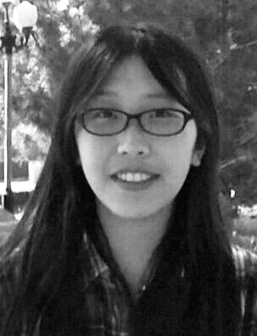
|
18. Zhuomin Zhang, Applied Scientist II, Amazon, Seattle, WA. (g-scholar) jomine94 (at) gmail.com Ph.D. Program in Informatics, Penn State, Summer 2023 Thesis: Cross-Domain Image Analysis Approaches Towards Segmentation of Placenta Photos and Pictorial Realism Study of Paintings (Download) Committee: James Z. Wang (Advisor), Jia Li (Co-Advisor), Sharon Huang, Suhang Wang, Elizabeth C. Mansfield, Fuqing Zhang (past member) |

|
17. Farshid Farhat, Software Engineer, AMD, Santa Clara, CA. (g-scholar) farshid.farhat (at) gmail.com Ph.D. Program in Computer Science and Engineering, Penn State, Summer 2021 Thesis: Comprehensive Photographic Composition Assistance through Meaningful Exemplars (Download) Committee: J. Barlow (Advisor), J. Z. Wang (Co-Advisor), J. Li, R. T. Colins, W.-C. Lee, Z. Zhou |

|
16. Yu Luo, Research Scientist, Amazon Lab126, Sunnyvale, CA. (g-scholar) yuluo.psu (at) gmail.com Ph.D. Program in Informatics, Penn State, Summer 2021 Thesis: Towards Automated Recognition of Bodily Expression of Emotion in the Wild (Download) Committee: J. Z. Wang (Advisor), J. Li (Co-Advisor), M. B. Rosson, Z. Zhou, R. B. Adams, Jr. |

|
15. Mohammad M. Kamani,
Sr. Member of Technical Staff, AMD, Santa Clara, CA. (g-scholar)
mohamadmahdi.kamani (at) gmail.com Ph.D. Program in Informatics, Penn State, Fall 2020 Academic Computing Fellow, Penn State, 2017-2020 Thesis: Multiobjective Optimization Approaches for Bias Mitigation in Machine Learning (Download) Committee: J. Z. Wang (Advisor), Mehrdad Mahdavi (Co-Advisor), C. L. Giles, X. Zhang, C. E. Forest, J. Li |

|
14. Xinye (Rachel) Zheng, Research Scientist, Facebook, Inc., Menlo Park, CA. (g-scholar) zhengxinye (at) gmail.com Ph.D. Program in Informatics, Penn State, Summer 2020 Thesis: Computational Approaches towards Pattern Recognition and Matching for Scientific Images (Download) Committee: J. Z. Wang (Advisor), J. Li (Co-Advisor), S. Abdullah, A. Squicciarini, C. E. Forest |

|
13. Yukun Chen, Senior Research Scientist, Instagram (Meta), Menlo Park, CA. (g-scholar) cykustc (at) gmail.com Ph.D. Program in Informatics, Penn State, Spring 2020 Thesis: Aggregated Wasserstein Distance for Hidden Markov Models and Automated Morphological Characterization of Placenta from Photos (Download) Committee: J. Z. Wang (Advisor), J. Li (Co-Advisor), X. Xing, X. Zhang, D. Wang (Northwestern), D. Hunter |

|
12. Baris Kandemir, System Software Engineer, NVIDIA, Santa Clara, CA. (g-scholar) bariskand (at) gmail.com Ph.D. Program in Informatics, Penn State, Spring 2019 Thesis: Aesthetic and Affective Applications of Visual Features and Physical Property Analysis of Plant Stomata Through Active Surfaces (Download) Committee: J. Z. Wang (Advisor), J. Li (Co-Advisor), Z. Zhou, R. Adams, Jr., C. Anderson |

|
11. Jianbo Ye, Senior Applied Scientist, Amazon AWS AI, Sunnyvale, CA. (g-scholar) jianboye.ai (at) gmail.com Ph.D. Program in Information Sciences and Technology, Penn State, Spring 2018 Thesis: Computational Modeling of Compositional and Relational Data Using Optimal Transport and Probabilistic Models (Download) Committee: J. Z. Wang, J. Li (Co-Chairs), C. L. Giles, Z. Li, R. Adams, Jr. |

|
10. Xin Lu, TikTok (Bytedance), CA. (g-scholar) xinlu.psu (at) gmail.com Ph.D. Program in Information Sciences and Technology, Penn State, Spring 2016 Thesis: Visual Characteristics for Computational Prediction of Aesthetics and Evoked Emotions (Download) Committee: J. Z. Wang (Chair), M. B. Rosson, R. Adams, Jr., M. Newman, J. Li |

|
9. Yu Zhang, Senior System Software Engineer, NVIDIA, Santa Clara, CA. (g-scholar)
ryanflower (at) gmail.com Ph.D. Program in Information Sciences and Technology, Penn State, Spring 2015 Thesis: Discrete Distribution Clustering in Big Data and a Method for Storm Prediction Leveraging Large Historical Archives (Download) Committee: J. Z. Wang, J. Li (Co-chairs), C. L. Giles, A. Squicciarini, C. E. Forest |
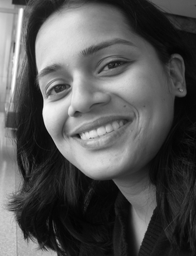
|
8. Neela Sawant, Head of Data Science and ML Research, Dolby Advanced Technology Group, Dolby, Karnataka, India. (g-scholar)
neela.sawant (at) gmail.com Ph.D. Program in Information Sciences and Technology, Penn State, Summer 2013 Thesis: Statistical Modeling of Image Semantics from Imperfectly Labeled Datasets (Download) Committee: J. Z. Wang, J. Li (Co-chairs), C. L. Giles, J. M. Carroll, R. Albert |
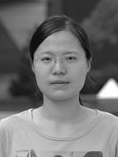
|
7.
Lei Yao, Software Engineer, Pinterest, San Francisco, CA. (g-scholar)
simplely (at) gmail.com Ph.D. in Information Sciences and Technology, Penn State, Summer 2013 Thesis: Automated Analysis of Composition and Style of Photographs and Paintings (Download) Committee: J. Z. Wang, J. Li (Co-chairs), D. L. Hall, X. (L.) Zhang, P. J. McGrady |

|
6.
Mu Qiao, co-founder and CTO, Pharmolix (startup), Tsinghua University, Beijing, China. (g-scholar)
muq103.cse.psu (at) gmail.com Ph.D. in Computer Science and Engineering, Penn State, Fall 2012 Thesis: Mixture Modeling for Complex and Large-Scale Data with Applications (Download) Committee: J. Li (Advisor), J. Z. Wang (Co-advisor), D. Kifer (Co-Chair), J. Barlow, L. Zhang |

|
5.
Professor Brian A. Canada, Chair, Department of Computer Science, and Associate Professor with tenure, Computational Science, University of South Carolina, Beaufort, SC.
(g-scholar)
bcanada (at) uscb.edu Ph.D. in Integrative Biosciences, Penn State, Fall 2010 Thesis: Augmentation of the Zebrafish Phenomic Landscape by Histological Analysis and Content-based Image Retrieval (Download) Committee: J. Z. Wang, K. Cheng, K. Weiss (Co-chairs), J. Richtsmeier, W. Miller (Computational Science Minor) |
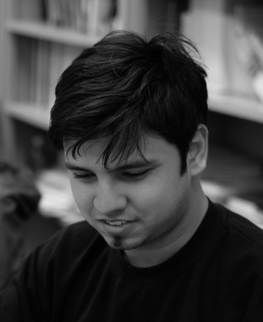
|
4. Ritendra Datta,
Head of Applied AI/Senior Director of Engineering, Databricks, Inc., San Francisco, CA.
(g-scholar)
ritendra.datta (at) gmail.com Ph.D. in Computer Science and Engineering, Penn State, Spring 2009 Thesis: Semantics and Aesthetics Inference for Image Search: Statistical Learning Approaches (Download) Committee: J. Z. Wang (Chair), J. Li (Co-Chair), R. Collins, C. L. Giles, D. Miller, B. Urgaonkar |
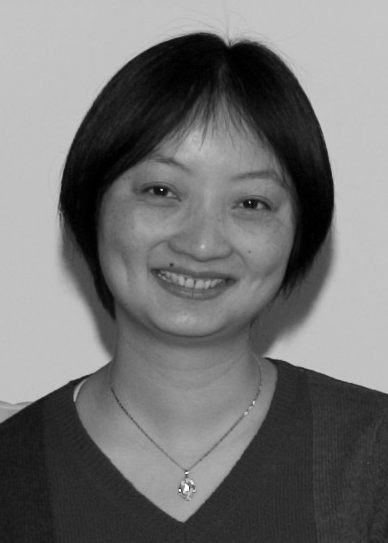
|
3. Xiaonan Lu, independent scientist, Seattle, WA.
(g-scholar)
xlu (at) cse.psu.edu Ph.D. in Computer Science and Engineering, Penn State, Fall 2008 Thesis: Image Analysis and Metadata Extraction for Document Retrieval (Download) Committee: J. Z. Wang (Chair), L. Giles (Co-Chair), W.-C. Lee, D. Miller, C. Zhu |

|
2. Dhiraj
Joshi,
Senior Research Scientist, IBM T. J. Watson Research Center, New York.
(g-scholar)
dhirajjoshi16 (at) gmail.com Ph.D. in Computer Science and Engineering, Penn State, Summer 2007 Thesis: Image Analysis and Retrieval by Spatial Models and Information Integration (Download) Committee: J. Z. Wang (Chair), J. Li (Co-Chair), R. Collins, D. Hunter, W.-C. Lee |

|
1. Professor Yixin
Chen,
Chair and Professor, Computer and Information Science, University of Mississippi, Oxford.
(g-scholar)
ychen (at) cs.olemiss.edu Ph.D. in Computer Science and Engineering, Penn State, Summer 2003 Thesis: A Machine Learning Approach to Content-based Image Indexing and Retrieval (Download) Committee: J. Z. Wang (Chair), C. L. Giles, J. Yen, J. Li, D. Richards |
Graduated M.S.
|
Benjamin Wortman, Data Scientist, Finra bvw5146 (at) psu.edu, Informatics, Penn State, graduated in December 2022 Scholarly Paper: HICEM: A High-Coverage Emotion Model for Artificial Emotional Intelligence | |
|
Lizhen Zhu, Penn State, PhD candidate ljz5180 (at) psu.edu, Informatics, Penn State, graduated in May 2022 Thesis: Contrastive Visual Learning from Spatiotemporal Information | |
|
Li Yu, Computer Vision Engineer, Blue River Technology (John Deere) luy133 (at) psu.edu, Informatics, Penn State, graduated in May 2021 Thesis: Explainable Image Classification based on Positive Gradient Distance | |
|
Siqiong He, Senior Software Engineer, Google sxh415 (at) psu.edu, Information Sciences and Technology, Penn State, graduated in May 2015 Thesis: Modeling Photographic Composition via Triangles | |
|
Poonam Suryanarayan, Engineering Manager, Foundational Driving, Cruise pzs126 (at) psu.edu, Electrical Engineering, Penn State, graduated in 2011 Thesis: A Compputational Approach for Understanding the Aesthetics of Gray Scale Images | |
|
AdityaGiri Valluri, Hardware Applications Engineer, Microsemi, CA azv114 (at) psu.edu, Electrical Engineering, Penn State, graduated in May 2009 Thesis: Navigation Through Automated Image Understanding and Retrieval | |
|
Ashish Parulekar, Director of Data Science and Analytics, Workforce Staffing, Amazon, Arlington, VA Electrical Engineering, Penn State, graduated in December 2005 Thesis: Large-scale Satellite Image Browsing using Automatic Semantic Categorization and Content-based Retrieval | |
Other past members and some current collaborators are listed here.
Research Interests
Our research group concentrates on the interdisciplinary study of A.I., Data Science, Life Sciences, Sustainability, Robotics, Health Care, Mental Health, and Visual Art. We invite you to explore our latest publications in these areas.
Publications
This material is presented to ensure the timely dissemination of scholarly and technical work. Copyright and all rights therein are retained by authors or by other copyright holders. All persons copying this information are expected to adhere to the terms and constraints invoked by each author's copyright. In most cases, these works may not be reposted without the explicit permission of the copyright holder.
Representative Publications
[ Ordered by estimated impact. Use the navigation bottons to view all publications. ]- Ritendra Datta, Dhiraj Joshi, Jia Li and James Z. Wang, ``Image Retrieval: Ideas, Influences, and Trends of the New Age,'' ACM Computing Surveys, vol. 40, no. 2, article 5, pp. 5:1-60, April 2008. [An abstract was published in Proc. ACM Multimedia Information Retrieval, 2005] (download) (g-scholar)
- James Z. Wang, Sicheng Zhao, Chenyan Wu, Reginald B. Adams, Jr., Michelle G. Newman, Tal Shafir and Rachelle Tsachor, ``Unlocking the Emotional World of Visual Media: An Overview of the Science, Research, and Impact of Understanding Emotion,'' Proceedings of the IEEE, vol. 111, no. 10, pp. 1236-1286, 2023. (download) (g-scholar)
- Jia Li and James Z. Wang, ``Automatic Linguistic Indexing of Pictures by a Statistical Modeling Approach,'' IEEE Transactions on Pattern Analysis and Machine Intelligence, vol. 25, no. 9, pp. 1075-1088, 2003. [An abstract was published in Proc. ACM Multimedia, 2002] (download) (g-scholar)
- James Z. Wang, Jia Li and Gio Wiederhold, ``SIMPLIcity: Semantics-Sensitive Integrated Matching for Picture Libraries,'' IEEE Transactions on Pattern Analysis and Machine Intelligence, vol. 23, no. 9, pp. 947-963, 2001. [An abstract was published in D-LIB, 1999] (download) (g-scholar)
- Jia Li and James Z. Wang, ``Real-time Computerized Annotation of Pictures,'' IEEE Transactions on Pattern Analysis and Machine Intelligence, vol. 30, no. 6, pp. 985-1002, 2008. [An abstract was published in Proc. ACM Multimedia, 2006] (download) (g-scholar)
- Yixin Chen, Jinbo Bi and James Z. Wang, ``MILES: Multiple-Instance Learning via Embedded Instance Selection,'' IEEE Transactions on Pattern Analysis and Machine Intelligence, vol. 28, no. 12, pp. 1931-1947, 2006. [An abstract was published in Proc. CVPR, 2005] (download) (g-scholar)
- Yixin Chen and James Z. Wang, ``Image Categorization by Learning and Reasoning with Regions,'' Journal of Machine Learning Research, vol. 5, 913-939, August 2004. (download) (g-scholar)
- Ritendra Datta, Dhiraj Joshi, Jia Li and James Z. Wang, ``Studying Aesthetics in Photographic Images Using a Computational Approach,'' Lecture Notes in Computer Science, vol. 3953, Proceedings of the European Conference on Computer Vision, Part III, pp. 288-301, Graz, Austria, Springer, May 2006. (download) (g-scholar)
- Jianbo Ye, Xin Lu, Zhe Lin and James Z. Wang, ``Rethinking the Smaller-Norm-Less-Informative Assumption in Channel Pruning of Convolution Layers,'' Proceedings of the International Conference on Learning Representation, arXiv:1802.00124 [cs.LG], 11 pages, Vancouver, Canada, May 2018. (download) (g-scholar)
- Yixin Chen and James Z. Wang, ``A Region-Based Fuzzy Feature Matching Approach to Content-Based Image Retrieval,'' IEEE Transactions on Pattern Analysis and Machine Intelligence, vol. 24, no. 9, pp. 1252-1267, 2002. [An abstract was published in Proc. ACM Multimedia, 2001] (download) (g-scholar)
- James Z. Wang, Gio Wiederhold, Oscar Firschein and Sha Xin Wei, ``Content-Based Image Indexing and Searching Using Daubechies' Wavelets,'' International Journal on Digital Libraries, vol. 1, no. 4, pp. 311-328, Springer-Verlag, 1998. [An abstract was presented in ADL 1997 and was selected as one of the best papers] (download) (g-scholar)
- Yixin Chen, James Z. Wang and Robert Krovetz, ``CLUE: Cluster-based Retrieval of Images by Unsupervised Learning,'' IEEE Transactions on Image Processing, vol. 14, no. 8, pp. 1187-1201, 2005. [An abstract was published in Proc. IEEE International Symposium on Signal Processing and its Applications, 2003] (download) (g-scholar)
- Benjamin Wortman and James Z. Wang, ``HICEM: A High-Coverage Emotion Model for Artificial Emotional Intelligence,'' IEEE Transactions on Affective Computing, vol. 15, no. 3, pp. 1136-1152, 2024. [A version was posted in June 2022 at https://arxiv.org/abs/2206.07593] (download) (g-scholar)
- Dhiraj Joshi, Ritendra Datta, Quang-Tuan Luong, Elena Fedorovskaya, James Z. Wang, Jia Li and Jiebo Luo, ``Aesthetics and Emotions in Images: A Computational Perspective,'' IEEE Signal Processing Magazine, vol. 28, no. 5, pp. 94-115, September 2011. (download) (g-scholar)
- C. Richard Johnson, Jr., Ella Hendriks, Igor Berezhnoy, Eugene Brevdo, Shannon Hughes, Ingrid Daubechies, Jia Li, Eric Postma and James Z. Wang, ``Image Processing for Artist Identification - Computerized Analysis of Vincent van Gogh's Painting Brushstrokes,'' IEEE Signal Processing Magazine, Special Issue on Visual Cultural Heritage, vol. 25, no. 4, pp. 37-48, 2008. (download) (g-scholar)
- Yu Luo, Jianbo Ye, Reginald B. Adams, Jr., Jia Li, Michelle G. Newman and James Z. Wang, ``ARBEE: Towards Automated Recognition of Bodily Expression of Emotion In the Wild,'' International Journal of Computer Vision, vol. 128, no. 1, pp. 1-25, 2020. [A version was posted in August 2018 at http://arxiv.org/abs/1808.09568] (download) (g-scholar)
- Jianbo Ye, Jia Li, Michelle G. Newman, Reginald B. Adams, Jr. and James Z. Wang, ``Probabilistic Multigraph Modeling for Improving the Quality of Crowdsourced Affective Data,'' IEEE Transactions on Affective Computing, vol. 10, no. 1, pp. 115-128, 2019. [A version was posted in January 2017 at http://arxiv.org/abs/1701.01096] (download) (g-scholar)
- Feng Xu, Junping Zhang and James Z. Wang, ``Microexpression Identification and Categorization using a Facial Dynamics Map,'' IEEE Transactions on Affective Computing, vol. 8, no. 2, pp. 254-267, 2017. (download) (g-scholar)
- Lei Yao, Poonam Suryanarayan, Mu Qiao, James Z. Wang and Jia Li, ``OSCAR: On-Site Composition and Aesthetics Feedback through Exemplars for Photographers,'' International Journal of Computer Vision, vol. 96, no. 3, pp. 353-383, 2012. [DOI: 10.1007/s11263-011-0478-3] (download) (g-scholar)
- Jia Li, Lei Yao, Ella Hendriks and James Z. Wang, ``Rhythmic Brushstrokes Distinguish van Gogh from His Contemporaries: Findings via Automated Brushstroke Extraction,'' IEEE Transactions on Pattern Analysis and Machine Intelligence, vol. 34, no. 6, pp. 1159-1176, 2012. [DOI: 10.1109/TPAMI.2011.203.] (download) (g-scholar)
- Jia Li, Chaewan Chun, Kathryn Brown and James Z. Wang, ``Computational Investigation of Abstraction in Claude Monet's Water Lilies through Brushstroke Analysis,'' IEEE Transactions on Pattern Analysis and Machine Intelligence, 2025, under second-round review. (download) (g-scholar)
- Zhuomin Zhang, Elizabeth C. Mansfield, Jia Li, John Russell, George S. Young, Catherine Adams, Kevin A. Bowley and James Z. Wang, ``A Machine Learning Paradigm for Studying Pictorial Realism: How Accurate Are Constable's Clouds?,'' IEEE Transactions on Pattern Analysis and Machine Intelligence, vol. 46, no. 1, pp. 33-42, 2024. [A version was posted in February 2022 at https://arxiv.org/abs/2202.09348.] (download) (g-scholar)
- Jianbo Ye, Panruo Wu, James Z. Wang and Jia Li, ``Fast Discrete Distribution Clustering Using Wasserstein Barycenter with Sparse Support,'' IEEE Transactions on Signal Processing, vol. 65, no. 9, pp. 2317-2332, 2017. [A version was posted in Sep 2015 at http://arxiv.org/abs/1510.00012] (download) (g-scholar)
- Xin Lu, Poonam Suryanarayan, Reginald B. Adams, Jr., Jia Li, Michelle G. Newman and James Z. Wang, ``On Shape and the Computability of Emotions,'' Proceedings of the ACM Multimedia Conference, pp. 229-238, Nara, Japan, ACM, October 2012. (download) (g-scholar)
- Tongan Cai, Haomiao Ni, Mingli Yu, Xiaolei Huang, Kelvin Wong, John Volpi, James Z. Wang and Stephen T.C. Wong, ``DeepStroke: An Efficient Stroke Screening Framework for Emergency Rooms with Multimodal Adversarial Deep Learning,'' Medical Image Analysis, vol. 80, article 102522, pp. 1-15, 2022. [A version was posted in September 2021 at https://arxiv.org/abs/2109.12065] (download) (g-scholar)
- Yukun Chen, Zhuomin Zhang, Chenyan Wu, Dolzodmaa Davaasuren, Jeffery A. Goldstein, Alison D. Gernand and James Z. Wang, ``AI-PLAX: AI-based Placental Assessment and Examination using Photos,'' Computerized Medical Imaging and Graphics, vol. 84, article 101744, pp. 1-15, 2020. (download) (g-scholar)
- Lizhen Zhu, James Z. Wang, Wonseuk Lee and Brad Wyble, ``Incorporating Simulated Spatial Context Information Improves the Effectiveness of Contrastive Learning Models,'' Patterns, vol. 5, no. 5, article 100964, pp. 1-15, 2024. [A version was posted in January 2024 at https://arxiv.org/abs/2401.15120] (download) (g-scholar)
- Chenyan Wu, Dolzodmaa Davaasuren, Tal Shafir, Rachelle Tsachor and James Z. Wang, ``Bodily Expressed Emotion Understanding Through Integrating Laban Movement Analysis,'' Patterns, vol. 4, no. 10, article 100816, pp. 1-14, 2023. Featured cover article. [A version was posted in April 2023 at https://arxiv.org/abs/2304.02187] (download) (g-scholar)
- Dolzodmaa Davaasuren, Yintong Chen, Leila Jaafar, Rayna Marshall, Angelica L. Dunham, Charles T. Anderson and James Z. Wang, ``Automated 3D Segmentation of Guard Cells Enables Volumetric Analysis of Stomatal Biomechanics,'' Patterns, vol. 3, no. 12, article 100627, pp. 1-12, 2022. (download) (g-scholar)
Publications Sorted by Type
- Jia Li, Chaewan Chun, Kathryn Brown and James Z. Wang, "Computational Investigation of Abstraction in Claude Monet's Water Lilies through Brushstroke Analysis," IEEE Transactions on Pattern Analysis and Machine Intelligence, 2025, under second-round review.(download) (g-scholar)
- Damith C. Herath, Amy LaViers, Sitao Zhang, Nipuni Hansika Wijesinghe, Sharni Konrad, Stelarc, Janie Busby Grant and James Z. Wang, "The Body in Affective Robotics: A Survey and Conceptual Positioning Using the Performing Arts as a Scaffold for Understanding Bodily Expressed Emotion," IEEE Transactions on Affective Computing, vol. 16, no. 1, pp. -, 2026.(download) (g-scholar)
- Jiaqi Gao, Zhizhong Huang, Yiming Lei, Hongming Shan, James Z. Wang, Fei-Yue Wang and Junping Zhang, "Deep Rank-Consistent Pyramid Model for Enhanced Crowd Counting," IEEE Transactions on Neural Networks and Learning Systems, vol. 36, no. 1, pp. 299-312, 2025.(download) (g-scholar)
- Yifan Yuan, Guanqun Yang, James Z. Wang, Hui, Zhang, Hongming Shan, Fei-Yue Wang and Junping Zhang, "Dissecting and Mitigating Semantic Discrepancy in Stable Diffusion for Image-to-Image Translation," IEEE/CAA Journal of Automatica Sinica, vol. 12, no. 4, pp. 705-718, 2025.(download) (g-scholar)
- Yifan Wang, Kunhao Yuan, Gerald Schaefer, Xiyao Liu, Linglin Jing, Kehua Guo, James Z. Wang and Hui Fang, "Refining Pseudo-labels through Iterative Mix-Up for Weakly Supervised Semantic Segmentation," Pattern Recognition, vol. 169, article no. 111975, pp. 1-11, 2025.(download) (g-scholar)
- Manas Mehta, Elizabeth C. Mansfield, Shuhua Yang, Zhuomin Zhang, Jia Li, John Russell and James Z. Wang, "Realism as Style?: Art History, Artificial Intelligence, and the Search for the Styleme," Proceedings of the British Academy, vol. 285, no. 7, pp. 149-180, volume dedicated to Artificial Intelligence and Art History, Oxford University Press, 2025.(download) (g-scholar)
- Yimu Pan, Manas Mehta, Jeffery A. Goldstein, Joseph Ngonzi, Lisa M. Bebell, Drucilla J. Roberts, Chrystalle Katte Carreon, Kelly Gallagher, Rachel E. Walker, Alison D. Gernand and James Z. Wang, "Cross-modal Contrastive Learning for Unified Placenta Analysis Using Photographs," Patterns, vol. 5, no. 12, article 101097, pp. 1-20, 2024. Featured cover article.(download) (g-scholar)
- James Z. Wang and Brad Wyble, "Hopfield and Hinton's Neural Network Revolution and the Future of AI," Patterns, vol. 5, no. 11, article 101094, pp. 1-5, 2024.(download) (g-scholar)
- Yinqi Bai, Clayton Kosonocky and James Z. Wang, "How Our Authors Are Using AI Tools in Manuscript Writing," Patterns, vol. 5, no. 10, article 101075, pp. 1-3, 2024.(download) (g-scholar)
- Benjamin Wortman and James Z. Wang, "HICEM: A High-Coverage Emotion Model for Artificial Emotional Intelligence," IEEE Transactions on Affective Computing, vol. 15, no. 3, pp. 1136-1152, 2024. [A version was posted in June 2022 at https://arxiv.org/abs/2206.07593] (download) (g-scholar)
- E.J. Camm, G. Wong, Y. Pan, J.Z. Wang, J.A. Goldstein, A. Arcot, C.N. Murphy, H. Hansji, Y.T. Mangwiro, R. Saffery, M.E. Wlodek, C.S. Wyrwoll, A.D. Gernand and T.J. Kaitu'u-Lino, "Assessment of an AI-based Tool for Population-wide Collection of Placental Morphological Data," European Journal of Obstetrics & Gynecology and Reproductive Biology, vol. 299, pp. 110-117, 2024.(download) (g-scholar)
- Zhuomin Zhang, Elizabeth C. Mansfield, Jia Li, John Russell, George S. Young, Catherine Adams, Kevin A. Bowley and James Z. Wang, "A Machine Learning Paradigm for Studying Pictorial Realism: How Accurate Are Constable's Clouds?," IEEE Transactions on Pattern Analysis and Machine Intelligence, vol. 46, no. 1, pp. 33-42, 2024. [A version was posted in February 2022 at https://arxiv.org/abs/2202.09348.] (download) (g-scholar)
- Lizhen Zhu, James Z. Wang, Wonseuk Lee and Brad Wyble, "Incorporating Simulated Spatial Context Information Improves the Effectiveness of Contrastive Learning Models," Patterns, vol. 5, no. 5, article 100964, pp. 1-15, 2024. [A version was posted in January 2024 at https://arxiv.org/abs/2401.15120] (download) (g-scholar)
- Juan Alberto Llopis, Antonio Jesus Fernandez-Garcia, Javier Criado, Luis Iribarne, Rosa Ayala and James Z. Wang, "A Deep Learning Model for Natural Language Querying in Cyber-Physical Systems," Internet of Things, vol. 24, article 100922, pp. 1-30, Elsevier, 2023.(download) (g-scholar)
- Chenyan Wu, Dolzodmaa Davaasuren, Tal Shafir, Rachelle Tsachor and James Z. Wang, "Bodily Expressed Emotion Understanding Through Integrating Laban Movement Analysis," Patterns, vol. 4, no. 10, article 100816, pp. 1-14, 2023. Featured cover article. [A version was posted in April 2023 at https://arxiv.org/abs/2304.02187] (download) (g-scholar)
- James Z. Wang, Sicheng Zhao, Chenyan Wu, Reginald B. Adams, Jr., Michelle G. Newman, Tal Shafir and Rachelle Tsachor, "Unlocking the Emotional World of Visual Media: An Overview of the Science, Research, and Impact of Understanding Emotion," Proceedings of the IEEE, vol. 111, no. 10, pp. 1236-1286, 2023.(download) (g-scholar)
- Yanglan Ou, Sharon X. Huang, Kelvin K. Wong, Jonathon Cummock, John Volpi, James Z. Wang and Stephen T.C. Wong, "BBox-Guided Segmentor: Leveraging Expert Knowledge for Accurate Stroke Lesion Segmentation Using Weakly Supervised Bounding Box Prior," Computerized Medical Imaging and Graphics, vol. 107, article 102236, pp. 1-8, 2023.(download) (g-scholar)
- Jiaqi Gao, Jingqi Li, Hongming Shan, Yanyun Qu, James Z. Wang, Fei-Yue Wang and Junping Zhang, "Forget Less, Count Better: A Domain-Incremental Self-Distillation Learning Benchmark for Lifelong Crowd Counting," Frontiers of Information Technology & Electronic Engineering, vol. 24, no. 2, pp. 187-202, 2023.(download) (g-scholar)
- Dolzodmaa Davaasuren, Yintong Chen, Leila Jaafar, Rayna Marshall, Angelica L. Dunham, Charles T. Anderson and James Z. Wang, "Automated 3D Segmentation of Guard Cells Enables Volumetric Analysis of Stomatal Biomechanics," Patterns, vol. 3, no. 12, article 100627, pp. 1-12, 2022.(download) (g-scholar)
- Zhuomin Zhang, Jia Li, David G. Stork, Elizabeth C. Mansfield, John Russell, Catherine Adams and James Z. Wang, "Reducing Bias in AI-based Analysis of Visual Artworks," IEEE BITS the Information Theory Magazine, Special Issue on Information Processing in Arts and Humanities, vol. 2, no. 1, pp. 36-48, 2022.(download) (g-scholar)
- Tongan Cai, Haomiao Ni, Mingli Yu, Xiaolei Huang, Kelvin Wong, John Volpi, James Z. Wang and Stephen T.C. Wong, "DeepStroke: An Efficient Stroke Screening Framework for Emergency Rooms with Multimodal Adversarial Deep Learning," Medical Image Analysis, vol. 80, article 102522, pp. 1-15, 2022. [A version was posted in September 2021 at https://arxiv.org/abs/2109.12065] (download) (g-scholar)
- Yiqun Liu, Junping Zhang, Lei Chen, Hai Chu, James Z. Wang and Leiming Ma, "SSAS: Spatiotemporal Scale Adaptive Selection for Improving Bias Correction on Precipitation," IEEE Transactions on Cybernetics, vol. 52, no. 11, pp. 12175-12188, 2022.(download) (g-scholar)
- Elizabeth C. Mansfield, with Zhuomin Zhang, Jia Li, John Russell, George S. Young, Catherine Adams and James Z. Wang, "Techniques of the Art Historical Observer," Nineteenth-Century Art Worldwide, vol. 21, no. 1, pp. 125-136, 2022. [invited] (download) (g-scholar)
- Youcheng Luo, Xiaoyang Xu, Yiqun Liu, Hanqing Chao, Hai Chu, Lei Chen, Junping Zhang, Leiming Ma and James Z. Wang, "Robust Precipitation Bias Correction Through an Ordinal Distribution Autoencoder," IEEE Intelligent Systems, vol. 37, no. 1, pp. 60-70, 2022.(download) (g-scholar)
- Farshid Farhat, Mohammad M. Kamani and James Z. Wang, "CAPTAIN: Comprehensive Composition Assistance for Photo Taking," ACM Transactions on Multimedia Computing, Communications and Applications, vol. 18, no. 1, article 14, pp. 14:1-24, 2022.(download) (g-scholar)
- Zhuomin Zhang, Dolzodmaa Davaasuren, Chenyan Wu, Jeffery A. Goldstein, Alison D. Gernand and James Z. Wang, "Multi-region Saliency-aware Learning for Cross-domain Placenta Image Segmentation," Pattern Recognition Letters, vol. 140, pp. 165-171, 2020.(download) (g-scholar)
- Yukun Chen, Zhuomin Zhang, Chenyan Wu, Dolzodmaa Davaasuren, Jeffery A. Goldstein, Alison D. Gernand and James Z. Wang, "AI-PLAX: AI-based Placental Assessment and Examination using Photos," Computerized Medical Imaging and Graphics, vol. 84, article 101744, pp. 1-15, 2020.(download) (g-scholar)
- Yukun Tian, Yiming Lei, Junping Zhang and James Z. Wang, "PaDNet: Pan-Density Crowd Counting," IEEE Transactions on Image Processing, vol. 29, no. 3, pp. 2714-2727, 2020.(download) (g-scholar)
- Yu Luo, Jianbo Ye, Reginald B. Adams, Jr., Jia Li, Michelle G. Newman and James Z. Wang, "ARBEE: Towards Automated Recognition of Bodily Expression of Emotion In the Wild," International Journal of Computer Vision, vol. 128, no. 1, pp. 1-25, 2020. [A version was posted in August 2018 at http://arxiv.org/abs/1808.09568] (download) (g-scholar)
- Xinye Zheng, Jianbo Ye, James Z. Wang and Jia Li, "SCOTT: Shape-Location Combined Tracking with Optimal Transport," SIAM Journal on Mathematics of Data Science, vol. 2, no. 2, pp. 284-308, 2020.(download) (g-scholar)
- Hojae Yi, Yingtong Chen, James Z. Wang, Virendra M. Puri and Charles T. Anderson, "The Stomatal Flexoskeleton: How the Biomechanics of Guard Cell Walls Animate an Elastic Pressure Vessel," Journal of Experimental Botany, Special Issue on Plant Biomechanics in the 21st Century, vol. 70, no. 14, pp. 3561-3572, 2019.(download) (g-scholar)
- Xinye Zheng, Jianbo Ye, Yukun Chen, Stephen Wistar, Jia Li, Jose A. Piedra-Fernandez, Michael A. Steinberg and James Z. Wang, "Detecting Comma-shaped Clouds for Severe Weather Forecasting using Shape and Motion," IEEE Transactions on Geoscience and Remote Sensing, vol. 57, no. 6, pp. 3788-3801, 2019. [A version was posted in February 2018 at http://arxiv.org/abs/1802.08937] (download) (g-scholar)
- Jianbo Ye, Jia Li, Michelle G. Newman, Reginald B. Adams, Jr. and James Z. Wang, "Probabilistic Multigraph Modeling for Improving the Quality of Crowdsourced Affective Data," IEEE Transactions on Affective Computing, vol. 10, no. 1, pp. 115-128, 2019. [A version was posted in January 2017 at http://arxiv.org/abs/1701.01096] (download) (g-scholar)
- Antonio Jesus Fernandez-Garcia, Luis Iribarne, Antonio Corral, Javier Criado and James Z. Wang, "A Microservice-based Architecture for Enhancing the User Experience in Cross-device Distributed Mashup UIs with Multiple Forms of Interaction," Universal Access in the Information Society, Special Section on Distributed User Interfaces: Distributing Interactions to Facilitate Universal Access, vol. 18, no. 4, pp. 747-770, Springer Berlin Heidelberg, 2019.(download) (g-scholar)
- Antonio Jesus Fernandez-Garcia, Luis Iribarne, Antonio Corral, Javier Criado and James Z. Wang, "A Recommender System for Component-based Applications using Machine Learning Techniques," Knowledge-Based Systems, vol. 164, pp. 68-84, Elsevier, 2019.(download) (g-scholar)
- Qi Zhou, Junping Zhang, Lingfu Che, Hongming Shan and James Z. Wang, "Crowd Counting with Limited Labeling through Submodular Frame Selection," IEEE Transactions on Intelligent Transportation Systems, vol. 20, no. 5, pp. 1728-1738, 2019.(download) (g-scholar)
- Hojae Yi, Yue Rui, Baris Kandemir, James Z. Wang, Charles T. Anderson and Virendra M. Puri, "Mechanical Effects of Cellulose, Xyloglucan, and Pectins on Stomatal Guard Cells of Arabidopsis thaliana," Frontiers in Plant Science, vol. 9, article 1566, pp. 1-18, 2018.(download) (g-scholar)
- Yue Rui, Yintong Chen, Baris Kandemir, Hojae Yi, James Z. Wang, Virendra M. Puri and Charles T. Anderson, "Balancing Strength and Flexibility: How the Synthesis, Organization, and Modification of Guard Cell Walls Govern Stomatal Development and Dynamics," Frontiers in Plant Science, vol. 9, article 1202, pp. 1-11, 2018.(download) (g-scholar)
- Mohammad Mahdi Kamani, Farshid Farhat, Stephen Wistar and James Z. Wang, "Skeleton Matching with Applications in Severe Weather Detection," Applied Soft Computing, vol. 70, pp. 1154-1166, Elsevier, 2018.(download) (g-scholar)
- Hanjoo Kim, Xin Lu, Michael Costa, Baris Kandemir, Reginald B. Adams, Jr., Jia Li, James Z. Wang and Michelle G. Newman, "Development and Validation of Image Stimuli for Emotion Elicitation (ISEE): A Novel Affective Pictorial System with Test-Retest Repeatability," Psychiatry Research, vol. 261, pp. 414-420, Elsevier, 2018.(download) (g-scholar)
- Siqiong He, Zihan Zhou, Farshid Farhat and James Z. Wang, "Discovering Triangles in Portraits for Supporting Photographic Creation," IEEE Transactions on Multimedia, vol. 20, no. 2, 496-508, 2018. [A version was posted in May 2016 at http://arxiv.org/abs/1605.09559] (download) (g-scholar)
- Antonio Jesus Fernandez-Garcia, Luis Iribarne, Antonio Corral, Javier Criado and James Z. Wang, "A Flexible Data Acquisition System for Storing the Interactions on Mashup User Interfaces," Computer Standards & Interfaces, vol. 59, pp. 10-34, Elsevier, 2018.(download) (g-scholar)
- Zihan Zhou, Farshid Farhat and James Z. Wang, "Detecting Dominant Vanishing Points in Natural Scenes with Application to Composition-Sensitive Image Retrieval," IEEE Transactions on Multimedia, vol. 19, no. 12, pp. 2651-2665, 2017.(download) (g-scholar)
- Yue Rui, Chaowen Xiao, Hojae Yi, Baris Kandemir, James Z. Wang, Virendra M. Puri and Charles T. Anderson, "POLYGALACTURONASE INVOLVED IN EXPANSION3 Functions in Seedling Development, Rosette Growth, and Stomatal Dynamics in Arabidopsis thaliana," The Plant Cell, vol. 29, no. 10, pp. 2413-2432, American Society of Plant Biologists, 2017.(download) (g-scholar)
- Jianbo Ye, Panruo Wu, James Z. Wang and Jia Li, "Fast Discrete Distribution Clustering Using Wasserstein Barycenter with Sparse Support," IEEE Transactions on Signal Processing, vol. 65, no. 9, pp. 2317-2332, 2017. [A version was posted in Sep 2015 at http://arxiv.org/abs/1510.00012] (download) (g-scholar)
- Feng Xu, Junping Zhang and James Z. Wang, "Microexpression Identification and Categorization using a Facial Dynamics Map," IEEE Transactions on Affective Computing, vol. 8, no. 2, pp. 254-267, 2017.(download) (g-scholar)
- Yu Zhang, Stephen Wistar, Jia Li, Michael A. Steinberg and James Z. Wang, "Severe Thunderstorm Detection by Visual Learning Using Satellite Images," IEEE Transactions on Geoscience and Remote Sensing, vol. 55, no. 2, pp. 1039-1052, 2017. [A version was posted in March 2016 at http://arxiv.org/abs/1603.00146] (download) (g-scholar)
- Moises Espinola, Jose A. Piedra-Fernandez, Rosa Ayala, Luis Iribarne, Saturnino Leguizamon and James Z. Wang, "Simulating Rainfall, Water Evaporation and Groundwater Flow in Three-Dimensional Satellite Images with Cellular Automata," Simulation Modelling Practice and Theory, vol. 67, pp. 89-99, Elsevier, 2016.(download) (g-scholar)
- Yue Rui, Hojae Yi, Baris Kandemir, James Z. Wang, Virendra M. Puri and Charles T. Anderson, "Integrating Cell Biology, Image Analysis, and Computational Mechanical Modeling to Analyze the Contributions of Cellulose and Xyloglucan to Stomatal Function," Plant Signaling & Behavior, vol. 11, no. 6, e1183086:1-4, 2016.(download) (g-scholar)
- Xin Lu, Zhe Lin, Hailin Jin, Jianchao Yang and James Z. Wang, "Image-Specific Prior Adaptation for Denoising," IEEE Transactions on Image Processing, vol. 24, no. 12, pp. 5469-5478, 2015.(download) (g-scholar)
- Xin Lu, Zhe Lin, Hailin Jin, Jianchao Yang and James Z. Wang, "Rating Image Aesthetics using Deep Learning," IEEE Transactions on Multimedia, vol. 17, no. 11, pp, 2021-2034, 2015.(download) (g-scholar)
- Yu Zhang, James Z. Wang and Jia Li, "Parallel Massive Clustering of Discrete Distributions," ACM Transactions on Multimedia Computing, Communications and Applications, vol. 11, no. 4, article 49, pp. 49:1-24 and appendix:1-6, April 2015. [A version was posted in Feb 2013 at http://arxiv.org/abs/1302.0435] (download) (g-scholar)
- Moises Espinola, Jose A. Piedra-Fernandez, Rosa Ayala, Luis Iribarne and James Z. Wang, "Contextual and Hierarchical Classification of Satellite Images Based on Cellular Automata," IEEE Transactions on Geoscience and Remote Sensing, vol. 53, no. 2, pp. 795-809, 2015.(download) (g-scholar)
- Jose A. Piedra-Fernandez, Gloria Ortega, James Z. Wang and M. Canton-Garbin, "Fuzzy Content-Based Image Retrieval for Oceanic Remote Sensing," IEEE Transactions on Geoscience and Remote Sensing, vol. 52, no. 9, pp. 5422-5431, 2014.(download) (g-scholar)
- Neela Sawant, James Z. Wang and Jia Li, "Enhancing Training Collections for Image Annotation: An Instance-Weighted Mixture Modeling Approach," IEEE Transactions on Image Processing, vol. 22, no. 9, pp. 3562-3577, 2013.(download) (g-scholar)
- Lei Yao, Poonam Suryanarayan, Mu Qiao, James Z. Wang and Jia Li, "OSCAR: On-Site Composition and Aesthetics Feedback through Exemplars for Photographers," International Journal of Computer Vision, vol. 96, no. 3, pp. 353-383, 2012. [DOI: 10.1007/s11263-011-0478-3] (download) (g-scholar)
- Jia Li, Lei Yao, Ella Hendriks and James Z. Wang, "Rhythmic Brushstrokes Distinguish van Gogh from His Contemporaries: Findings via Automated Brushstroke Extraction," IEEE Transactions on Pattern Analysis and Machine Intelligence, vol. 34, no. 6, pp. 1159-1176, 2012. [DOI: 10.1109/TPAMI.2011.203.] (download) (g-scholar)
- Qingyong Li, Weitao Lu, Jun Yang and James Z. Wang, "Thin Cloud Detection of All-Sky Images Using Markov Random Fields," IEEE Geoscience and Remote Sensing Letters, vol. 9, no. 3, pp. 417-421, 2012. [10.1109/LGRS.2011.2170953] (download) (g-scholar)
- Dhiraj Joshi, Ritendra Datta, Quang-Tuan Luong, Elena Fedorovskaya, James Z. Wang, Jia Li and Jiebo Luo, "Aesthetics and Emotions in Images: A Computational Perspective," IEEE Signal Processing Magazine, vol. 28, no. 5, pp. 94-115, September 2011.(download) (g-scholar)
- Brian A. Canada, Georgia Thomas, Keith Cheng and James Z. Wang, "SHIRAZ: An Automated Histology Image Annotation System for Zebrafish Phenomics," Multimedia Tools and Applications, Special Issue on Hot Research Topics in Multimedia, vol. 51, no. 2, pp. 401-440, Springer, 2011. [invited] (download) (g-scholar)
- Neela Sawant, Jia Li and James Z. Wang, "Automatic Image Semantic Interpretation using Social Action and Tagging Data," Multimedia Tools and Applications, Special Issue on Survey Papers in Multimedia by World Experts, vol. 51, no. 1, pp. 213-246, Springer, 2011. [invited] (download) (g-scholar)
- Jose A. Piedra-Fernandez, M. Canton-Garbin and James Z. Wang, "Feature Selection in AVHRR Ocean Satellite Images by Means of Filter Methods," IEEE Transactions on Geoscience and Remote Sensing, vol. 48, no. 12, pp. 4193-4203, December 2010.(download) (g-scholar)
- Ritendra Datta, Jia Li and James Z. Wang, "Exploiting the Human-Machine Gap in Image Recognition for Designing CAPTCHAs," IEEE Transactions on Information Forensics and Security, vol. 4, no. 3, pp. 504-518, September 2009. [An abstract was published in Proc. ACM Multimedia, 2005] (download) (g-scholar)
- Xiaonan Lu, Saurabh Kataria, William J. Brouwer, James Z. Wang, Prasenjit Mitra and C. Lee Giles, "Automated Analysis of Images in Documents for Intelligent Document Search," International Journal on Document Analysis and Recognition, vol. 12, no. 2, pp. 65-81, 2009. [An abstract was published in Proc. International Conference on Document Analysis and Recognition, 2007] (download) (g-scholar)
- C. Richard Johnson, Jr., Ella Hendriks, Igor Berezhnoy, Eugene Brevdo, Shannon Hughes, Ingrid Daubechies, Jia Li, Eric Postma and James Z. Wang, "Image Processing for Artist Identification - Computerized Analysis of Vincent van Gogh's Painting Brushstrokes," IEEE Signal Processing Magazine, Special Issue on Visual Cultural Heritage, vol. 25, no. 4, pp. 37-48, 2008.(download) (g-scholar)
- Jia Li and James Z. Wang, "Real-time Computerized Annotation of Pictures," IEEE Transactions on Pattern Analysis and Machine Intelligence, vol. 30, no. 6, pp. 985-1002, 2008. [An abstract was published in Proc. ACM Multimedia, 2006] (download) (g-scholar)
- Ritendra Datta, Dhiraj Joshi, Jia Li and James Z. Wang, "Image Retrieval: Ideas, Influences, and Trends of the New Age," ACM Computing Surveys, vol. 40, no. 2, article 5, pp. 5:1-60, April 2008. [An abstract was published in Proc. ACM Multimedia Information Retrieval, 2005] (download) (g-scholar)
- Ritendra Datta, Weina Ge, Jia Li and James Z. Wang, "Toward Bridging the Annotation-Retrieval Gap in Image Search," IEEE MultiMedia, vol. 14, no. 3, pp. 24-35, 2007. [An abstract was published in Proc. ACM Multimedia, 2006] (download) (g-scholar)
- Yixin Chen, Jinbo Bi and James Z. Wang, "MILES: Multiple-Instance Learning via Embedded Instance Selection," IEEE Transactions on Pattern Analysis and Machine Intelligence, vol. 28, no. 12, pp. 1931-1947, 2006. [An abstract was published in Proc. CVPR, 2005] (download) (g-scholar)
- Dhiraj Joshi, Jia Li and James Z. Wang, "A Computationally Efficient Approach to the Estimation of Two- and Three-dimensional Hidden Markov Models," IEEE Transactions on Image Processing, vol. 15, no. 7, pp. 1871-1886, 2006. [Abstracts were published in Proc. ICIP, 2004, 2005] (download) (g-scholar)
- Dean R. Snow, Mark Gahegan, C. Lee Giles, Kenneth G. Hirth, George R. Milner, Prasenjit Mitra and James Z. Wang, "Cybertools and Archaeology," Science, vol. 311, issue. 5763, pp. 958-959, February 17, 2006.(download) (g-scholar)
- James Z. Wang, Kurt Grieb, Ya Zhang, Ching-chih Chen, Yixin Chen and Jia Li, "Machine Annotation and Retrieval for Digital Imagery of Historical Materials," International Journal on Digital Libraries, Special Issue on Multimedia Contents and Management in Digital Libraries, vol. 6, no. 1, pp. 18-29, Springer-Verlag, 2006.(download) (g-scholar)
- Dhiraj Joshi, James Z. Wang and Jia Li, "The Story Picturing Engine - A System for Automatic Text Illustration," ACM Transactions on Multimedia Computing, Communications and Applications, vol. 2, no. 1, pp. 68-89, 2006. [An abstract was published in Proc. ACM MIR Workshop, 2004] (download) (g-scholar)
- Ching-chih Chen, Howard Wactlar, James Z. Wang and Kevin Kiernan, "Digital Imagery for Significant Cultural and Historical Materials," International Journal on Digital Libraries, Special Issue: Towards the New Generation Digital Libraries: Recommendations of the US-NSF/EU-DELOS Working Groups, vol. 5, no. 4, pp. 275-286, 2005.(download) (g-scholar)
- Yixin Chen, James Z. Wang and Robert Krovetz, "CLUE: Cluster-based Retrieval of Images by Unsupervised Learning," IEEE Transactions on Image Processing, vol. 14, no. 8, pp. 1187-1201, 2005. [An abstract was published in Proc. IEEE International Symposium on Signal Processing and its Applications, 2003] (download) (g-scholar)
- Yixin Chen and James Z. Wang, "Image Categorization by Learning and Reasoning with Regions," Journal of Machine Learning Research, vol. 5, 913-939, August 2004.(download) (g-scholar)
- Jia Li and James Z. Wang, "Studying Digital Imagery of Ancient Paintings by Mixtures of Stochastic Models," IEEE Transactions on Image Processing, vol. 13, no. 3, pp. 340-353, 2004.(download) (g-scholar)
- Yixin Chen and James Z. Wang, "Support Vector Learning for Fuzzy Rule-Based Classification Systems," IEEE Transactions on Fuzzy Systems, vol. 11, no. 6, pp. 716-728, 2003. [An abstract was published in Proceedings of the IEEE Fuzzy Systems, 2003] (download) (g-scholar)
- Jia Li and James Z. Wang, "Automatic Linguistic Indexing of Pictures by a Statistical Modeling Approach," IEEE Transactions on Pattern Analysis and Machine Intelligence, vol. 25, no. 9, pp. 1075-1088, 2003. [An abstract was published in Proc. ACM Multimedia, 2002] (download) (g-scholar)
- Yixin Chen and James Z. Wang, "A Region-Based Fuzzy Feature Matching Approach to Content-Based Image Retrieval," IEEE Transactions on Pattern Analysis and Machine Intelligence, vol. 24, no. 9, pp. 1252-1267, 2002. [An abstract was published in Proc. ACM Multimedia, 2001] (download) (g-scholar)
- Eldar Giladi, Michael G. Walker, James Z. Wang and Wayne Volkmuth, "SST: An Algorithm for Finding Near-Exact Sequence Matches in Time Proportional to the Logarithm of the Database Size," Bioinformatics, vol. 18, no. 6, pp. 873-879, 2002. [An abstract was published in RECOMB 2000] (download) (g-scholar)
- James Z. Wang, Jia Li and Gio Wiederhold, "SIMPLIcity: Semantics-Sensitive Integrated Matching for Picture Libraries," IEEE Transactions on Pattern Analysis and Machine Intelligence, vol. 23, no. 9, pp. 947-963, 2001. [An abstract was published in D-LIB, 1999] (download) (g-scholar)
- James Z. Wang, "Wavelets and Imaging Informatics," Journal of Biomedical Informatics, (formerly Computers and Biomedical Research), vol. 34, no. 2, pp. 129-141, 2001.(download) (g-scholar)
- James Z. Wang, Jia Li, Robert M. Gray and Gio Wiederhold, "Unsupervised Multiresolution Segmentation for Images with Low Depth of Field," IEEE Transactions on Pattern Analysis and Machine Intelligence, vol. 23, no. 1, pp. 85-90, 2001. [An abstract was published in Proc. IEEE ICIAP, 1999] (download) (g-scholar)
- James Z. Wang, Jia Li, Desmond Chan and Gio Wiederhold, "Semantics-Sensitive Retrieval for Digital Picture Libraries," D-LIB Magazine, vol. 5, no. 11, DOI: 10.1045/november 99-wang, CNRI, November 1999. http://www.dlib.org [Invited but peer-reviewed. Copyright held by authors.] (download) (g-scholar)
- James Z. Wang, Jia Li, Gio Wiederhold and Oscar Firschein, "System for Screening Objectionable Images," Computer Communications, vol. 21, no. 15, pp. 1355-1360, Elsevier, 1998. [An abstract was presented in IDMS 1997 and was selected as one of the best papers] (download) (g-scholar)
- James Z. Wang, Gio Wiederhold, Oscar Firschein and Sha Xin Wei, "Content-Based Image Indexing and Searching Using Daubechies' Wavelets," International Journal on Digital Libraries, vol. 1, no. 4, pp. 311-328, Springer-Verlag, 1998. [An abstract was presented in ADL 1997 and was selected as one of the best papers] (download) (g-scholar)
Note: Papers in conferences that are not refereed or marginally refereed appear under 'Other Publications'.
- Sree Bhattacharyya, Yaman Kumar Singla, Sudhir Yarram, Somesh Kumar Singh, Harini S I and James Z. Wang, "Unsupervised Memorability Modeling from Tip-of-the-Tongue Retrieval Queries," Proceedings of the IEEE/CVF Winter Conference on Applications of Computer Vision, pp. -, Tucson, Arizona, March 2026.(download) (g-scholar)
- Shuhua Yang, Tongan Cai, Haomiao Ni, Wenchao Ma, Yuan Xue, Kelvin Wong, John J. Volpi, James Z. Wang, Sharon Huang and Stephen T. C. Wong, "Enhancing AI-assisted Stroke Emergency Triage with Adaptive Uncertainty Estimation," Proceedings of the International Conference on Medical Image Computing and Computer Assisted Interventions, Lecture Notes in Computer Science, vol. 15973, J. C. Gee et al. (eds.), pp. 148-157, Daejeon, S. Korea, September 2025.(download) (g-scholar)
- Tongan Cai, Haomiao Ni, Wenchao Ma, Yuan Xue, Qian Ma, Kelvin Wong, John J. Volpi, Stephen T. C. Wong, James Z. Wang and Sharon X. Huang, "SafeTriage: Facial Video De-identification for Privacy-Preserving Stroke Triage," Proceedings of the International Conference on Information Processing in Medical Imaging, Lecture Notes in Computer Science, vol. 15830, Oguz, I., Zhang, S., Metaxas, D.N. (eds.), pp. 390-404, Kos, Greece, May 2025.(download) (g-scholar)
- Sree Bhattacharyya and James Z. Wang, "Evaluating Vision-Language Models for Emotion Recognition," Findings of the Association for Computational Linguistics: Nations of the Americas Chapter of the Association for Computational Linguistics, pp. 1798-1820, Albuquerque, New Mexico, April to May 2025.(download) (g-scholar)
- Yimu Pan, Sitao Zhang, Alison D. Gernand, Jeffery A. Goldstein and James Z. Wang, "S2S2: Semantic Stacking for Robust Semantic Segmentation in Medical Imaging," Proceedings of the Annual AAAI Conference on Artificial Intelligence, vol. 39, no. 6, pp. 6335-6344, Philadelphia, Pennsylvania, February-March 2025.(download) (g-scholar)
- Tongan Cai, Kelvin Wong, James Z. Wang, Sharon X. Huang, Xiaohui Yu, John J. Volpi and Stephen T. C. Wong, "M3Stroke: MultiModal Mobile AI for Emergency Triage of Mild to Moderate Acute Strokes," Proceedings of the IEEE-EMBS International Conference on Biomedical and Health Informatics, pp. 1-8, Houston, Texas, November 2024.(download) (g-scholar)
- Kalynn Parks, Lisa M. Bebell, Casey Ostrowski, Yimu Pan, Manas Mehta, Kelly Gallagher, Joseph Ngonzi, Drucilla J. Roberts, Jeffery Goldstein, James Z. Wang and Alison D. Gernand, "Exploring the Relationships Between Maternal Iron Status, HIV, and Placental Size in Uganda," Placenta, vol. 154, pp. e67, 2024. [Presented at the International Federation of Placenta Associations Meeting, Montreal, Canada, September 2024.] (download) (g-scholar)
- Rachel E. Walker, Yimu Pan, Manas Mehta, Kelly Gallagher, Lisa M. Bebell, Joseph Ngonzi, Drucilla J Roberts, Janet M. Catov, Yoel Sadovsky, Lauren B. Skvarca, Jeffrey A. Goldstein, James Z. Wang and Alison D. Gernand, "Assessment of Placental Morphology in Uganda and the US Using PlacentaVision Computer Vision Segmentation Models," Placenta, vol. 154, pp. e66, 2024. [Presented at the International Federation of Placenta Associations Meeting, Montreal, Canada, September 2024.] (download) (g-scholar)
- Sree Bhattacharyya, Shuhua Yang and James Z. Wang, "A Heterogeneous Multimodal Graph Learning Framework for Recognizing User Emotions in Social Networks," Proceedings of the International Conference on Affective Computing and Intelligent Interaction, pp. 327-336, Glasgow, U.K., September 2024.(download) (g-scholar)
- Amy LaViers, Cat Maguire, James Z. Wang and Rachelle Tsachor, "Tutorial on Movement Notation: An Interdisciplinary Methodology for HRI to Reveal the Bodily Expression of Human Counterparts via Collecting Annotations from Dancers in a Shared Data Repository," Companion of the Annual ACM/IEEE International Conference on Human Robot Interaction, pp. 1332-1134, 2024.(download) (g-scholar)
- Yimu Pan, Tongan Cai, Manas Mehta, Alison D. Gernand, Jeffery A. Goldstein, Leena Mithal, Delia Mwinyelle, Kelly Gallagher and James Z. Wang, "Enhancing Automatic Placenta Analysis through Distributional Feature Recomposition in Vision-Language Contrastive Learning," Proceedings of the International Conference on Medical Image Computing and Computer Assisted Interventions, Lecture Notes in Computer Science, vol. 14225, Hayit Greenspan et al. (eds.), pp. 116-126, Vancouver, Canada, October 2023.(download) (g-scholar)
- Sitao Zhang, Yimu Pan and James Z. Wang, "Learning Emotion Representations from Verbal and Nonverbal Communication," Proceedings of the IEEE/CVF International Conference on Computer Vision and Pattern Recognition, pp. 18993-19004, Vancouver, Canada, June 2023.(download) (g-scholar)
- Haomiao Ni, Yuan Xue, Kelvin Wong, John Volpi, Stephen T.C. Wong, James Z. Wang and Xiaolei Huang, "Asymmetry Disentanglement Network for Interpretable Acute Ischemic Stroke Infarct Segmentation in Non-Contrast CT Scans," Proceedings of the International Conference on Medical Image Computing and Computer Assisted Interventions, Lecture Notes in Computer Science, vol. 13436, Linwei Wang et al. (eds.), pp. 416-426, Singapore, September 2022.(download) (g-scholar)
- Yanglan Ou, Ye Yuan, Xiaolei Huang, Stephen T.C. Wong, John Volpi, James Z. Wang and Kelvin Wong, "Patcher: Patch Transformers with Mixture of Experts for Precise Medical Image Segmentation," Proceedings of the International Conference on Medical Image Computing and Computer Assisted Interventions, Lecture Notes in Computer Science, vol. 13435, Linwei Wang et al. (eds.), pp. 475-484, Singapore, September 2022.(download) (g-scholar)
- Yimu Pan, Alison D. Gernand, Jeffery A. Goldstein, Leena Mithal, Delia Mwinyelle and James Z. Wang, "Vision-Language Contrastive Learning Approach to Robust Automatic Placenta Analysis Using Photographic Images," Proceedings of the International Conference on Medical Image Computing and Computer Assisted Interventions, Lecture Notes in Computer Science, vol. 13433, Linwei Wang et al. (eds.), pp. 707-716, Singapore, September 2022.(download) (g-scholar)
- Lizhen Zhu, Brad Wyble and James Z. Wang, "Using Navigational Information to Learn Visual Representations," Proceedings of the International Conference on Computational and Systems Neuroscience (COSYNE), 2022. [A version was posted in February 2022 at https://arxiv.org/abs/2202.08114.] (download) (g-scholar)
- Yanglan Ou, Ye Yuan, Xiaolei Huang, Kelvin Wong, John Volpi, James Z. Wang and Stephen T.C. Wong, "LambdaUNet: 2.5D Stroke Lesion Segmentation of Diffusion-weighted MR Images," Proceedings of the International Conference on Medical Image Computing and Computer Assisted Interventions, Lecture Notes in Computer Science, vol. 12901, M. de Bruijne et al. (eds.), pp. 731-741, Virtual, October 2021.(download) (g-scholar)
- Mingli Yu, Tongan Cai, Xiaolei Huang, Kelvin Wong, John Volpi, James Z. Wang and Stephen T.C. Wong, "Toward Rapid Stroke Diagnosis with Multimodal Deep Learning," Proceedings of the International Conference on Medical Image Computing and Computer Assisted Interventions, Lecture Notes in Computer Science, vol. 12263, A. L. Martel et al. (eds.), pp. 616-626, Virtual, October 2020.(download) (g-scholar)
- Chenyan Wu, Yukun Chen, Jiajia Luo, Che-Chun Su, Anuja Dawane, Bikramjot Hanzra, Zhuo Deng, Bilan Liu, James Z. Wang and Cheng-hao Kuo, "MEBOW: Monocular Estimation of Body Orientation In the Wild," Proceedings of the IEEE/CVF International Conference on Computer Vision and Pattern Recognition, pp. 3451-3461, Virtual, June 2020.(download) (g-scholar)
- Mohammad M. Kamani, Sadegh Farhang, Mehrdad Mahdavi and James Z. Wang, "Targeted Data-driven Regularization for Out-of-Distribution Generalization," Proceedings of the ACM SIGKDD Conference on Knowledge Discovery and Data Mining (KDD), pp. 882-891, Virtual, August 2020.(download) (g-scholar)
- Yukun Chen, Chenyan Wu, Zhuomin Zhang, Jeffery A. Goldstein, Alison D. Gernand and James Z. Wang, "PlacentaNet: Automatic Morphological Characterization of Placenta Photos with Deep Learning," Proceedings of the International Conference on Medical Image Computing and Computer Assisted Interventions, Lecture Notes in Computer Science, vol. 11764, D. Shen et al. (eds.), pp. 487-495, Shenzhen, China, October 2019.(download) (g-scholar)
- Alison D. Gernand, Jeffery A. Goldstein, W. Tony Parks, Yukun Chen, Zhuomin Zhang, Dolzodmaa Davaasuren, Chenyan Wu, Celeste Beck, Leigh Taylor and James Z. Wang, "AI-based Rapid Placental Assessment Tool," Placenta, vol. 83, pp. e84-e85, 2019. [Presented at the International Federation of Placenta Associations Meeting, Buenos Aires, Argentina, September 2019.] (download) (g-scholar)
- Jianbo Ye, Xin Lu, Zhe Lin and James Z. Wang, "Rethinking the Smaller-Norm-Less-Informative Assumption in Channel Pruning of Convolution Layers," Proceedings of the International Conference on Learning Representation, arXiv:1802.00124 [cs.LG], 11 pages, Vancouver, Canada, May 2018.(download) (g-scholar)
- Xin Lu, Reginald B. Adams, Jr., Jia Li, Michelle G. Newman and James Z. Wang, "An Investigation into Three Visual Characteristics of Complex Scenes that Evoke Human Emotion," Proceedings of the International Conference on Affective Computing and Intelligent Interaction, pp. 440-447, San Antonio, Texas, October 2017.(download) (g-scholar)
- Jianbo Ye, James Z. Wang and Jia Li, "A Simulated Annealing Based Inexact Oracle for Wasserstein Loss Minimization," Proceedings of the International Conference on Machine Learning, vol. PMLR 70, 3940-3948, Sydney, Australia, August 2017.(download) (g-scholar)
- Jianbo Ye, Yanran Li, Zhaohui Wu, James Z. Wang, Wenjie Li and Jia Li, "Determining Gains Acquired from Word Embedding Quantitatively using Discrete Distribution Clustering," Proceedings of the Annual Meeting of the Association for Computational Linguistics, vol. 1, pp. 1847-1856, Vancouver, Canada, August 2017.(download) (g-scholar)
- Ye Zhou, Xin Lu, Junping Zhang and James Z. Wang, "Joint Image and Text Representation for Aesthetics Analysis," Proceedings of the ACM Multimedia Conference, pp. 262-266, Amsterdam, The Netherlands, ACM, October 2016.(download) (g-scholar)
- Mohammad Mahdi Kamani, Farshid Farhat, Stephen Wistar and James Z. Wang, "Shape Matching using Skeleton Context for Automated Bow Echo Detection," Proceedings of the IEEE Big Data Conference, pp. 901-908, Washington, D.C., December 2016.(download) (g-scholar)
- Xin Lu, Zhe Lin, Xiaohui Shen, Radomir Mech and James Z. Wang, "Deep Multi-Patch Aggregation Network for Image Style, Aesthetics, and Quality Estimation," Proceedings of the International Conference on Computer Vision, pp. 990-998, Santiago, Chile, IEEE, 2015.(download) (g-scholar)
- Zihan Zhou, Siqiong He, Jia Li and James Z. Wang, "Modeling Perspective Effects in Photographic Composition," Proceedings of the ACM Multimedia Conference, pp. 301-310, Brisbane, Australia, ACM, October 2015.(download) (g-scholar)
- Xin Lu, Zhe Lin, Hailin Jin, Jianchao Yang and James Z. Wang, "RAPID: Rating Pictorial Aesthetics using Deep Learning," Proceedings of the ACM Multimedia Conference, pp. 457-466, Orlando, Florida, ACM, November 2014.(download) (g-scholar)
- Yu Zhang, Stephen Wistar, Jose A. Piedra-Fernandez, Jia Li, Michael A. Steinberg and James Z. Wang, "Locating Visual Storm Signatures from Satellite Images," Proceedings of the IEEE Big Data Conference, pp. 711-720, Washington, D.C., October 2014.(download) (g-scholar)
- Xin Lu, Poonam Suryanarayan, Reginald B. Adams, Jr., Jia Li, Michelle G. Newman and James Z. Wang, "On Shape and the Computability of Emotions," Proceedings of the ACM Multimedia Conference, pp. 229-238, Nara, Japan, ACM, October 2012.(download) (g-scholar)
- Guifang Duan, Neela Sawant, James Z. Wang, Dean Snow, Danni Ai and Yen-Wei Chen, "Analysis of Cypriot Icon Faces using ICA-Enhanced Active Shape Model Representation," Proceedings of the ACM Multimedia Conference, pp. 901-904, Scottsdale, Arizona, ACM, November 2011.(download) (g-scholar)
- Razvan Orendovici and James Z. Wang, "Training Data Collection System for a Learning-based Photographic Aesthetic Quality Inference Engine," Proceedings of the ACM Multimedia Conference, Demonstration, pp. 1575-1578, Florence, Italy, ACM, October 2010.(download) (g-scholar)
- James Z. Wang, Weina Ge, Dean Snow, Prasenjit Mitra and C. Lee Giles, "Determining the Sexual Identities of Prehistoric Cave Artists using Digitized Handprints -- A Machine Learning Approach," Proceedings of the ACM Multimedia Conference, pp. 1325-1332, Florence, Italy, ACM, October 2010.(download) (g-scholar)
- Neela Sawant, Ritendra Datta, Jia Li and James Z. Wang, "Quest for Relevant Tags using Local Interaction Networks and Visual Content," Proceedings of the ACM International Conference on Multimedia Information Retrieval, Special Session on Statistical Modeling and Learning for Multimedia, pp. 231-240, Philadelphia, Pennsylvania, ACM, March 2010.(download) (g-scholar)
- Ritendra Datta and James Z. Wang, "ACQUINE: Aesthetic Quality Inference Engine - Real-time Automatic Rating of Photo Aesthetics," Proceedings of the ACM International Conference on Multimedia Information Retrieval, Demonstration, pp. 421-424, Philadelphia, Pennsylvania, ACM, March 2010.(download) (g-scholar)
- Lei Yao, Jia Li and James Z. Wang, "Characterizing Elegance of Curves Computationally for Distinguishing Morrisseau Paintings and the Imitations," Proceedings of the IEEE International Conference on Image Processing (ICIP), Special Session on Cultural Heritage, pp. 73-76, 2009.(download) (g-scholar)
- Nianhua Xie, Xi Li, Xiaoqin Zhang, Weiming Hu and James Z. Wang, "Boosted Cannabis Image Recognition," Proceedings of the International Conference on Pattern Recognition, pp. 1-4, Tampa, Florida, December 2008.(download) (g-scholar)
- Brian A. Canada, Georgia K. Thomas, Keith C. Cheng, James Z. Wang and Yanxi Liu, "Automatic Lattice Detection in Near-Regular Histology Array Images," Proceedings of the IEEE International Conference on Image Processing (ICIP), pp. 1452-1455, San Diego, California, IEEE, October 2008.(download) (g-scholar)
- Ritendra Datta, Jia Li and James Z. Wang, "Algorithmic Inferencing of Aesthetics and Emotion in Natural Images: An Exposition," Proceedings of the IEEE International Conference on Image Processing (ICIP), Special Session on Image Aesthetics, Mood and Emotion, pp. 105-108, San Diego, California, IEEE, October 2008. [invited but peer-reviewed] (download) (g-scholar)
- Brian A. Canada, Georgia K. Thomas, Keith C. Cheng, James Z. Wang and Yanxi Liu, "Towards Efficient Automated Characterization of Irregular Histology Images via Transformation to Frieze-Like Patterns," Proceedings of the ACM International Conference on Image and Video Retrieval, pp. 581-590, Niagara Falls, Canada, July 2008.(download) (g-scholar)
- Xiaonan Lu, Brewster Kahle, James Z. Wang and C. Lee Giles, "A Metadata Generation System for Scanned Scientific Volumes," Proceedings of the ACM and IEEE Joint Conference on Digital Libraries, pp. 167-176, Pittsburgh, PA, ACM, June 2008.(download) (g-scholar)
- Xiaonan Lu, James Z. Wang and C. Lee Giles, "Intelligent Parsing of Scanned Volumes for Web Based Archives," Proceedings of the IEEE International Conference on Semantic Computing, pp. 559-566, Irvine, CA, October 2007.(download) (g-scholar)
- Ritendra Datta, Jia Li and James Z. Wang, "Learning the Consensus on Visual Quality for Next-Generation Image Management," Proceedings of the ACM Multimedia Conference, pp. 533-536, ACM, Augsburg, Germany, September 2007.(download) (g-scholar)
- Ritendra Datta, Dhiraj Joshi, Jia Li and James Z. Wang, "Tagging over Time: Real-world Image Annotation by Lightweight Meta-learning," Proceedings of the ACM Multimedia Conference, pp. 393-402, ACM, Augsburg, Germany, September 2007.(download) (g-scholar)
- Xiaonan Lu, James Z. Wang, Prasenjit Mitra and C. Lee Giles, "Automatic Extraction of Data from 2-D Plots in Documents," Proceedings of the International Conference on Document Analysis and Recognition, pp. 188-192, Parana, Brazil, September 2007.(download) (g-scholar)
- Xiaonan Lu, James Z. Wang, Prasenjit Mitra and C. Lee Giles, "Deriving Knowledge from Figures for Digital Libraries," Proceedings of the International World Wide Web Conference, pp. 1229-1230, Banff, Alberta, Canada, May 2007.(download) (g-scholar)
- Brian A. Canada, Keith C. Cheng and James Z. Wang, "QCHARM: A Novel Computational and Scientific Visualization Framework for Facilitating Discovery and Improving Diagnostic Reliability in Medicine," Proceedings of the American Medical Informatics Association Annual Symposium, pp. 870, Washington, D.C., November 2006.(download) (g-scholar)
- Ritendra Datta, Weina Ge, Jia Li and James Z. Wang, "Toward Bridging the Annotation-Retrieval Gap in Image Search by a Generative Modeling Approach," Proceedings of the ACM Multimedia Conference, pp. 977-986, ACM, Santa Barbara, CA, October 2006.(download) (g-scholar)
- Jia Li and James Z. Wang, "Real-time Computerized Annotation of Pictures," Proceedings of the ACM Multimedia Conference, pp. 911-920, ACM, Santa Barbara, CA, October 2006.(download) (g-scholar)
- Dhiraj Joshi, Ritendra Datta, Ziming Zhuang, WP Weiss, Marc Friedenberg, James Z. Wang and Jia Li, "PARAgrab: A Comprehensive Architecture for Web Image Management and Multimodal Querying," Proceedings of the International Conference on Very Large Data Bases, Demonstration, pp. 1163-1166, Seoul, Korea, September 2006.(download) (g-scholar)
- Xiaonan Lu, Prasenjit Mitra, James Z. Wang and C. Lee Giles, "Automatic Categorization of Figures in Scientific Documents," Proceedings of the ACM and IEEE Joint Conference on Digital Libraries, pp. 129-138, Chapel Hill, NC, ACM, June 2006.(download) (g-scholar)
- Ritendra Datta, Dhiraj Joshi, Jia Li and James Z. Wang, "Studying Aesthetics in Photographic Images Using a Computational Approach," Lecture Notes in Computer Science, vol. 3953, Proceedings of the European Conference on Computer Vision, Part III, pp. 288-301, Graz, Austria, Springer, May 2006.(download) (g-scholar)
- Ritendra Datta, Jia Li and James Z. Wang, "IMAGINATION: A Robust Image-based CAPTCHA Generation System," Proceedings of the ACM Multimedia Conference, pp. 331-334, Singapore, ACM, November 2005.(download) (g-scholar)
- Dhiraj Joshi, Jia Li and James Z. Wang, "Parameter Estimation of Multi-Dimensional Hidden Markov Models - A Scalable Approach," Proceedings of the IEEE International Conference on Image Processing (ICIP), Genova, Italy, vol. 3, pp. 149-152, IEEE, September 2005.(download) (g-scholar)
- Jia Li and James Z. Wang, "The Automatic Linguistic Indexing of Pictures System," Proceedings of the International Conference on Computer Vision and Pattern Recognition, Demonstration, vol. II, pp. 1208-1209, San Diego, CA, IEEE, June 2005.(download) (g-scholar)
- Jinbo Bi, Yixin Chen and James Z. Wang, "A Sparse Support Vector Machine Approach to Region-Based Image Categorization," Proceedings of the International Conference on Computer Vision and Pattern Recognition, vol. I, pp. 1121-1128, San Diego, CA, IEEE, June 2005.(download) (g-scholar)
- Jia Li, Dhiraj Joshi and James Z. Wang, "Stochastic Modeling of Volume Images with a 3-D Hidden Markov Model," Proceedings of the IEEE International Conference on Image Processing (ICIP), pp. 2359-2362, IEEE, Singapore, October 2004.(download) (g-scholar)
- Ya Zhang, Hongyuan Zha, James Z. Wang and Chao-Hsien Chu, "Gene Co-regulation vs. Co-expression," Poster Proceedings of the International Conference on Research in Computational Molecular Biology (RECOMB), pp. 232-233, San Diego, CA, March 2004.(download) (g-scholar)
- Ya Zhang, Hongyuan Zha, James Z. Wang and Chao-Hsien Chu, "Clustering of Time-Course Gene Expression Data," Poster Proceedings of the International Conference on Research in Computational Molecular Biology (RECOMB), pp. 240-241, San Diego, CA, March 2004.(download) (g-scholar)
- James Z. Wang, Jia Li and Sui Ching Lin, "Evaluation Strategies for Automatic Linguistic Indexing of Pictures," Proceedings of the IEEE International Conference on Image Processing (ICIP), vol. 3, pp. 617-620, Barcelona, Spain, IEEE, September 2003. [invited but peer-reviewed] (download) (g-scholar)
- Yixin Chen, James Z. Wang and Robert Krovetz, "An Unsupervised Learning Approach to Content-Based Image Retrieval," Proceedings of the IEEE International Symposium on Signal Processing and its Applications, vol. 1, pp. 197-200, Paris, France, July 2003. [invited but peer-reviewed] (download) (g-scholar)
- Yixin Chen and James Z. Wang, "Kernel Machines and Additive Fuzzy Systems: Classification and Function Approximation," Proceedings of the IEEE International Conference on Fuzzy Systems, pp. 789-795, St. Louis, MO, 2003.(download) (g-scholar)
- Yixin Chen and James Z. Wang, "Looking Beyond Region Boundaries: A Robust Image Similarity Measure Using Fuzzified Region Features," Proceedings of the IEEE International Conference on Fuzzy Systems, pp. 1165-1170, St. Louis, MO, 2003. [invited but peer-reviewed] (download) (g-scholar)
- James Z. Wang and Jia Li, "Learning-Based Linguistic Indexing of Pictures with 2-D MHMMs," Proceedings of the ACM Multimedia Conference, pp. 436-445, Juan Les Pins, France, ACM, December 2002.(download) (g-scholar)
- Ya Zhang and James Z. Wang, "Progressive Display of Very High Resolution Images Using Wavelets," Journal of the American Medical Informatics Association, Proceedings of the AMIA Annual Symposium, vol. 2002 symposium suppl., pp. 944-948, San Antonio, TX, November 2002. [Selected to present at the plenary session at the AMIA Annual Symposium and nominated for the Best Paper Award] (download) (g-scholar)
- Ching-chih Chen and James Z. Wang, "Large-Scale Emperor Digital Library and Semantics-Sensitive Region-Based Retrieval," Proceedings of the International Conference on Digital Library -- IT Opportunities and Challenges in the New Millennium, pp. 454-462, Beijing, China, July 9-11, 2002.(download) (g-scholar)
- Yanping Du and James Z. Wang "A Scalable Integrated Region-Based Image Retrieval System," Proceedings of the IEEE International Conference on Image Processing (ICIP), Thessaloniki, Greece, pp. 22-25, IEEE, October 2001.(download) (g-scholar)
- Yixin Chen, James Z. Wang and Jia Li, "FIRM: Fuzzily Integrated Region Matching for Content-Based Image Retrieval," Proceedings of the ACM Multimedia Conference, pp. 543-545, Ottawa, Canada, ACM, September 2001.(download) (g-scholar)
- James Z. Wang, "Security Filtering of Medical Images Using OCR," Digital Libraries: Advanced Methods and Technologies, Digital Collections, Proceedings of the Third All-Russian Scientific Conference, pp. 118-122, Petrozavodsk, Russia, September 2001.(download) (g-scholar)
- James Z. Wang and Yanping Du, "RF*IPF: A Weighting Scheme for Multimedia Information Retrieval," Proceedings of the IEEE International Conference on Image Analysis and Processing (ICIAP), pp. 380-385, Palermo, Italy, IEEE, 2001.(download) (g-scholar)
- James Z. Wang and Yanping Du, "Scalable Integrated Region-Based Image Retrieval Using IRM and Statistical Clustering," Proceedings of the ACM and IEEE Joint Conference on Digital Libraries, pp. 268-277, Roanoke, VA, ACM, June 2001.(download) (g-scholar)
- James Z. Wang, Jia Li and Gio Wiederhold, "SIMPLIcity: Semantics-Sensitive Integrated Matching for Picture Libraries," Lecture Notes in Computer Science, Advances in visual information systems, Lyon, France, Robert Laurini (ed.), vol. 1929, pp. 360-371, Springer-Verlag, November 2000. [Long version of this paper is published in IEEE Trans. PAMI.] (download) (g-scholar)
- James Z. Wang, "Pathfinder: Multiresolution Region-Based Searching of Pathology Images Using IRM," Journal of the American Medical Informatics Association, Proceedings of the AMIA Annual Symposium, vol. 2000 symposium suppl., pp. 883-887, Los Angeles, CA, November 2000. [Nominated for the Best Paper Award at the AMIA Annual Symposium] (download) (g-scholar)
- James Z. Wang, "SIMPLIcity: A Region-Based Image Retrieval System for Picture Libraries and Biomedical Image Databases," Proceedings of the ACM Multimedia Conference, pp. 483-484, Los Angeles, CA, ACM, October 2000.(download) (g-scholar)
- James Z. Wang, "Region-Based Retrieval of Biomedical Images," Proceedings of the ACM Multimedia Conference, pp. 511-512, Los Angeles, CA, ACM, October 2000.(download) (g-scholar)
- Jia Li, James Z. Wang and Gio Wiederhold, "IRM: Integrated Region Matching for Image Retrieval," Proceedings of the ACM Multimedia Conference, pp. 147-156, Los Angeles, CA, ACM, October 2000.(download) (g-scholar)
- Jia Li, James Z. Wang and Gio Wiederhold, "Classification of Textured and Non-Textured Images Using Region Segmentation," Proceedings of the IEEE International Conference on Image Processing (ICIP), Vancouver, BC, Canada, pp. 754-757, IEEE, September 2000.(download) (g-scholar)
- Eldar Giladi, Michael G. Walker, James Z. Wang and Wayne Volkmuth, "SST: An Algorithm for Searching Sequence Databases in Time Proportional to the Logarithm of the Database Size," Currents in Computational Molecular Biology, Poster Proceedings of the International Conference on Research in Computational Molecular Biology (RECOMB), Frontiers Science Series no. 30, S. Miyano, R. Shamir, T. Takagi (eds.), Universal Academy Press, Inc., Tokyo, Japan, April 2000.(download) (g-scholar)
- James Z. Wang, John Nguyen, Kin-Koi Lo, Christine Law and Donald Regula, "Multiresolution Browsing of Pathology Images Using Wavelets," Journal of the American Medical Informatics Association, Proceedings of the AMIA Annual Symposium, vol. 1999 symposium suppl., pp. 340-344, Washington, D.C., November 1999.(download) (g-scholar)
- Jia Li, James Z. Wang, Robert M.Gray and Gio Wiederhold, "Multiresolution Object-of-Interest Detection for Images with Low Depth of Field," Proceedings of the IEEE International Conference on Image Analysis and Processing (ICIAP), pp. 32-37, Venice, Italy, IEEE, 1999.(download) (g-scholar)
- Edward Chang, Chen Li, James Z. Wang, Peter Mork and Gio Wiederhold, "Searching Near-Replicas of Images Via Clustering," Proceedings of SPIE, vol. 3846, pp. 281-292, Boston, MA, September 1999.(download) (g-scholar)
- James Z. Wang and Gio Wiederhold, "WaveMark: Digital Image Watermarking Using Daubechies' Wavelets and Error Correcting Coding," Proceedings of SPIE, vol. 3528, pp. 432-439, Boston, MA, November 1998.(download) (g-scholar)
- Edward Chang, James Z. Wang, Chen Li and Gio Wiederhold, "RIME: A Replicated Image Detector for the World-Wide Web," Proceedings of SPIE, vol. 3527, pp. 58-67, Boston, MA, November 1998.(download) (g-scholar)
- James Z. Wang and Gio Wiederhold, "System for Efficient and Secure Distribution of Medical Images on the Internet," Journal of the American Medical Informatics Association, Proceedings of the AMIA Annual Symposium, vol. 1998 symposium suppl., pp. 907-911, Orlando, FL, November 1998.(download) (g-scholar)
- James Z. Wang, Jia Li, Gio Wiederhold and Oscar Firschein, "Classifying Objectionable Websites Based on Image Content," Lecture Notes in Computer Science, Interactive distributed multimedia systems and telecommunication services, Oslo, Norway, Thomas Plagemann and Vera Goebel (eds.), vol. 1483, pp. 113-124, Springer-Verlag, September 1998.(download) (g-scholar)
- James Z. Wang, Michel Bilello and Gio Wiederhold, "A Textual Information Detection and Elimination System for Secure Medical Image Distribution," Journal of the American Medical Informatics Association, Proceedings of the AMIA Annual Symposium, vol. 1997 symposium suppl., pp. 896, Nashville, TN, October 1997.(download) (g-scholar)
- James Z. Wang, Gio Wiederhold and Oscar Firschein, "System for Screening Objectionable Images Using Daubechies' Wavelets and Color Histograms," Lecture Notes in Computer Science, Interactive distributed multimedia systems and telecommunication services, Darmstadt, Germany, Ralf Steinmetz and Lars C. Wolf (eds.), vol. 1309, pp. 20-30, Springer-Verlag, September 1997.(download) (g-scholar)
- James Z. Wang, Gio Wiederhold, Oscar Firschein and Sha Xin Wei, "Wavelet-Based Image Indexing Techniques With Partial Sketch Retrieval Capability," Proceedings of the IEEE Forum on Research and Technology Advances in Digital Libraries (ADL'97), pp. 13-24, Washington, D.C., IEEE, May 1997.(download) (g-scholar)
Note: Papers in conferences that are not refereed or marginally refereed appear under 'Other Publications'.
- Manas Mehta, Yimu Pan, Kelly Gallagher, Alison D. Gernand, Jeffery A. Goldstein, Delia Mwinyelle, Leena Mithal and James Z. Wang, "VLCD: Vision-Language Contrastive Distillation for Accurate and Efficient Automatic Placenta Analysis," Proceedings of the 9th International Workshop on Health Intelligence, in conjunction with the Annual AAAI Conference on Artificial Intelligence, pp.-, Philadelphia, Pennsylvania, March 2025.(download) (g-scholar)
- Yimu Pan, Sitao Zhang, Alison D. Gernand, Jeffery A. Goldstein and James Z. Wang, "AI-SAM: Automatic and Interactive Segment Anything Model," Proceedings of the 9th International Workshop on Health Intelligence, in conjunction with the Annual AAAI Conference on Artificial Intelligence, pp. -, Philadelphia, Pennsylvania, March 2025.(download) (g-scholar)
- James Z. Wang, "Modeling Aesthetics and Emotions in Visual Content: From Vincent van Gogh to Robotics and Vision," Proceedings of the Joint Workshop on Aesthetic and Technical Quality Assessment of Multimedia and Media Analytics for Societal Trends, in conjunction with the ACM International Conference on Multimedia, pp. 15-16, Virtual, October 2020.(download) (g-scholar)
- James Z. Wang, Norman Badler, Nadia Berthouze, Rick O. Gilmore, Kerri L. Johnson, Agata Lapedriza, Xin Lu and Nikolaus Troje, "Bodily Expressed Emotion Understanding Research: A Multidisciplinary Perspective," Proceedings of the First International Workshop on Bodily Expressed Emotion Understanding, in conjunction with the European Computer Vision Conference, Lecture Notes in Computer Science, vol. 12535, A. Bartoli and A. Fusiello (eds.), pp. 733-746, Virtual, August 2020.(download) (g-scholar)
- Mohammad M. Kamani, Sadegh Farhang, Mehrdad Mahdavi and James Z. Wang, "Targeted Meta-Learning for Critical Incident Detection in Weather Data," Proceedings of the Workshop at the International Conference on Machine Learning, Climate Change: How Can AI Help?, 4 pages, Long Beach, California, June 2019.(download) (g-scholar)
- Baris Kandemir, Zihan Zhou, Jia Li and James Z. Wang, "Beyond Saliency: Assessing Visual Balance with High-level Cues," Proceedings of the Thematic Workshops of ACM Multimedia, in conjunction with the ACM Multimedia Conference, pp. 26-34, Mountain View, California, October 2017.(download) (g-scholar)
- Farshid Farhat, Mohammad M. Kamani, Sahil Mishra and James Z. Wang, "Intelligent Portrait Composition Assistance - Integrating Deep-learned Models and Photography Idea Retrieval," Proceedings of the Thematic Workshops of ACM Multimedia, in conjunction with the ACM Multimedia Conference, pp. 17-25, Mountain View, California, October 2017.(download) (g-scholar)
- Xin Lu, Neela Sawant, Michelle G. Newman, Reginald B. Adams, Jr., James Z. Wang and Jia Li, "Identifying Emotions Aroused from Paintings," Lecture Notes in Computer Science, vol. 9913, G. Hua and H. Jegou (eds.), Proceedings of the Workshop on Visual Analysis of Sketches, in conjunction with the European Conference on Computer Vision, pp. 48-63, Springer, 2016.(download) (g-scholar)
- Antonio Jesus Fernandez-Garcia, Luis Iribarne, Antonio Corral, Javier Criado and James Z. Wang, "Optimally Storing the User Interaction in Mashup Interfaces within a Relational Database," Lecture Notes in Computer Science, vol. 9881, Current Trends in Web Engineering, S. Casteleyn et al. (eds.), Proceedings of the 5th Workshop on Distributed User Interfaces: Distributing Interactions (DUI), pp. 188-195, Lugano, Switzerland, Springer Int. Publ. Switzerland, June 2016.(download) (g-scholar)
- Yue Rui, Chaowen Xiao, Hojae Yi, Baris Kandemir, James Z. Wang, Virendra M. Puri and Charles T. Anderson, "GUARD CELL POLYGALACTURONASE1 Regulates Cell Expansion and Stomatal Dynamics in Arabidopsis Thaliana," Plant Cell Dynamics Meeting, June 2016.(download) (g-scholar)
- Antonio Jesus Fernandez-Garcia, Luis Iribarne, Antonio Corral and James Z. Wang, "Evolving Mashup Interfaces using a Distributed Machine Learning and Model Transformation Methodology," Lecture Notes in Computer Science, vol. 9416, On the Move to Meaningful Internet Systems: Proceedings of the OTM 2015 Workshops, I. Ciuciu et al. (eds.), Workshop on Information Systems in Distributed Environment, pp. 401-410, Rhodes, Greece, Springer Int. Publ. Switzerland, October 2015.(download) (g-scholar)
- Brian A. Canada, Georgia K. Thomas, Keith C. Cheng and James Z. Wang, "Automated Segmentation and Classification of Zebrafish Histology Images for High-Throughput Phenotyping," Proceedings of the Third IEEE-NIH Life Science Systems and Applications Workshop, pp. 245-248, Bethesda, MD, November 2007.(download) (g-scholar)
- Anuj R. Jaiswal, C. Lee Giles, Prasenjit Mitra and James Z. Wang, "An Architecture for Creating Collaborative Semantically Capable Scientific Data Sharing Infrastructures," Proceedings of the 8th ACM International Workshop on Web Information and Data Management, in conjunction with ACM International Conference on Information and Knowledge Management, pp. 75-82, Arlington, VA, ACM, November 2006.(download) (g-scholar)
- James Z. Wang, Nozha Boujemaa, Alberto Del Bimbo, Donald Geman, Alex Hauptmann and Jelena Tesic, "Diversity in Multimedia Information Retrieval Research," Proceedings of the 8th ACM International Workshop on Multimedia Information Retrieval, in conjunction with ACM International Conference on Multimedia, pp. 5-12, Santa Barbara, CA, ACM, October 2006.(download) (g-scholar)
- Dhiraj Joshi, Jia Li and James Z. Wang, "A Stochastic Modeling Approach to 3-D Image Modeling," Proceedings of the IEEE/NLM Life Science Systems and Application Workshop, pp. 120-121, IEEE, Bethesda, MD, July 2006.(download) (g-scholar)
- Ritendra Datta, Jia Li and James Z. Wang, "Content-Based Image Retrieval - Approaches and Trends of the New Age," Proceedings of the 7th ACM International Workshop on Multimedia Information Retrieval, in conjunction with ACM International Conference on Multimedia, pp. 253-262, Singapore, ACM, November 2005.(download) (g-scholar)
- Xiaonan Lu, Jia Li and James Z. Wang, "Learning Representative Objects from Images Using Quadratic Optimization," Proceedings of the Second International Conference on Machine Intelligence, co-located with the UN World Summit on the Information Society, invited for a special session, pp. 730-737, Tozeur, Tunisia, ACIDCA, November 2005. [invited] (download) (g-scholar)
- Ashish Parulekar, Ritendra Datta, Jia Li and James Z. Wang, "Large-scale Satellite Image Browsing using Automatic Semantic Categorization and Content-based Retrieval," Proceedings of the IEEE International Workshop on Semantic Knowledge in Computer Vision, in conjunction with IEEE International Conference on Computer Vision, 8 pages, abstract on pp. 1873 of Proc. ICCV Workshops, Beijing, China, IEEE, October 2005.(download) (g-scholar)
- David L. Hall, M.D. McNeese, Eileen Rotthoff, Tim Shaw and James Z. Wang, "Improving the Fusion Process Using Semantic Level Whole-Brain Analysis," Proceedings of the MSS National Symposium on Sensors and Data Fusion, 7 pages, Monterey, CA, May 2005.(download) (g-scholar)
- Dhiraj Joshi, James Z. Wang and Jia Li, "The Story Picturing Engine: Finding Elite Images to Illustrate a Story Using Mutual Reinforcement," Proceedings of the 6th ACM International Workshop on Multimedia Information Retrieval, in conjunction with ACM Multimedia, pp. 119-126, New York, NY, ACM, October 2004.(download) (g-scholar)
- Yixin Chen, James Z. Wang and Robert Krovetz, "Content-Based Image Retrieval by Clustering," Proceedings of the 5th ACM International Workshop on Multimedia Information Retrieval, in conjunction with ACM Multimedia, pp. 193-200, Berkeley, CA, ACM, November 2003.(download) (g-scholar)
- James Z. Wang, Jia Li and Ching-chih Chen, "Machine Annotation for Digital Imagery of Historical Materials Using the ALIP System," Proceedings of the DELOS-NSF Workshop on Multimedia in Digital Libraries, 5 pages, Crete, Greece, 2003. In e-proceedings. [invited] (download) (g-scholar)
- James Z. Wang, Jia Li and Ching-chih Chen, "Interdisciplinary Research to Advance Digital Imagery Indexing and Retrieval Technologies for Asian Art and Cultural Heritages," Proceedings of the 4th ACM International Workshop on Multimedia Information Retrieval, in conjunction with ACM Multimedia, 6 pages, Juan Les Pins, France, ACM, December 2002. [invited] (download) (g-scholar)
- James Z. Wang and Jia Li, "Mining Digital Imagery Data for Automatic Linguistic Indexing of Pictures," Proceedings of the NSF Workshop on Next Generation Data Mining, pp. 69-76, Baltimore, MD, November 2002.(download) (g-scholar)
- Yixin Chen and James Z. Wang, "Looking Beyond Region Boundaries: Region-Based Image Retrieval Using Fuzzy Feature Matching," Proceedings of the Multimedia Content-Based Indexing and Retrieval Workshop, INRIA Rocquencourt, France, pp. 37-40, September 2001.(download) (g-scholar)
- James Z. Wang and Martin A. Fischler, "Visual Similarity, Judgmental Certainty and Stereo Correspondence," Proceedings of the DARPA Image Understanding Workshop, George Lukes, (ed.), vol. 2, pp. 1237-1248, Monterey, CA, Morgan Kaufmann Publishers, November 1998.(download) (g-scholar)
- James Z. Wang and Reginald B. Adams, Jr., editors, Modeling Visual Aesthetics, Emotion, and Artistic Style, Springer, Cham, Switzerland, 400 pages, ISBN-10: 303150268X, February 2024.(download) (g-scholar)
- Yixin Chen, Jia Li and James Z. Wang, Machine Learning and Statistical Modeling Approaches to Image Retrieval, monograph, Kluwer Academic Publishers, 200 pages, Dordrecht, June 2004.(download) (g-scholar)
- James Z. Wang, Integrated Region-Based Image Retrieval, monograph, Kluwer Academic Publishers, 190 pages, Dordrecht, 2001.(download) (g-scholar)
- Feng Xu, Yifan Yuan, Junping Zhang and James Z. Wang, "High-Speed Joint Learning of Action Units and Facial Expressions," Modeling Visual Aesthetics, Emotion, and Artistic Style, James Z. Wang and Reginald B. Adams, Jr. (eds), Springer, Chapter 7, pp. 105-126, 2024.(download) (g-scholar)
- Feng Xu, Yifan Yuan, Junping Zhang and James Z. Wang, "ExpressionFlow: A Microexpression Descriptor for Efficient Recognition," Modeling Visual Aesthetics, Emotion, and Artistic Style, James Z. Wang and Reginald B. Adams, Jr. (eds), Springer, Chapter 8, pp. 127-145, 2024.(download) (g-scholar)
- Baris Kandemir, Hanjoo Kim, Michelle G. Newman, Reginald B. Adams, Jr., Jia Li and James Z. Wang, "Demographic Differences and Biases in Affect Evoked by Visual Features," Modeling Visual Aesthetics, Emotion, and Artistic Style, James Z. Wang and Reginald B. Adams, Jr. (eds), Springer, Chapter 19, pp. 331-347, 2024.(download) (g-scholar)
- Lizhen Zhu and James Z. Wang, "Unleashing the Problem-Solving Potential of Next-Generation Data Scientists," Innovative Practices in Teaching Information Sciences and Technology, Volume 2, John M. Carroll (editor), Springer, Chapter 7, pp. 87-110, 2024.(download) (g-scholar)
- James Z. Wang, Baris Kandemir and Jia Li, "Computerized Analysis of Paintings," The Routledge Companion to Digital Humanities and Art History, Kathryn Brown (editor), Routledge, Chapter 22, pp. 299-312, 2020.(download) (g-scholar)
- Jia Li, Lei Yao and James Z. Wang, "Photo Composition Feedback and Enhancement --- Exploiting Spatial Design Categories and the Notan Dark-Light Principle," Mobile Cloud Visual Media Computing, G. Hua and X.-S. Hua (eds.), Springer Int. Publ. Switzerland, Chapter 5, pp. 113-144, 2015.(download) (g-scholar)
- Dhiraj Joshi, Ritendra Datta, Elena Fedorovskaya, Xin Lu, Quang-Tuan Luong, James Z. Wang, Jia Li and Jiebo Luo, "On Aesthetics and Emotions in Scene Images: A Computational Perspective," Scene Vision: Making Sense of What We See, K. Kveraga and M. Bar (eds.), MIT Press, pp. 241-272, Chapter 12, November 2014.(download) (g-scholar)
- Eren Manavoglu, C. Lee Giles, Amanda Spink and James Z. Wang, "User Modeling Techniques and Applications," The Power of One - Gaining Business Value from Personalization Technologies, N. Pal, A. Rangaswamy (eds.), Trafford Publishing and eBRC Press, pp. 183-197, Chapter 9, November 2003.(download) (g-scholar)
- James Z. Wang, Gio Wiederhold and Jia Li, "Wavelet-Based Progressive Transmission and Security Filtering for Medical Image Distribution," Medical Image Databases, S. Wong (ed.), Kluwer International Series in Engineering and Computer Science, Secs 465, pp. 303-324, Chapter 12, Kluwer, Dordrecht, 1998.(download) (g-scholar)
- Mohammad Mahdi Kamani, Rana Forsati, James Z. Wang and Mehrdad Mahdavi, "Pareto Efficient Fairness in Supervised Learning: From Extraction to Tracing," arXiv preprint, March 2021. [A version was posted in April 2021 at https://arxiv.org/abs/2104.01634.] (download) (g-scholar)
- Li Yu, Kareem Metwaly, James Z. Wang and Vishal Monga, "Surface Defect Detection and Evaluation for Marine Vessels using Multi-Stage Deep Learning," arxiv.org, March 2022. [A version was posted in March 2022 at https://arxiv.org/abs/2203.09580.] (download) (g-scholar)
- Hanjoo Kim, Xin Lu, Michael Costa, Baris Kandemir, Reginald B. Adams, Jr., Jia Li, James Z. Wang and Michelle G. Newman, "Development and Validation of the Image Stimuli for Emotion Elicitation (ISEE)," Association for Psychological Science Annual Convention, poster, New York City, May 2015.(download) (g-scholar)
- James Z. Wang, Donald Geman, Jiebo Luo and Robert M. Gray, "Real-World Image Annotation and Retrieval: An Introduction to the Special Section," IEEE Transactions on Pattern Analysis and Machine Intelligence, Special Section on Real-world Image Annotation and Retrieval, vol. 30, no. 11, pp. 1873-1876, November 2008.(download) (g-scholar)
- James Z. Wang, Nozha Boujemaa and Yixin Chen, "High Diversity Transforms Multimedia Information Retrieval into a Cross-Cutting Field," SIGMOD Record, vol. 36, no. 1, pp. 57-59, March 2007.(download) (g-scholar)
- Dhiraj Joshi and James Z. Wang, "Multimedia Systems and Content-Based Image Retrieval, A Book Review," Information Processing and Management, vol. 41, no. 2, pp. 407-408, 2005. [invited] (download) (g-scholar)
- DELOS-NSF Working Group, "Research on Digital Imagery for Significant Cultural and Historical Materials," DELOS-NSF Working Group Reports, 19 pages, Boston, MA, December 2002.(download) (g-scholar)
- James Z. Wang, "Advanced Techniques for Automatic Web Filtering," Testimony at the National Academies Committee to Study Tools and Strategies for Protecting Children from Pornography on the Internet and Their Applicability to Other Inappropriate Internet Content, National Research Council, Redwood City, CA, March 2001.(download) (g-scholar)
- Gio Wiederhold and James Z. Wang, "Testimony Prepared for the COPA (Child Online Protection Act, U.S. Congress TITLE XIV, Oct 1998) Commission," US Congress Report, Washington, D.C., August 2000.(download) (g-scholar)
- James Z. Wang, Semantics-Sensitive Integrated Matching for Picture Libraries and Biomedical Image Databases, Stanford University Ph.D. Thesis, UMI Publisher, 221 pages, August 2000. [Thesis. Copyright held by the author.] (download) (g-scholar)
- Gio Wiederhold, Michel Bilello and James Z. Wang, "Security Mediation to Protect Healthcare Information Privacy in Collaborative Settings," NSF DLI 2 All-Projects Meeting, Stratford-upon-Avon, Warwickshire, UK, June 2000.(g-scholar)
- James Z. Wang, "Security for Medical Image Databases," Computer Security Workshop, Palo Alto, CA, March 2000.(g-scholar)
- James Z. Wang, Ray Neff and Mario Enrico, "Imaging of Cell Structure in Flexible Polyurethane Foam," Proceedings of the NSF Center for Interfacial Engineering Annual Conference, Minneapolis, MN, September 1994.(g-scholar)
- James Z. Wang, Analytic Number Theory, Complex Variable, and Supercomputers, Summa Cum Laude Honor Thesis, University of Minnesota, Twin Cities, MN, August 1994.(download) (g-scholar)
- James Z. Wang, "Projects of the 1993 Summer Institute of the Army High Performance Computing Research Center, (scientific video tape)," US Army High Performance Computing Conference, Washington, D.C., September 1993.(g-scholar)
- James Z. Wang, Nozha Boujemaa, Nuria Oliver Ramirez and Apostol Natsev (eds.), Proceedings of the ACM International Conference on Multimedia Information Retrieval, Philadelphia, Pennsylvania, ACM, March 2010.(download) (g-scholar)
- James Z. Wang, Donald Geman, Jiebo Luo and Robert M. Gray (eds.), IEEE Transactions on Pattern Analysis and Machine Intelligence - Special Section on Real-world Image Annotation and Retrieval, IEEE Computer Society, vol. 30, no. 11, November 2008.(download) (g-scholar)
- James Z. Wang, Nozha Boujemaa, Alberto Del Bimbo and Jia Li (eds.), Proceedings of the 9th ACM SIGMM International Workshop on Multimedia Information Retrieval, Augsburg, Bavaria, Germany, ACM, September 2007.(download) (g-scholar)
- James Z. Wang, Nozha Boujemaa and Yixin Chen (eds.), Proceedings of the 8th ACM SIGMM International Workshop on Multimedia Information Retrieval, Santa Barbara, California, ACM, October 2006.(download) (g-scholar)
Publications Sorted by Year
2019 2018 2017 2016 2015 2014 2013 2012 2011 2010
2009 2008 2007 2006 2005 2004 2003 2002 2001 2000
1999 1998 1997 1994 1993
-
2026
- Jia Li, Chaewan Chun, Kathryn Brown and James Z. Wang, ``Computational Investigation of Abstraction in Claude Monet's Water Lilies through Brushstroke Analysis,'' IEEE Transactions on Pattern Analysis and Machine Intelligence, 2025, under second-round review. (download) (g-scholar)
- Damith C. Herath, Amy LaViers, Sitao Zhang, Nipuni Hansika Wijesinghe, Sharni Konrad, Stelarc, Janie Busby Grant and James Z. Wang, ``The Body in Affective Robotics: A Survey and Conceptual Positioning Using the Performing Arts as a Scaffold for Understanding Bodily Expressed Emotion,'' IEEE Transactions on Affective Computing, vol. 16, no. 1, pp. -, 2026. (download) (g-scholar)
- Sree Bhattacharyya, Yaman Kumar Singla, Sudhir Yarram, Somesh Kumar Singh, Harini S I and James Z. Wang, ``Unsupervised Memorability Modeling from Tip-of-the-Tongue Retrieval Queries,'' Proceedings of the IEEE/CVF Winter Conference on Applications of Computer Vision, pp. -, Tucson, Arizona, March 2026. (download) (g-scholar) 2025
- Baris Kandemir, Dolzodmaa Davaasuren, Junping Zhang, Yue Rui, Charles T. Anderson and James Z. Wang, ``Geometry-Aware Active Curve Segmentation of Tubular Structures in Biological Images,'' journal manuscript, pp. 1-8, 2025, under revision. (download) (g-scholar)
- Jiaqi Gao, Zhizhong Huang, Yiming Lei, Hongming Shan, James Z. Wang, Fei-Yue Wang and Junping Zhang, ``Deep Rank-Consistent Pyramid Model for Enhanced Crowd Counting,'' IEEE Transactions on Neural Networks and Learning Systems, vol. 36, no. 1, pp. 299-312, 2025. (download) (g-scholar)
- Yifan Yuan, Guanqun Yang, James Z. Wang, Hui, Zhang, Hongming Shan, Fei-Yue Wang and Junping Zhang, ``Dissecting and Mitigating Semantic Discrepancy in Stable Diffusion for Image-to-Image Translation,'' IEEE/CAA Journal of Automatica Sinica, vol. 12, no. 4, pp. 705-718, 2025. (download) (g-scholar)
- Yifan Wang, Kunhao Yuan, Gerald Schaefer, Xiyao Liu, Linglin Jing, Kehua Guo, James Z. Wang and Hui Fang, ``Refining Pseudo-labels through Iterative Mix-Up for Weakly Supervised Semantic Segmentation,'' Pattern Recognition, vol. 169, article no. 111975, pp. 1-11, 2025. (download) (g-scholar)
- Manas Mehta, Elizabeth C. Mansfield, Shuhua Yang, Zhuomin Zhang, Jia Li, John Russell and James Z. Wang, ``Realism as Style?: Art History, Artificial Intelligence, and the Search for the Styleme,'' Proceedings of the British Academy, vol. 285, no. 7, pp. 149-180, volume dedicated to Artificial Intelligence and Art History, Oxford University Press, 2025. (download) (g-scholar)
- Shuhua Yang, Tongan Cai, Haomiao Ni, Wenchao Ma, Yuan Xue, Kelvin Wong, John J. Volpi, James Z. Wang, Sharon Huang and Stephen T. C. Wong, ``Enhancing AI-assisted Stroke Emergency Triage with Adaptive Uncertainty Estimation,'' Proceedings of the International Conference on Medical Image Computing and Computer Assisted Interventions, Lecture Notes in Computer Science, vol. 15973, J. C. Gee et al. (eds.), pp. 148-157, Daejeon, S. Korea, September 2025. (download) (g-scholar)
- Tongan Cai, Haomiao Ni, Wenchao Ma, Yuan Xue, Qian Ma, Kelvin Wong, John J. Volpi, Stephen T. C. Wong, James Z. Wang and Sharon X. Huang, ``SafeTriage: Facial Video De-identification for Privacy-Preserving Stroke Triage,'' Proceedings of the International Conference on Information Processing in Medical Imaging, Lecture Notes in Computer Science, vol. 15830, Oguz, I., Zhang, S., Metaxas, D.N. (eds.), pp. 390-404, Kos, Greece, May 2025. (download) (g-scholar)
- Sree Bhattacharyya and James Z. Wang, ``Evaluating Vision-Language Models for Emotion Recognition,'' Findings of the Association for Computational Linguistics: Nations of the Americas Chapter of the Association for Computational Linguistics, pp. 1798-1820, Albuquerque, New Mexico, April to May 2025. (download) (g-scholar)
- Yimu Pan, Sitao Zhang, Alison D. Gernand, Jeffery A. Goldstein and James Z. Wang, ``S2S2: Semantic Stacking for Robust Semantic Segmentation in Medical Imaging,'' Proceedings of the Annual AAAI Conference on Artificial Intelligence, vol. 39, no. 6, pp. 6335-6344, Philadelphia, Pennsylvania, February-March 2025. (download) (g-scholar)
- Manas Mehta, Yimu Pan, Kelly Gallagher, Alison D. Gernand, Jeffery A. Goldstein, Delia Mwinyelle, Leena Mithal and James Z. Wang, ``VLCD: Vision-Language Contrastive Distillation for Accurate and Efficient Automatic Placenta Analysis,'' Proceedings of the 9th International Workshop on Health Intelligence, in conjunction with the Annual AAAI Conference on Artificial Intelligence, pp.-, Philadelphia, Pennsylvania, March 2025. (download) (g-scholar)
- Yimu Pan, Sitao Zhang, Alison D. Gernand, Jeffery A. Goldstein and James Z. Wang, ``AI-SAM: Automatic and Interactive Segment Anything Model,'' Proceedings of the 9th International Workshop on Health Intelligence, in conjunction with the Annual AAAI Conference on Artificial Intelligence, pp. -, Philadelphia, Pennsylvania, March 2025. (download) (g-scholar) 2024
- Benjamin Wortman and James Z. Wang, ``HICEM: A High-Coverage Emotion Model for Artificial Emotional Intelligence,'' IEEE Transactions on Affective Computing, vol. 15, no. 3, pp. 1136-1152, 2024. [A version was posted in June 2022 at https://arxiv.org/abs/2206.07593] (download) (g-scholar)
- Zhuomin Zhang, Elizabeth C. Mansfield, Jia Li, John Russell, George S. Young, Catherine Adams, Kevin A. Bowley and James Z. Wang, ``A Machine Learning Paradigm for Studying Pictorial Realism: How Accurate Are Constable's Clouds?,'' IEEE Transactions on Pattern Analysis and Machine Intelligence, vol. 46, no. 1, pp. 33-42, 2024. [A version was posted in February 2022 at https://arxiv.org/abs/2202.09348.] (download) (g-scholar)
- Lizhen Zhu, James Z. Wang, Wonseuk Lee and Brad Wyble, ``Incorporating Simulated Spatial Context Information Improves the Effectiveness of Contrastive Learning Models,'' Patterns, vol. 5, no. 5, article 100964, pp. 1-15, 2024. [A version was posted in January 2024 at https://arxiv.org/abs/2401.15120] (download) (g-scholar)
- Yimu Pan, Manas Mehta, Jeffery A. Goldstein, Joseph Ngonzi, Lisa M. Bebell, Drucilla J. Roberts, Chrystalle Katte Carreon, Kelly Gallagher, Rachel E. Walker, Alison D. Gernand and James Z. Wang, ``Cross-modal Contrastive Learning for Unified Placenta Analysis Using Photographs,'' Patterns, vol. 5, no. 12, article 101097, pp. 1-20, 2024. Featured cover article. (download) (g-scholar)
- James Z. Wang and Brad Wyble, ``Hopfield and Hinton's Neural Network Revolution and the Future of AI,'' Patterns, vol. 5, no. 11, article 101094, pp. 1-5, 2024. (download) (g-scholar)
- Yinqi Bai, Clayton Kosonocky and James Z. Wang, ``How Our Authors Are Using AI Tools in Manuscript Writing,'' Patterns, vol. 5, no. 10, article 101075, pp. 1-3, 2024. (download) (g-scholar)
- E.J. Camm, G. Wong, Y. Pan, J.Z. Wang, J.A. Goldstein, A. Arcot, C.N. Murphy, H. Hansji, Y.T. Mangwiro, R. Saffery, M.E. Wlodek, C.S. Wyrwoll, A.D. Gernand and T.J. Kaitu'u-Lino, ``Assessment of an AI-based Tool for Population-wide Collection of Placental Morphological Data,'' European Journal of Obstetrics & Gynecology and Reproductive Biology, vol. 299, pp. 110-117, 2024. (download) (g-scholar)
- Tongan Cai, Kelvin Wong, James Z. Wang, Sharon X. Huang, Xiaohui Yu, John J. Volpi and Stephen T. C. Wong, ``M3Stroke: MultiModal Mobile AI for Emergency Triage of Mild to Moderate Acute Strokes,'' Proceedings of the IEEE-EMBS International Conference on Biomedical and Health Informatics, pp. 1-8, Houston, Texas, November 2024. (download) (g-scholar)
- Kalynn Parks, Lisa M. Bebell, Casey Ostrowski, Yimu Pan, Manas Mehta, Kelly Gallagher, Joseph Ngonzi, Drucilla J. Roberts, Jeffery Goldstein, James Z. Wang and Alison D. Gernand, ``Exploring the Relationships Between Maternal Iron Status, HIV, and Placental Size in Uganda,'' Placenta, vol. 154, pp. e67, 2024. [Presented at the International Federation of Placenta Associations Meeting, Montreal, Canada, September 2024.] (download) (g-scholar)
- Rachel E. Walker, Yimu Pan, Manas Mehta, Kelly Gallagher, Lisa M. Bebell, Joseph Ngonzi, Drucilla J Roberts, Janet M. Catov, Yoel Sadovsky, Lauren B. Skvarca, Jeffrey A. Goldstein, James Z. Wang and Alison D. Gernand, ``Assessment of Placental Morphology in Uganda and the US Using PlacentaVision Computer Vision Segmentation Models,'' Placenta, vol. 154, pp. e66, 2024. [Presented at the International Federation of Placenta Associations Meeting, Montreal, Canada, September 2024.] (download) (g-scholar)
- Sree Bhattacharyya, Shuhua Yang and James Z. Wang, ``A Heterogeneous Multimodal Graph Learning Framework for Recognizing User Emotions in Social Networks,'' Proceedings of the International Conference on Affective Computing and Intelligent Interaction, pp. 327-336, Glasgow, U.K., September 2024. (download) (g-scholar)
- Amy LaViers, Cat Maguire, James Z. Wang and Rachelle Tsachor, ``Tutorial on Movement Notation: An Interdisciplinary Methodology for HRI to Reveal the Bodily Expression of Human Counterparts via Collecting Annotations from Dancers in a Shared Data Repository,'' Companion of the Annual ACM/IEEE International Conference on Human Robot Interaction, pp. 1332-1134, 2024. (download) (g-scholar)
- Feng Xu, Yifan Yuan, Junping Zhang and James Z. Wang, ``High-Speed Joint Learning of Action Units and Facial Expressions,'' Modeling Visual Aesthetics, Emotion, and Artistic Style, James Z. Wang and Reginald B. Adams, Jr. (eds), Springer, Chapter 7, pp. 105-126, 2024. (download) (g-scholar)
- Feng Xu, Yifan Yuan, Junping Zhang and James Z. Wang, ``ExpressionFlow: A Microexpression Descriptor for Efficient Recognition,'' Modeling Visual Aesthetics, Emotion, and Artistic Style, James Z. Wang and Reginald B. Adams, Jr. (eds), Springer, Chapter 8, pp. 127-145, 2024. (download) (g-scholar)
- Baris Kandemir, Hanjoo Kim, Michelle G. Newman, Reginald B. Adams, Jr., Jia Li and James Z. Wang, ``Demographic Differences and Biases in Affect Evoked by Visual Features,'' Modeling Visual Aesthetics, Emotion, and Artistic Style, James Z. Wang and Reginald B. Adams, Jr. (eds), Springer, Chapter 19, pp. 331-347, 2024. (download) (g-scholar)
- Lizhen Zhu and James Z. Wang, ``Unleashing the Problem-Solving Potential of Next-Generation Data Scientists,'' Innovative Practices in Teaching Information Sciences and Technology, Volume 2, John M. Carroll (editor), Springer, Chapter 7, pp. 87-110, 2024. (download) (g-scholar)
- James Z. Wang and Reginald B. Adams, Jr., editors, Modeling Visual Aesthetics, Emotion, and Artistic Style, Springer, Cham, Switzerland, 400 pages, ISBN-10: 303150268X, February 2024. (download) (g-scholar) 2023
- James Z. Wang, Sicheng Zhao, Chenyan Wu, Reginald B. Adams, Jr., Michelle G. Newman, Tal Shafir and Rachelle Tsachor, ``Unlocking the Emotional World of Visual Media: An Overview of the Science, Research, and Impact of Understanding Emotion,'' Proceedings of the IEEE, vol. 111, no. 10, pp. 1236-1286, 2023. (download) (g-scholar)
- Chenyan Wu, Dolzodmaa Davaasuren, Tal Shafir, Rachelle Tsachor and James Z. Wang, ``Bodily Expressed Emotion Understanding Through Integrating Laban Movement Analysis,'' Patterns, vol. 4, no. 10, article 100816, pp. 1-14, 2023. Featured cover article. [A version was posted in April 2023 at https://arxiv.org/abs/2304.02187] (download) (g-scholar)
- Juan Alberto Llopis, Antonio Jesus Fernandez-Garcia, Javier Criado, Luis Iribarne, Rosa Ayala and James Z. Wang, ``A Deep Learning Model for Natural Language Querying in Cyber-Physical Systems,'' Internet of Things, vol. 24, article 100922, pp. 1-30, Elsevier, 2023. (download) (g-scholar)
- Yanglan Ou, Sharon X. Huang, Kelvin K. Wong, Jonathon Cummock, John Volpi, James Z. Wang and Stephen T.C. Wong, ``BBox-Guided Segmentor: Leveraging Expert Knowledge for Accurate Stroke Lesion Segmentation Using Weakly Supervised Bounding Box Prior,'' Computerized Medical Imaging and Graphics, vol. 107, article 102236, pp. 1-8, 2023. (download) (g-scholar)
- Jiaqi Gao, Jingqi Li, Hongming Shan, Yanyun Qu, James Z. Wang, Fei-Yue Wang and Junping Zhang, ``Forget Less, Count Better: A Domain-Incremental Self-Distillation Learning Benchmark for Lifelong Crowd Counting,'' Frontiers of Information Technology & Electronic Engineering, vol. 24, no. 2, pp. 187-202, 2023. (download) (g-scholar)
- Yimu Pan, Tongan Cai, Manas Mehta, Alison D. Gernand, Jeffery A. Goldstein, Leena Mithal, Delia Mwinyelle, Kelly Gallagher and James Z. Wang, ``Enhancing Automatic Placenta Analysis through Distributional Feature Recomposition in Vision-Language Contrastive Learning,'' Proceedings of the International Conference on Medical Image Computing and Computer Assisted Interventions, Lecture Notes in Computer Science, vol. 14225, Hayit Greenspan et al. (eds.), pp. 116-126, Vancouver, Canada, October 2023. (download) (g-scholar)
- Sitao Zhang, Yimu Pan and James Z. Wang, ``Learning Emotion Representations from Verbal and Nonverbal Communication,'' Proceedings of the IEEE/CVF International Conference on Computer Vision and Pattern Recognition, pp. 18993-19004, Vancouver, Canada, June 2023. (download) (g-scholar) 2022
- Tongan Cai, Haomiao Ni, Mingli Yu, Xiaolei Huang, Kelvin Wong, John Volpi, James Z. Wang and Stephen T.C. Wong, ``DeepStroke: An Efficient Stroke Screening Framework for Emergency Rooms with Multimodal Adversarial Deep Learning,'' Medical Image Analysis, vol. 80, article 102522, pp. 1-15, 2022. [A version was posted in September 2021 at https://arxiv.org/abs/2109.12065] (download) (g-scholar)
- Dolzodmaa Davaasuren, Yintong Chen, Leila Jaafar, Rayna Marshall, Angelica L. Dunham, Charles T. Anderson and James Z. Wang, ``Automated 3D Segmentation of Guard Cells Enables Volumetric Analysis of Stomatal Biomechanics,'' Patterns, vol. 3, no. 12, article 100627, pp. 1-12, 2022. (download) (g-scholar)
- Zhuomin Zhang, Jia Li, David G. Stork, Elizabeth C. Mansfield, John Russell, Catherine Adams and James Z. Wang, ``Reducing Bias in AI-based Analysis of Visual Artworks,'' IEEE BITS the Information Theory Magazine, Special Issue on Information Processing in Arts and Humanities, vol. 2, no. 1, pp. 36-48, 2022. (download) (g-scholar)
- Yiqun Liu, Junping Zhang, Lei Chen, Hai Chu, James Z. Wang and Leiming Ma, ``SSAS: Spatiotemporal Scale Adaptive Selection for Improving Bias Correction on Precipitation,'' IEEE Transactions on Cybernetics, vol. 52, no. 11, pp. 12175-12188, 2022. (download) (g-scholar)
- Elizabeth C. Mansfield, with Zhuomin Zhang, Jia Li, John Russell, George S. Young, Catherine Adams and James Z. Wang, ``Techniques of the Art Historical Observer,'' Nineteenth-Century Art Worldwide, vol. 21, no. 1, pp. 125-136, 2022. [invited] (download) (g-scholar)
- Youcheng Luo, Xiaoyang Xu, Yiqun Liu, Hanqing Chao, Hai Chu, Lei Chen, Junping Zhang, Leiming Ma and James Z. Wang, ``Robust Precipitation Bias Correction Through an Ordinal Distribution Autoencoder,'' IEEE Intelligent Systems, vol. 37, no. 1, pp. 60-70, 2022. (download) (g-scholar)
- Farshid Farhat, Mohammad M. Kamani and James Z. Wang, ``CAPTAIN: Comprehensive Composition Assistance for Photo Taking,'' ACM Transactions on Multimedia Computing, Communications and Applications, vol. 18, no. 1, article 14, pp. 14:1-24, 2022. (download) (g-scholar)
- Haomiao Ni, Yuan Xue, Kelvin Wong, John Volpi, Stephen T.C. Wong, James Z. Wang and Xiaolei Huang, ``Asymmetry Disentanglement Network for Interpretable Acute Ischemic Stroke Infarct Segmentation in Non-Contrast CT Scans,'' Proceedings of the International Conference on Medical Image Computing and Computer Assisted Interventions, Lecture Notes in Computer Science, vol. 13436, Linwei Wang et al. (eds.), pp. 416-426, Singapore, September 2022. (download) (g-scholar)
- Yanglan Ou, Ye Yuan, Xiaolei Huang, Stephen T.C. Wong, John Volpi, James Z. Wang and Kelvin Wong, ``Patcher: Patch Transformers with Mixture of Experts for Precise Medical Image Segmentation,'' Proceedings of the International Conference on Medical Image Computing and Computer Assisted Interventions, Lecture Notes in Computer Science, vol. 13435, Linwei Wang et al. (eds.), pp. 475-484, Singapore, September 2022. (download) (g-scholar)
- Yimu Pan, Alison D. Gernand, Jeffery A. Goldstein, Leena Mithal, Delia Mwinyelle and James Z. Wang, ``Vision-Language Contrastive Learning Approach to Robust Automatic Placenta Analysis Using Photographic Images,'' Proceedings of the International Conference on Medical Image Computing and Computer Assisted Interventions, Lecture Notes in Computer Science, vol. 13433, Linwei Wang et al. (eds.), pp. 707-716, Singapore, September 2022. (download) (g-scholar)
- Lizhen Zhu, Brad Wyble and James Z. Wang, ``Using Navigational Information to Learn Visual Representations,'' Proceedings of the International Conference on Computational and Systems Neuroscience (COSYNE), 2022. [A version was posted in February 2022 at https://arxiv.org/abs/2202.08114.] (download) (g-scholar)
- Mohammad Mahdi Kamani, Rana Forsati, James Z. Wang and Mehrdad Mahdavi, ``Pareto Efficient Fairness in Supervised Learning: From Extraction to Tracing,'' arXiv preprint, March 2021. [A version was posted in April 2021 at https://arxiv.org/abs/2104.01634.] (download) (g-scholar)
- Li Yu, Kareem Metwaly, James Z. Wang and Vishal Monga, ``Surface Defect Detection and Evaluation for Marine Vessels using Multi-Stage Deep Learning,'' arxiv.org, March 2022. [A version was posted in March 2022 at https://arxiv.org/abs/2203.09580.] (download) (g-scholar) 2021
- Yanglan Ou, Ye Yuan, Xiaolei Huang, Kelvin Wong, John Volpi, James Z. Wang and Stephen T.C. Wong, ``LambdaUNet: 2.5D Stroke Lesion Segmentation of Diffusion-weighted MR Images,'' Proceedings of the International Conference on Medical Image Computing and Computer Assisted Interventions, Lecture Notes in Computer Science, vol. 12901, M. de Bruijne et al. (eds.), pp. 731-741, Virtual, October 2021. (download) (g-scholar) 2020
- Yu Luo, Jianbo Ye, Reginald B. Adams, Jr., Jia Li, Michelle G. Newman and James Z. Wang, ``ARBEE: Towards Automated Recognition of Bodily Expression of Emotion In the Wild,'' International Journal of Computer Vision, vol. 128, no. 1, pp. 1-25, 2020. [A version was posted in August 2018 at http://arxiv.org/abs/1808.09568] (download) (g-scholar)
- Yukun Chen, Zhuomin Zhang, Chenyan Wu, Dolzodmaa Davaasuren, Jeffery A. Goldstein, Alison D. Gernand and James Z. Wang, ``AI-PLAX: AI-based Placental Assessment and Examination using Photos,'' Computerized Medical Imaging and Graphics, vol. 84, article 101744, pp. 1-15, 2020. (download) (g-scholar)
- Zhuomin Zhang, Dolzodmaa Davaasuren, Chenyan Wu, Jeffery A. Goldstein, Alison D. Gernand and James Z. Wang, ``Multi-region Saliency-aware Learning for Cross-domain Placenta Image Segmentation,'' Pattern Recognition Letters, vol. 140, pp. 165-171, 2020. (download) (g-scholar)
- Yukun Tian, Yiming Lei, Junping Zhang and James Z. Wang, ``PaDNet: Pan-Density Crowd Counting,'' IEEE Transactions on Image Processing, vol. 29, no. 3, pp. 2714-2727, 2020. (download) (g-scholar)
- Xinye Zheng, Jianbo Ye, James Z. Wang and Jia Li, ``SCOTT: Shape-Location Combined Tracking with Optimal Transport,'' SIAM Journal on Mathematics of Data Science, vol. 2, no. 2, pp. 284-308, 2020. (download) (g-scholar)
- Mingli Yu, Tongan Cai, Xiaolei Huang, Kelvin Wong, John Volpi, James Z. Wang and Stephen T.C. Wong, ``Toward Rapid Stroke Diagnosis with Multimodal Deep Learning,'' Proceedings of the International Conference on Medical Image Computing and Computer Assisted Interventions, Lecture Notes in Computer Science, vol. 12263, A. L. Martel et al. (eds.), pp. 616-626, Virtual, October 2020. (download) (g-scholar)
- Chenyan Wu, Yukun Chen, Jiajia Luo, Che-Chun Su, Anuja Dawane, Bikramjot Hanzra, Zhuo Deng, Bilan Liu, James Z. Wang and Cheng-hao Kuo, ``MEBOW: Monocular Estimation of Body Orientation In the Wild,'' Proceedings of the IEEE/CVF International Conference on Computer Vision and Pattern Recognition, pp. 3451-3461, Virtual, June 2020. (download) (g-scholar)
- Mohammad M. Kamani, Sadegh Farhang, Mehrdad Mahdavi and James Z. Wang, ``Targeted Data-driven Regularization for Out-of-Distribution Generalization,'' Proceedings of the ACM SIGKDD Conference on Knowledge Discovery and Data Mining (KDD), pp. 882-891, Virtual, August 2020. (download) (g-scholar)
- James Z. Wang, Baris Kandemir and Jia Li, ``Computerized Analysis of Paintings,'' The Routledge Companion to Digital Humanities and Art History, Kathryn Brown (editor), Routledge, Chapter 22, pp. 299-312, 2020. (download) (g-scholar)
- James Z. Wang, ``Modeling Aesthetics and Emotions in Visual Content: From Vincent van Gogh to Robotics and Vision,'' Proceedings of the Joint Workshop on Aesthetic and Technical Quality Assessment of Multimedia and Media Analytics for Societal Trends, in conjunction with the ACM International Conference on Multimedia, pp. 15-16, Virtual, October 2020. (download) (g-scholar)
- James Z. Wang, Norman Badler, Nadia Berthouze, Rick O. Gilmore, Kerri L. Johnson, Agata Lapedriza, Xin Lu and Nikolaus Troje, ``Bodily Expressed Emotion Understanding Research: A Multidisciplinary Perspective,'' Proceedings of the First International Workshop on Bodily Expressed Emotion Understanding, in conjunction with the European Computer Vision Conference, Lecture Notes in Computer Science, vol. 12535, A. Bartoli and A. Fusiello (eds.), pp. 733-746, Virtual, August 2020. (download) (g-scholar) 2019
- Jianbo Ye, Jia Li, Michelle G. Newman, Reginald B. Adams, Jr. and James Z. Wang, ``Probabilistic Multigraph Modeling for Improving the Quality of Crowdsourced Affective Data,'' IEEE Transactions on Affective Computing, vol. 10, no. 1, pp. 115-128, 2019. [A version was posted in January 2017 at http://arxiv.org/abs/1701.01096] (download) (g-scholar)
- Hojae Yi, Yingtong Chen, James Z. Wang, Virendra M. Puri and Charles T. Anderson, ``The Stomatal Flexoskeleton: How the Biomechanics of Guard Cell Walls Animate an Elastic Pressure Vessel,'' Journal of Experimental Botany, Special Issue on Plant Biomechanics in the 21st Century, vol. 70, no. 14, pp. 3561-3572, 2019. (download) (g-scholar)
- Xinye Zheng, Jianbo Ye, Yukun Chen, Stephen Wistar, Jia Li, Jose A. Piedra-Fernandez, Michael A. Steinberg and James Z. Wang, ``Detecting Comma-shaped Clouds for Severe Weather Forecasting using Shape and Motion,'' IEEE Transactions on Geoscience and Remote Sensing, vol. 57, no. 6, pp. 3788-3801, 2019. [A version was posted in February 2018 at http://arxiv.org/abs/1802.08937] (download) (g-scholar)
- Antonio Jesus Fernandez-Garcia, Luis Iribarne, Antonio Corral, Javier Criado and James Z. Wang, ``A Microservice-based Architecture for Enhancing the User Experience in Cross-device Distributed Mashup UIs with Multiple Forms of Interaction,'' Universal Access in the Information Society, Special Section on Distributed User Interfaces: Distributing Interactions to Facilitate Universal Access, vol. 18, no. 4, pp. 747-770, Springer Berlin Heidelberg, 2019. (download) (g-scholar)
- Antonio Jesus Fernandez-Garcia, Luis Iribarne, Antonio Corral, Javier Criado and James Z. Wang, ``A Recommender System for Component-based Applications using Machine Learning Techniques,'' Knowledge-Based Systems, vol. 164, pp. 68-84, Elsevier, 2019. (download) (g-scholar)
- Qi Zhou, Junping Zhang, Lingfu Che, Hongming Shan and James Z. Wang, ``Crowd Counting with Limited Labeling through Submodular Frame Selection,'' IEEE Transactions on Intelligent Transportation Systems, vol. 20, no. 5, pp. 1728-1738, 2019. (download) (g-scholar)
- Yukun Chen, Chenyan Wu, Zhuomin Zhang, Jeffery A. Goldstein, Alison D. Gernand and James Z. Wang, ``PlacentaNet: Automatic Morphological Characterization of Placenta Photos with Deep Learning,'' Proceedings of the International Conference on Medical Image Computing and Computer Assisted Interventions, Lecture Notes in Computer Science, vol. 11764, D. Shen et al. (eds.), pp. 487-495, Shenzhen, China, October 2019. (download) (g-scholar)
- Alison D. Gernand, Jeffery A. Goldstein, W. Tony Parks, Yukun Chen, Zhuomin Zhang, Dolzodmaa Davaasuren, Chenyan Wu, Celeste Beck, Leigh Taylor and James Z. Wang, ``AI-based Rapid Placental Assessment Tool,'' Placenta, vol. 83, pp. e84-e85, 2019. [Presented at the International Federation of Placenta Associations Meeting, Buenos Aires, Argentina, September 2019.] (download) (g-scholar)
- Mohammad M. Kamani, Sadegh Farhang, Mehrdad Mahdavi and James Z. Wang, ``Targeted Meta-Learning for Critical Incident Detection in Weather Data,'' Proceedings of the Workshop at the International Conference on Machine Learning, Climate Change: How Can AI Help?, 4 pages, Long Beach, California, June 2019. (download) (g-scholar) 2018
- Jianbo Ye, Xin Lu, Zhe Lin and James Z. Wang, ``Rethinking the Smaller-Norm-Less-Informative Assumption in Channel Pruning of Convolution Layers,'' Proceedings of the International Conference on Learning Representation, arXiv:1802.00124 [cs.LG], 11 pages, Vancouver, Canada, May 2018. (download) (g-scholar)
- Hojae Yi, Yue Rui, Baris Kandemir, James Z. Wang, Charles T. Anderson and Virendra M. Puri, ``Mechanical Effects of Cellulose, Xyloglucan, and Pectins on Stomatal Guard Cells of Arabidopsis thaliana,'' Frontiers in Plant Science, vol. 9, article 1566, pp. 1-18, 2018. (download) (g-scholar)
- Yue Rui, Yintong Chen, Baris Kandemir, Hojae Yi, James Z. Wang, Virendra M. Puri and Charles T. Anderson, ``Balancing Strength and Flexibility: How the Synthesis, Organization, and Modification of Guard Cell Walls Govern Stomatal Development and Dynamics,'' Frontiers in Plant Science, vol. 9, article 1202, pp. 1-11, 2018. (download) (g-scholar)
- Mohammad Mahdi Kamani, Farshid Farhat, Stephen Wistar and James Z. Wang, ``Skeleton Matching with Applications in Severe Weather Detection,'' Applied Soft Computing, vol. 70, pp. 1154-1166, Elsevier, 2018. (download) (g-scholar)
- Hanjoo Kim, Xin Lu, Michael Costa, Baris Kandemir, Reginald B. Adams, Jr., Jia Li, James Z. Wang and Michelle G. Newman, ``Development and Validation of Image Stimuli for Emotion Elicitation (ISEE): A Novel Affective Pictorial System with Test-Retest Repeatability,'' Psychiatry Research, vol. 261, pp. 414-420, Elsevier, 2018. (download) (g-scholar)
- Siqiong He, Zihan Zhou, Farshid Farhat and James Z. Wang, ``Discovering Triangles in Portraits for Supporting Photographic Creation,'' IEEE Transactions on Multimedia, vol. 20, no. 2, 496-508, 2018. [A version was posted in May 2016 at http://arxiv.org/abs/1605.09559] (download) (g-scholar)
- Antonio Jesus Fernandez-Garcia, Luis Iribarne, Antonio Corral, Javier Criado and James Z. Wang, ``A Flexible Data Acquisition System for Storing the Interactions on Mashup User Interfaces,'' Computer Standards & Interfaces, vol. 59, pp. 10-34, Elsevier, 2018. (download) (g-scholar) 2017
- Feng Xu, Junping Zhang and James Z. Wang, ``Microexpression Identification and Categorization using a Facial Dynamics Map,'' IEEE Transactions on Affective Computing, vol. 8, no. 2, pp. 254-267, 2017. (download) (g-scholar)
- Jianbo Ye, Panruo Wu, James Z. Wang and Jia Li, ``Fast Discrete Distribution Clustering Using Wasserstein Barycenter with Sparse Support,'' IEEE Transactions on Signal Processing, vol. 65, no. 9, pp. 2317-2332, 2017. [A version was posted in Sep 2015 at http://arxiv.org/abs/1510.00012] (download) (g-scholar)
- Zihan Zhou, Farshid Farhat and James Z. Wang, ``Detecting Dominant Vanishing Points in Natural Scenes with Application to Composition-Sensitive Image Retrieval,'' IEEE Transactions on Multimedia, vol. 19, no. 12, pp. 2651-2665, 2017. (download) (g-scholar)
- Yue Rui, Chaowen Xiao, Hojae Yi, Baris Kandemir, James Z. Wang, Virendra M. Puri and Charles T. Anderson, ``POLYGALACTURONASE INVOLVED IN EXPANSION3 Functions in Seedling Development, Rosette Growth, and Stomatal Dynamics in Arabidopsis thaliana,'' The Plant Cell, vol. 29, no. 10, pp. 2413-2432, American Society of Plant Biologists, 2017. (download) (g-scholar)
- Yu Zhang, Stephen Wistar, Jia Li, Michael A. Steinberg and James Z. Wang, ``Severe Thunderstorm Detection by Visual Learning Using Satellite Images,'' IEEE Transactions on Geoscience and Remote Sensing, vol. 55, no. 2, pp. 1039-1052, 2017. [A version was posted in March 2016 at http://arxiv.org/abs/1603.00146] (download) (g-scholar)
- Xin Lu, Reginald B. Adams, Jr., Jia Li, Michelle G. Newman and James Z. Wang, ``An Investigation into Three Visual Characteristics of Complex Scenes that Evoke Human Emotion,'' Proceedings of the International Conference on Affective Computing and Intelligent Interaction, pp. 440-447, San Antonio, Texas, October 2017. (download) (g-scholar)
- Jianbo Ye, James Z. Wang and Jia Li, ``A Simulated Annealing Based Inexact Oracle for Wasserstein Loss Minimization,'' Proceedings of the International Conference on Machine Learning, vol. PMLR 70, 3940-3948, Sydney, Australia, August 2017. (download) (g-scholar)
- Jianbo Ye, Yanran Li, Zhaohui Wu, James Z. Wang, Wenjie Li and Jia Li, ``Determining Gains Acquired from Word Embedding Quantitatively using Discrete Distribution Clustering,'' Proceedings of the Annual Meeting of the Association for Computational Linguistics, vol. 1, pp. 1847-1856, Vancouver, Canada, August 2017. (download) (g-scholar)
- Baris Kandemir, Zihan Zhou, Jia Li and James Z. Wang, ``Beyond Saliency: Assessing Visual Balance with High-level Cues,'' Proceedings of the Thematic Workshops of ACM Multimedia, in conjunction with the ACM Multimedia Conference, pp. 26-34, Mountain View, California, October 2017. (download) (g-scholar)
- Farshid Farhat, Mohammad M. Kamani, Sahil Mishra and James Z. Wang, ``Intelligent Portrait Composition Assistance - Integrating Deep-learned Models and Photography Idea Retrieval,'' Proceedings of the Thematic Workshops of ACM Multimedia, in conjunction with the ACM Multimedia Conference, pp. 17-25, Mountain View, California, October 2017. (download) (g-scholar) 2016
- Moises Espinola, Jose A. Piedra-Fernandez, Rosa Ayala, Luis Iribarne, Saturnino Leguizamon and James Z. Wang, ``Simulating Rainfall, Water Evaporation and Groundwater Flow in Three-Dimensional Satellite Images with Cellular Automata,'' Simulation Modelling Practice and Theory, vol. 67, pp. 89-99, Elsevier, 2016. (download) (g-scholar)
- Yue Rui, Hojae Yi, Baris Kandemir, James Z. Wang, Virendra M. Puri and Charles T. Anderson, ``Integrating Cell Biology, Image Analysis, and Computational Mechanical Modeling to Analyze the Contributions of Cellulose and Xyloglucan to Stomatal Function,'' Plant Signaling & Behavior, vol. 11, no. 6, e1183086:1-4, 2016. (download) (g-scholar)
- Ye Zhou, Xin Lu, Junping Zhang and James Z. Wang, ``Joint Image and Text Representation for Aesthetics Analysis,'' Proceedings of the ACM Multimedia Conference, pp. 262-266, Amsterdam, The Netherlands, ACM, October 2016. (download) (g-scholar)
- Mohammad Mahdi Kamani, Farshid Farhat, Stephen Wistar and James Z. Wang, ``Shape Matching using Skeleton Context for Automated Bow Echo Detection,'' Proceedings of the IEEE Big Data Conference, pp. 901-908, Washington, D.C., December 2016. (download) (g-scholar)
- Xin Lu, Neela Sawant, Michelle G. Newman, Reginald B. Adams, Jr., James Z. Wang and Jia Li, ``Identifying Emotions Aroused from Paintings,'' Lecture Notes in Computer Science, vol. 9913, G. Hua and H. Jegou (eds.), Proceedings of the Workshop on Visual Analysis of Sketches, in conjunction with the European Conference on Computer Vision, pp. 48-63, Springer, 2016. (download) (g-scholar)
- Antonio Jesus Fernandez-Garcia, Luis Iribarne, Antonio Corral, Javier Criado and James Z. Wang, ``Optimally Storing the User Interaction in Mashup Interfaces within a Relational Database,'' Lecture Notes in Computer Science, vol. 9881, Current Trends in Web Engineering, S. Casteleyn et al. (eds.), Proceedings of the 5th Workshop on Distributed User Interfaces: Distributing Interactions (DUI), pp. 188-195, Lugano, Switzerland, Springer Int. Publ. Switzerland, June 2016. (download) (g-scholar)
- Yue Rui, Chaowen Xiao, Hojae Yi, Baris Kandemir, James Z. Wang, Virendra M. Puri and Charles T. Anderson, ``GUARD CELL POLYGALACTURONASE1 Regulates Cell Expansion and Stomatal Dynamics in Arabidopsis Thaliana,'' Plant Cell Dynamics Meeting, June 2016. (download) (g-scholar) 2015
- Xin Lu, Zhe Lin, Hailin Jin, Jianchao Yang and James Z. Wang, ``Image-Specific Prior Adaptation for Denoising,'' IEEE Transactions on Image Processing, vol. 24, no. 12, pp. 5469-5478, 2015. (download) (g-scholar)
- Xin Lu, Zhe Lin, Hailin Jin, Jianchao Yang and James Z. Wang, ``Rating Image Aesthetics using Deep Learning,'' IEEE Transactions on Multimedia, vol. 17, no. 11, pp, 2021-2034, 2015. (download) (g-scholar)
- Yu Zhang, James Z. Wang and Jia Li, ``Parallel Massive Clustering of Discrete Distributions,'' ACM Transactions on Multimedia Computing, Communications and Applications, vol. 11, no. 4, article 49, pp. 49:1-24 and appendix:1-6, April 2015. [A version was posted in Feb 2013 at http://arxiv.org/abs/1302.0435] (download) (g-scholar)
- Moises Espinola, Jose A. Piedra-Fernandez, Rosa Ayala, Luis Iribarne and James Z. Wang, ``Contextual and Hierarchical Classification of Satellite Images Based on Cellular Automata,'' IEEE Transactions on Geoscience and Remote Sensing, vol. 53, no. 2, pp. 795-809, 2015. (download) (g-scholar)
- Xin Lu, Zhe Lin, Xiaohui Shen, Radomir Mech and James Z. Wang, ``Deep Multi-Patch Aggregation Network for Image Style, Aesthetics, and Quality Estimation,'' Proceedings of the International Conference on Computer Vision, pp. 990-998, Santiago, Chile, IEEE, 2015. (download) (g-scholar)
- Zihan Zhou, Siqiong He, Jia Li and James Z. Wang, ``Modeling Perspective Effects in Photographic Composition,'' Proceedings of the ACM Multimedia Conference, pp. 301-310, Brisbane, Australia, ACM, October 2015. (download) (g-scholar)
- Jia Li, Lei Yao and James Z. Wang, ``Photo Composition Feedback and Enhancement --- Exploiting Spatial Design Categories and the Notan Dark-Light Principle,'' Mobile Cloud Visual Media Computing, G. Hua and X.-S. Hua (eds.), Springer Int. Publ. Switzerland, Chapter 5, pp. 113-144, 2015. (download) (g-scholar)
- Antonio Jesus Fernandez-Garcia, Luis Iribarne, Antonio Corral and James Z. Wang, ``Evolving Mashup Interfaces using a Distributed Machine Learning and Model Transformation Methodology,'' Lecture Notes in Computer Science, vol. 9416, On the Move to Meaningful Internet Systems: Proceedings of the OTM 2015 Workshops, I. Ciuciu et al. (eds.), Workshop on Information Systems in Distributed Environment, pp. 401-410, Rhodes, Greece, Springer Int. Publ. Switzerland, October 2015. (download) (g-scholar)
- Hanjoo Kim, Xin Lu, Michael Costa, Baris Kandemir, Reginald B. Adams, Jr., Jia Li, James Z. Wang and Michelle G. Newman, ``Development and Validation of the Image Stimuli for Emotion Elicitation (ISEE),'' Association for Psychological Science Annual Convention, poster, New York City, May 2015. (download) (g-scholar) 2014
- Jose A. Piedra-Fernandez, Gloria Ortega, James Z. Wang and M. Canton-Garbin, ``Fuzzy Content-Based Image Retrieval for Oceanic Remote Sensing,'' IEEE Transactions on Geoscience and Remote Sensing, vol. 52, no. 9, pp. 5422-5431, 2014. (download) (g-scholar)
- Xin Lu, Zhe Lin, Hailin Jin, Jianchao Yang and James Z. Wang, ``RAPID: Rating Pictorial Aesthetics using Deep Learning,'' Proceedings of the ACM Multimedia Conference, pp. 457-466, Orlando, Florida, ACM, November 2014. (download) (g-scholar)
- Yu Zhang, Stephen Wistar, Jose A. Piedra-Fernandez, Jia Li, Michael A. Steinberg and James Z. Wang, ``Locating Visual Storm Signatures from Satellite Images,'' Proceedings of the IEEE Big Data Conference, pp. 711-720, Washington, D.C., October 2014. (download) (g-scholar)
- Dhiraj Joshi, Ritendra Datta, Elena Fedorovskaya, Xin Lu, Quang-Tuan Luong, James Z. Wang, Jia Li and Jiebo Luo, ``On Aesthetics and Emotions in Scene Images: A Computational Perspective,'' Scene Vision: Making Sense of What We See, K. Kveraga and M. Bar (eds.), MIT Press, pp. 241-272, Chapter 12, November 2014. (download) (g-scholar) 2013
- Neela Sawant, James Z. Wang and Jia Li, ``Enhancing Training Collections for Image Annotation: An Instance-Weighted Mixture Modeling Approach,'' IEEE Transactions on Image Processing, vol. 22, no. 9, pp. 3562-3577, 2013. (download) (g-scholar) 2012
- Lei Yao, Poonam Suryanarayan, Mu Qiao, James Z. Wang and Jia Li, ``OSCAR: On-Site Composition and Aesthetics Feedback through Exemplars for Photographers,'' International Journal of Computer Vision, vol. 96, no. 3, pp. 353-383, 2012. [DOI: 10.1007/s11263-011-0478-3] (download) (g-scholar)
- Jia Li, Lei Yao, Ella Hendriks and James Z. Wang, ``Rhythmic Brushstrokes Distinguish van Gogh from His Contemporaries: Findings via Automated Brushstroke Extraction,'' IEEE Transactions on Pattern Analysis and Machine Intelligence, vol. 34, no. 6, pp. 1159-1176, 2012. [DOI: 10.1109/TPAMI.2011.203.] (download) (g-scholar)
- Xin Lu, Poonam Suryanarayan, Reginald B. Adams, Jr., Jia Li, Michelle G. Newman and James Z. Wang, ``On Shape and the Computability of Emotions,'' Proceedings of the ACM Multimedia Conference, pp. 229-238, Nara, Japan, ACM, October 2012. (download) (g-scholar)
- Qingyong Li, Weitao Lu, Jun Yang and James Z. Wang, ``Thin Cloud Detection of All-Sky Images Using Markov Random Fields,'' IEEE Geoscience and Remote Sensing Letters, vol. 9, no. 3, pp. 417-421, 2012. [10.1109/LGRS.2011.2170953] (download) (g-scholar) 2011
- Dhiraj Joshi, Ritendra Datta, Quang-Tuan Luong, Elena Fedorovskaya, James Z. Wang, Jia Li and Jiebo Luo, ``Aesthetics and Emotions in Images: A Computational Perspective,'' IEEE Signal Processing Magazine, vol. 28, no. 5, pp. 94-115, September 2011. (download) (g-scholar)
- Brian A. Canada, Georgia Thomas, Keith Cheng and James Z. Wang, ``SHIRAZ: An Automated Histology Image Annotation System for Zebrafish Phenomics,'' Multimedia Tools and Applications, Special Issue on Hot Research Topics in Multimedia, vol. 51, no. 2, pp. 401-440, Springer, 2011. [invited] (download) (g-scholar)
- Neela Sawant, Jia Li and James Z. Wang, ``Automatic Image Semantic Interpretation using Social Action and Tagging Data,'' Multimedia Tools and Applications, Special Issue on Survey Papers in Multimedia by World Experts, vol. 51, no. 1, pp. 213-246, Springer, 2011. [invited] (download) (g-scholar)
- Guifang Duan, Neela Sawant, James Z. Wang, Dean Snow, Danni Ai and Yen-Wei Chen, ``Analysis of Cypriot Icon Faces using ICA-Enhanced Active Shape Model Representation,'' Proceedings of the ACM Multimedia Conference, pp. 901-904, Scottsdale, Arizona, ACM, November 2011. (download) (g-scholar) 2010
- Jose A. Piedra-Fernandez, M. Canton-Garbin and James Z. Wang, ``Feature Selection in AVHRR Ocean Satellite Images by Means of Filter Methods,'' IEEE Transactions on Geoscience and Remote Sensing, vol. 48, no. 12, pp. 4193-4203, December 2010. (download) (g-scholar)
- Razvan Orendovici and James Z. Wang, ``Training Data Collection System for a Learning-based Photographic Aesthetic Quality Inference Engine,'' Proceedings of the ACM Multimedia Conference, Demonstration, pp. 1575-1578, Florence, Italy, ACM, October 2010. (download) (g-scholar)
- James Z. Wang, Weina Ge, Dean Snow, Prasenjit Mitra and C. Lee Giles, ``Determining the Sexual Identities of Prehistoric Cave Artists using Digitized Handprints -- A Machine Learning Approach,'' Proceedings of the ACM Multimedia Conference, pp. 1325-1332, Florence, Italy, ACM, October 2010. (download) (g-scholar)
- Neela Sawant, Ritendra Datta, Jia Li and James Z. Wang, ``Quest for Relevant Tags using Local Interaction Networks and Visual Content,'' Proceedings of the ACM International Conference on Multimedia Information Retrieval, Special Session on Statistical Modeling and Learning for Multimedia, pp. 231-240, Philadelphia, Pennsylvania, ACM, March 2010. (download) (g-scholar)
- Ritendra Datta and James Z. Wang, ``ACQUINE: Aesthetic Quality Inference Engine - Real-time Automatic Rating of Photo Aesthetics,'' Proceedings of the ACM International Conference on Multimedia Information Retrieval, Demonstration, pp. 421-424, Philadelphia, Pennsylvania, ACM, March 2010. (download) (g-scholar)
- James Z. Wang, Nozha Boujemaa, Nuria Oliver Ramirez and Apostol Natsev (eds.), Proceedings of the ACM International Conference on Multimedia Information Retrieval, Philadelphia, Pennsylvania, ACM, March 2010. (download) (g-scholar) 2009
- Ritendra Datta, Jia Li and James Z. Wang, ``Exploiting the Human-Machine Gap in Image Recognition for Designing CAPTCHAs,'' IEEE Transactions on Information Forensics and Security, vol. 4, no. 3, pp. 504-518, September 2009. [An abstract was published in Proc. ACM Multimedia, 2005] (download) (g-scholar)
- Xiaonan Lu, Saurabh Kataria, William J. Brouwer, James Z. Wang, Prasenjit Mitra and C. Lee Giles, ``Automated Analysis of Images in Documents for Intelligent Document Search,'' International Journal on Document Analysis and Recognition, vol. 12, no. 2, pp. 65-81, 2009. [An abstract was published in Proc. International Conference on Document Analysis and Recognition, 2007] (download) (g-scholar)
- Lei Yao, Jia Li and James Z. Wang, ``Characterizing Elegance of Curves Computationally for Distinguishing Morrisseau Paintings and the Imitations,'' Proceedings of the IEEE International Conference on Image Processing (ICIP), Special Session on Cultural Heritage, pp. 73-76, 2009. (download) (g-scholar) 2008
- Ritendra Datta, Dhiraj Joshi, Jia Li and James Z. Wang, ``Image Retrieval: Ideas, Influences, and Trends of the New Age,'' ACM Computing Surveys, vol. 40, no. 2, article 5, pp. 5:1-60, April 2008. [An abstract was published in Proc. ACM Multimedia Information Retrieval, 2005] (download) (g-scholar)
- Jia Li and James Z. Wang, ``Real-time Computerized Annotation of Pictures,'' IEEE Transactions on Pattern Analysis and Machine Intelligence, vol. 30, no. 6, pp. 985-1002, 2008. [An abstract was published in Proc. ACM Multimedia, 2006] (download) (g-scholar)
- C. Richard Johnson, Jr., Ella Hendriks, Igor Berezhnoy, Eugene Brevdo, Shannon Hughes, Ingrid Daubechies, Jia Li, Eric Postma and James Z. Wang, ``Image Processing for Artist Identification - Computerized Analysis of Vincent van Gogh's Painting Brushstrokes,'' IEEE Signal Processing Magazine, Special Issue on Visual Cultural Heritage, vol. 25, no. 4, pp. 37-48, 2008. (download) (g-scholar)
- Nianhua Xie, Xi Li, Xiaoqin Zhang, Weiming Hu and James Z. Wang, ``Boosted Cannabis Image Recognition,'' Proceedings of the International Conference on Pattern Recognition, pp. 1-4, Tampa, Florida, December 2008. (download) (g-scholar)
- Brian A. Canada, Georgia K. Thomas, Keith C. Cheng, James Z. Wang and Yanxi Liu, ``Automatic Lattice Detection in Near-Regular Histology Array Images,'' Proceedings of the IEEE International Conference on Image Processing (ICIP), pp. 1452-1455, San Diego, California, IEEE, October 2008. (download) (g-scholar)
- Ritendra Datta, Jia Li and James Z. Wang, ``Algorithmic Inferencing of Aesthetics and Emotion in Natural Images: An Exposition,'' Proceedings of the IEEE International Conference on Image Processing (ICIP), Special Session on Image Aesthetics, Mood and Emotion, pp. 105-108, San Diego, California, IEEE, October 2008. [invited but peer-reviewed] (download) (g-scholar)
- Brian A. Canada, Georgia K. Thomas, Keith C. Cheng, James Z. Wang and Yanxi Liu, ``Towards Efficient Automated Characterization of Irregular Histology Images via Transformation to Frieze-Like Patterns,'' Proceedings of the ACM International Conference on Image and Video Retrieval, pp. 581-590, Niagara Falls, Canada, July 2008. (download) (g-scholar)
- Xiaonan Lu, Brewster Kahle, James Z. Wang and C. Lee Giles, ``A Metadata Generation System for Scanned Scientific Volumes,'' Proceedings of the ACM and IEEE Joint Conference on Digital Libraries, pp. 167-176, Pittsburgh, PA, ACM, June 2008. (download) (g-scholar)
- James Z. Wang, Donald Geman, Jiebo Luo and Robert M. Gray (eds.), IEEE Transactions on Pattern Analysis and Machine Intelligence - Special Section on Real-world Image Annotation and Retrieval, IEEE Computer Society, vol. 30, no. 11, November 2008. (download) (g-scholar)
- James Z. Wang, Donald Geman, Jiebo Luo and Robert M. Gray, ``Real-World Image Annotation and Retrieval: An Introduction to the Special Section,'' IEEE Transactions on Pattern Analysis and Machine Intelligence, Special Section on Real-world Image Annotation and Retrieval, vol. 30, no. 11, pp. 1873-1876, November 2008. (download) (g-scholar) 2007
- Ritendra Datta, Weina Ge, Jia Li and James Z. Wang, ``Toward Bridging the Annotation-Retrieval Gap in Image Search,'' IEEE MultiMedia, vol. 14, no. 3, pp. 24-35, 2007. [An abstract was published in Proc. ACM Multimedia, 2006] (download) (g-scholar)
- Xiaonan Lu, James Z. Wang and C. Lee Giles, ``Intelligent Parsing of Scanned Volumes for Web Based Archives,'' Proceedings of the IEEE International Conference on Semantic Computing, pp. 559-566, Irvine, CA, October 2007. (download) (g-scholar)
- Ritendra Datta, Jia Li and James Z. Wang, ``Learning the Consensus on Visual Quality for Next-Generation Image Management,'' Proceedings of the ACM Multimedia Conference, pp. 533-536, ACM, Augsburg, Germany, September 2007. (download) (g-scholar)
- Ritendra Datta, Dhiraj Joshi, Jia Li and James Z. Wang, ``Tagging over Time: Real-world Image Annotation by Lightweight Meta-learning,'' Proceedings of the ACM Multimedia Conference, pp. 393-402, ACM, Augsburg, Germany, September 2007. (download) (g-scholar)
- Xiaonan Lu, James Z. Wang, Prasenjit Mitra and C. Lee Giles, ``Automatic Extraction of Data from 2-D Plots in Documents,'' Proceedings of the International Conference on Document Analysis and Recognition, pp. 188-192, Parana, Brazil, September 2007. (download) (g-scholar)
- Xiaonan Lu, James Z. Wang, Prasenjit Mitra and C. Lee Giles, ``Deriving Knowledge from Figures for Digital Libraries,'' Proceedings of the International World Wide Web Conference, pp. 1229-1230, Banff, Alberta, Canada, May 2007. (download) (g-scholar)
- James Z. Wang, Nozha Boujemaa, Alberto Del Bimbo and Jia Li (eds.), Proceedings of the 9th ACM SIGMM International Workshop on Multimedia Information Retrieval, Augsburg, Bavaria, Germany, ACM, September 2007. (download) (g-scholar)
- Brian A. Canada, Georgia K. Thomas, Keith C. Cheng and James Z. Wang, ``Automated Segmentation and Classification of Zebrafish Histology Images for High-Throughput Phenotyping,'' Proceedings of the Third IEEE-NIH Life Science Systems and Applications Workshop, pp. 245-248, Bethesda, MD, November 2007. (download) (g-scholar)
- James Z. Wang, Nozha Boujemaa and Yixin Chen, ``High Diversity Transforms Multimedia Information Retrieval into a Cross-Cutting Field,'' SIGMOD Record, vol. 36, no. 1, pp. 57-59, March 2007. (download) (g-scholar) 2006
- Yixin Chen, Jinbo Bi and James Z. Wang, ``MILES: Multiple-Instance Learning via Embedded Instance Selection,'' IEEE Transactions on Pattern Analysis and Machine Intelligence, vol. 28, no. 12, pp. 1931-1947, 2006. [An abstract was published in Proc. CVPR, 2005] (download) (g-scholar)
- Ritendra Datta, Dhiraj Joshi, Jia Li and James Z. Wang, ``Studying Aesthetics in Photographic Images Using a Computational Approach,'' Lecture Notes in Computer Science, vol. 3953, Proceedings of the European Conference on Computer Vision, Part III, pp. 288-301, Graz, Austria, Springer, May 2006. (download) (g-scholar)
- Dhiraj Joshi, Jia Li and James Z. Wang, ``A Computationally Efficient Approach to the Estimation of Two- and Three-dimensional Hidden Markov Models,'' IEEE Transactions on Image Processing, vol. 15, no. 7, pp. 1871-1886, 2006. [Abstracts were published in Proc. ICIP, 2004, 2005] (download) (g-scholar)
- Dean R. Snow, Mark Gahegan, C. Lee Giles, Kenneth G. Hirth, George R. Milner, Prasenjit Mitra and James Z. Wang, ``Cybertools and Archaeology,'' Science, vol. 311, issue. 5763, pp. 958-959, February 17, 2006. (download) (g-scholar)
- James Z. Wang, Kurt Grieb, Ya Zhang, Ching-chih Chen, Yixin Chen and Jia Li, ``Machine Annotation and Retrieval for Digital Imagery of Historical Materials,'' International Journal on Digital Libraries, Special Issue on Multimedia Contents and Management in Digital Libraries, vol. 6, no. 1, pp. 18-29, Springer-Verlag, 2006. (download) (g-scholar)
- Dhiraj Joshi, James Z. Wang and Jia Li, ``The Story Picturing Engine - A System for Automatic Text Illustration,'' ACM Transactions on Multimedia Computing, Communications and Applications, vol. 2, no. 1, pp. 68-89, 2006. [An abstract was published in Proc. ACM MIR Workshop, 2004] (download) (g-scholar)
- Brian A. Canada, Keith C. Cheng and James Z. Wang, ``QCHARM: A Novel Computational and Scientific Visualization Framework for Facilitating Discovery and Improving Diagnostic Reliability in Medicine,'' Proceedings of the American Medical Informatics Association Annual Symposium, pp. 870, Washington, D.C., November 2006. (download) (g-scholar)
- Ritendra Datta, Weina Ge, Jia Li and James Z. Wang, ``Toward Bridging the Annotation-Retrieval Gap in Image Search by a Generative Modeling Approach,'' Proceedings of the ACM Multimedia Conference, pp. 977-986, ACM, Santa Barbara, CA, October 2006. (download) (g-scholar)
- Jia Li and James Z. Wang, ``Real-time Computerized Annotation of Pictures,'' Proceedings of the ACM Multimedia Conference, pp. 911-920, ACM, Santa Barbara, CA, October 2006. (download) (g-scholar)
- Dhiraj Joshi, Ritendra Datta, Ziming Zhuang, WP Weiss, Marc Friedenberg, James Z. Wang and Jia Li, ``PARAgrab: A Comprehensive Architecture for Web Image Management and Multimodal Querying,'' Proceedings of the International Conference on Very Large Data Bases, Demonstration, pp. 1163-1166, Seoul, Korea, September 2006. (download) (g-scholar)
- Xiaonan Lu, Prasenjit Mitra, James Z. Wang and C. Lee Giles, ``Automatic Categorization of Figures in Scientific Documents,'' Proceedings of the ACM and IEEE Joint Conference on Digital Libraries, pp. 129-138, Chapel Hill, NC, ACM, June 2006. (download) (g-scholar)
- James Z. Wang, Nozha Boujemaa and Yixin Chen (eds.), Proceedings of the 8th ACM SIGMM International Workshop on Multimedia Information Retrieval, Santa Barbara, California, ACM, October 2006. (download) (g-scholar)
- Anuj R. Jaiswal, C. Lee Giles, Prasenjit Mitra and James Z. Wang, ``An Architecture for Creating Collaborative Semantically Capable Scientific Data Sharing Infrastructures,'' Proceedings of the 8th ACM International Workshop on Web Information and Data Management, in conjunction with ACM International Conference on Information and Knowledge Management, pp. 75-82, Arlington, VA, ACM, November 2006. (download) (g-scholar)
- James Z. Wang, Nozha Boujemaa, Alberto Del Bimbo, Donald Geman, Alex Hauptmann and Jelena Tesic, ``Diversity in Multimedia Information Retrieval Research,'' Proceedings of the 8th ACM International Workshop on Multimedia Information Retrieval, in conjunction with ACM International Conference on Multimedia, pp. 5-12, Santa Barbara, CA, ACM, October 2006. (download) (g-scholar)
- Dhiraj Joshi, Jia Li and James Z. Wang, ``A Stochastic Modeling Approach to 3-D Image Modeling,'' Proceedings of the IEEE/NLM Life Science Systems and Application Workshop, pp. 120-121, IEEE, Bethesda, MD, July 2006. (download) (g-scholar) 2005
- Yixin Chen, James Z. Wang and Robert Krovetz, ``CLUE: Cluster-based Retrieval of Images by Unsupervised Learning,'' IEEE Transactions on Image Processing, vol. 14, no. 8, pp. 1187-1201, 2005. [An abstract was published in Proc. IEEE International Symposium on Signal Processing and its Applications, 2003] (download) (g-scholar)
- Ching-chih Chen, Howard Wactlar, James Z. Wang and Kevin Kiernan, ``Digital Imagery for Significant Cultural and Historical Materials,'' International Journal on Digital Libraries, Special Issue: Towards the New Generation Digital Libraries: Recommendations of the US-NSF/EU-DELOS Working Groups, vol. 5, no. 4, pp. 275-286, 2005. (download) (g-scholar)
- Ritendra Datta, Jia Li and James Z. Wang, ``IMAGINATION: A Robust Image-based CAPTCHA Generation System,'' Proceedings of the ACM Multimedia Conference, pp. 331-334, Singapore, ACM, November 2005. (download) (g-scholar)
- Dhiraj Joshi, Jia Li and James Z. Wang, ``Parameter Estimation of Multi-Dimensional Hidden Markov Models - A Scalable Approach,'' Proceedings of the IEEE International Conference on Image Processing (ICIP), Genova, Italy, vol. 3, pp. 149-152, IEEE, September 2005. (download) (g-scholar)
- Jia Li and James Z. Wang, ``The Automatic Linguistic Indexing of Pictures System,'' Proceedings of the International Conference on Computer Vision and Pattern Recognition, Demonstration, vol. II, pp. 1208-1209, San Diego, CA, IEEE, June 2005. (download) (g-scholar)
- Jinbo Bi, Yixin Chen and James Z. Wang, ``A Sparse Support Vector Machine Approach to Region-Based Image Categorization,'' Proceedings of the International Conference on Computer Vision and Pattern Recognition, vol. I, pp. 1121-1128, San Diego, CA, IEEE, June 2005. (download) (g-scholar)
- Ritendra Datta, Jia Li and James Z. Wang, ``Content-Based Image Retrieval - Approaches and Trends of the New Age,'' Proceedings of the 7th ACM International Workshop on Multimedia Information Retrieval, in conjunction with ACM International Conference on Multimedia, pp. 253-262, Singapore, ACM, November 2005. (download) (g-scholar)
- Xiaonan Lu, Jia Li and James Z. Wang, ``Learning Representative Objects from Images Using Quadratic Optimization,'' Proceedings of the Second International Conference on Machine Intelligence, co-located with the UN World Summit on the Information Society, invited for a special session, pp. 730-737, Tozeur, Tunisia, ACIDCA, November 2005. [invited] (download) (g-scholar)
- Ashish Parulekar, Ritendra Datta, Jia Li and James Z. Wang, ``Large-scale Satellite Image Browsing using Automatic Semantic Categorization and Content-based Retrieval,'' Proceedings of the IEEE International Workshop on Semantic Knowledge in Computer Vision, in conjunction with IEEE International Conference on Computer Vision, 8 pages, abstract on pp. 1873 of Proc. ICCV Workshops, Beijing, China, IEEE, October 2005. (download) (g-scholar)
- David L. Hall, M.D. McNeese, Eileen Rotthoff, Tim Shaw and James Z. Wang, ``Improving the Fusion Process Using Semantic Level Whole-Brain Analysis,'' Proceedings of the MSS National Symposium on Sensors and Data Fusion, 7 pages, Monterey, CA, May 2005. (download) (g-scholar)
- Dhiraj Joshi and James Z. Wang, ``Multimedia Systems and Content-Based Image Retrieval, A Book Review,'' Information Processing and Management, vol. 41, no. 2, pp. 407-408, 2005. [invited] (download) (g-scholar) 2004
- Yixin Chen and James Z. Wang, ``Image Categorization by Learning and Reasoning with Regions,'' Journal of Machine Learning Research, vol. 5, 913-939, August 2004. (download) (g-scholar)
- Jia Li and James Z. Wang, ``Studying Digital Imagery of Ancient Paintings by Mixtures of Stochastic Models,'' IEEE Transactions on Image Processing, vol. 13, no. 3, pp. 340-353, 2004. (download) (g-scholar)
- Jia Li, Dhiraj Joshi and James Z. Wang, ``Stochastic Modeling of Volume Images with a 3-D Hidden Markov Model,'' Proceedings of the IEEE International Conference on Image Processing (ICIP), pp. 2359-2362, IEEE, Singapore, October 2004. (download) (g-scholar)
- Ya Zhang, Hongyuan Zha, James Z. Wang and Chao-Hsien Chu, ``Gene Co-regulation vs. Co-expression,'' Poster Proceedings of the International Conference on Research in Computational Molecular Biology (RECOMB), pp. 232-233, San Diego, CA, March 2004. (download) (g-scholar)
- Ya Zhang, Hongyuan Zha, James Z. Wang and Chao-Hsien Chu, ``Clustering of Time-Course Gene Expression Data,'' Poster Proceedings of the International Conference on Research in Computational Molecular Biology (RECOMB), pp. 240-241, San Diego, CA, March 2004. (download) (g-scholar)
- Yixin Chen, Jia Li and James Z. Wang, Machine Learning and Statistical Modeling Approaches to Image Retrieval, monograph, Kluwer Academic Publishers, 200 pages, Dordrecht, June 2004. (download) (g-scholar)
- Dhiraj Joshi, James Z. Wang and Jia Li, ``The Story Picturing Engine: Finding Elite Images to Illustrate a Story Using Mutual Reinforcement,'' Proceedings of the 6th ACM International Workshop on Multimedia Information Retrieval, in conjunction with ACM Multimedia, pp. 119-126, New York, NY, ACM, October 2004. (download) (g-scholar) 2003
- Jia Li and James Z. Wang, ``Automatic Linguistic Indexing of Pictures by a Statistical Modeling Approach,'' IEEE Transactions on Pattern Analysis and Machine Intelligence, vol. 25, no. 9, pp. 1075-1088, 2003. [An abstract was published in Proc. ACM Multimedia, 2002] (download) (g-scholar)
- Yixin Chen and James Z. Wang, ``Support Vector Learning for Fuzzy Rule-Based Classification Systems,'' IEEE Transactions on Fuzzy Systems, vol. 11, no. 6, pp. 716-728, 2003. [An abstract was published in Proceedings of the IEEE Fuzzy Systems, 2003] (download) (g-scholar)
- James Z. Wang, Jia Li and Sui Ching Lin, ``Evaluation Strategies for Automatic Linguistic Indexing of Pictures,'' Proceedings of the IEEE International Conference on Image Processing (ICIP), vol. 3, pp. 617-620, Barcelona, Spain, IEEE, September 2003. [invited but peer-reviewed] (download) (g-scholar)
- Yixin Chen, James Z. Wang and Robert Krovetz, ``An Unsupervised Learning Approach to Content-Based Image Retrieval,'' Proceedings of the IEEE International Symposium on Signal Processing and its Applications, vol. 1, pp. 197-200, Paris, France, July 2003. [invited but peer-reviewed] (download) (g-scholar)
- Yixin Chen and James Z. Wang, ``Kernel Machines and Additive Fuzzy Systems: Classification and Function Approximation,'' Proceedings of the IEEE International Conference on Fuzzy Systems, pp. 789-795, St. Louis, MO, 2003. (download) (g-scholar)
- Yixin Chen and James Z. Wang, ``Looking Beyond Region Boundaries: A Robust Image Similarity Measure Using Fuzzified Region Features,'' Proceedings of the IEEE International Conference on Fuzzy Systems, pp. 1165-1170, St. Louis, MO, 2003. [invited but peer-reviewed] (download) (g-scholar)
- Eren Manavoglu, C. Lee Giles, Amanda Spink and James Z. Wang, ``User Modeling Techniques and Applications,'' The Power of One - Gaining Business Value from Personalization Technologies, N. Pal, A. Rangaswamy (eds.), Trafford Publishing and eBRC Press, pp. 183-197, Chapter 9, November 2003. (download) (g-scholar)
- Yixin Chen, James Z. Wang and Robert Krovetz, ``Content-Based Image Retrieval by Clustering,'' Proceedings of the 5th ACM International Workshop on Multimedia Information Retrieval, in conjunction with ACM Multimedia, pp. 193-200, Berkeley, CA, ACM, November 2003. (download) (g-scholar)
- James Z. Wang, Jia Li and Ching-chih Chen, ``Machine Annotation for Digital Imagery of Historical Materials Using the ALIP System,'' Proceedings of the DELOS-NSF Workshop on Multimedia in Digital Libraries, 5 pages, Crete, Greece, 2003. In e-proceedings. [invited] (download) (g-scholar) 2002
- Yixin Chen and James Z. Wang, ``A Region-Based Fuzzy Feature Matching Approach to Content-Based Image Retrieval,'' IEEE Transactions on Pattern Analysis and Machine Intelligence, vol. 24, no. 9, pp. 1252-1267, 2002. [An abstract was published in Proc. ACM Multimedia, 2001] (download) (g-scholar)
- Eldar Giladi, Michael G. Walker, James Z. Wang and Wayne Volkmuth, ``SST: An Algorithm for Finding Near-Exact Sequence Matches in Time Proportional to the Logarithm of the Database Size,'' Bioinformatics, vol. 18, no. 6, pp. 873-879, 2002. [An abstract was published in RECOMB 2000] (download) (g-scholar)
- James Z. Wang and Jia Li, ``Learning-Based Linguistic Indexing of Pictures with 2-D MHMMs,'' Proceedings of the ACM Multimedia Conference, pp. 436-445, Juan Les Pins, France, ACM, December 2002. (download) (g-scholar)
- Ya Zhang and James Z. Wang, ``Progressive Display of Very High Resolution Images Using Wavelets,'' Journal of the American Medical Informatics Association, Proceedings of the AMIA Annual Symposium, vol. 2002 symposium suppl., pp. 944-948, San Antonio, TX, November 2002. [Selected to present at the plenary session at the AMIA Annual Symposium and nominated for the Best Paper Award] (download) (g-scholar)
- Ching-chih Chen and James Z. Wang, ``Large-Scale Emperor Digital Library and Semantics-Sensitive Region-Based Retrieval,'' Proceedings of the International Conference on Digital Library -- IT Opportunities and Challenges in the New Millennium, pp. 454-462, Beijing, China, July 9-11, 2002. (download) (g-scholar)
- James Z. Wang, Jia Li and Ching-chih Chen, ``Interdisciplinary Research to Advance Digital Imagery Indexing and Retrieval Technologies for Asian Art and Cultural Heritages,'' Proceedings of the 4th ACM International Workshop on Multimedia Information Retrieval, in conjunction with ACM Multimedia, 6 pages, Juan Les Pins, France, ACM, December 2002. [invited] (download) (g-scholar)
- James Z. Wang and Jia Li, ``Mining Digital Imagery Data for Automatic Linguistic Indexing of Pictures,'' Proceedings of the NSF Workshop on Next Generation Data Mining, pp. 69-76, Baltimore, MD, November 2002. (download) (g-scholar)
- DELOS-NSF Working Group, ``Research on Digital Imagery for Significant Cultural and Historical Materials,'' DELOS-NSF Working Group Reports, 19 pages, Boston, MA, December 2002. (download) (g-scholar) 2001
- James Z. Wang, Jia Li and Gio Wiederhold, ``SIMPLIcity: Semantics-Sensitive Integrated Matching for Picture Libraries,'' IEEE Transactions on Pattern Analysis and Machine Intelligence, vol. 23, no. 9, pp. 947-963, 2001. [An abstract was published in D-LIB, 1999] (download) (g-scholar)
- James Z. Wang, ``Wavelets and Imaging Informatics,'' Journal of Biomedical Informatics, (formerly Computers and Biomedical Research), vol. 34, no. 2, pp. 129-141, 2001. (download) (g-scholar)
- James Z. Wang, Jia Li, Robert M. Gray and Gio Wiederhold, ``Unsupervised Multiresolution Segmentation for Images with Low Depth of Field,'' IEEE Transactions on Pattern Analysis and Machine Intelligence, vol. 23, no. 1, pp. 85-90, 2001. [An abstract was published in Proc. IEEE ICIAP, 1999] (download) (g-scholar)
- Yanping Du and James Z. Wang ``A Scalable Integrated Region-Based Image Retrieval System,'' Proceedings of the IEEE International Conference on Image Processing (ICIP), Thessaloniki, Greece, pp. 22-25, IEEE, October 2001. (download) (g-scholar)
- Yixin Chen, James Z. Wang and Jia Li, ``FIRM: Fuzzily Integrated Region Matching for Content-Based Image Retrieval,'' Proceedings of the ACM Multimedia Conference, pp. 543-545, Ottawa, Canada, ACM, September 2001. (download) (g-scholar)
- James Z. Wang, ``Security Filtering of Medical Images Using OCR,'' Digital Libraries: Advanced Methods and Technologies, Digital Collections, Proceedings of the Third All-Russian Scientific Conference, pp. 118-122, Petrozavodsk, Russia, September 2001. (download) (g-scholar)
- James Z. Wang and Yanping Du, ``RF*IPF: A Weighting Scheme for Multimedia Information Retrieval,'' Proceedings of the IEEE International Conference on Image Analysis and Processing (ICIAP), pp. 380-385, Palermo, Italy, IEEE, 2001. (download) (g-scholar)
- James Z. Wang and Yanping Du, ``Scalable Integrated Region-Based Image Retrieval Using IRM and Statistical Clustering,'' Proceedings of the ACM and IEEE Joint Conference on Digital Libraries, pp. 268-277, Roanoke, VA, ACM, June 2001. (download) (g-scholar)
- James Z. Wang, Integrated Region-Based Image Retrieval, monograph, Kluwer Academic Publishers, 190 pages, Dordrecht, 2001. (download) (g-scholar)
- Yixin Chen and James Z. Wang, ``Looking Beyond Region Boundaries: Region-Based Image Retrieval Using Fuzzy Feature Matching,'' Proceedings of the Multimedia Content-Based Indexing and Retrieval Workshop, INRIA Rocquencourt, France, pp. 37-40, September 2001. (download) (g-scholar)
- James Z. Wang, ``Advanced Techniques for Automatic Web Filtering,'' Testimony at the National Academies Committee to Study Tools and Strategies for Protecting Children from Pornography on the Internet and Their Applicability to Other Inappropriate Internet Content, National Research Council, Redwood City, CA, March 2001. (download) (g-scholar) 2000
- James Z. Wang, Jia Li and Gio Wiederhold, ``SIMPLIcity: Semantics-Sensitive Integrated Matching for Picture Libraries,'' Lecture Notes in Computer Science, Advances in visual information systems, Lyon, France, Robert Laurini (ed.), vol. 1929, pp. 360-371, Springer-Verlag, November 2000. [Long version of this paper is published in IEEE Trans. PAMI.] (download) (g-scholar)
- James Z. Wang, ``Pathfinder: Multiresolution Region-Based Searching of Pathology Images Using IRM,'' Journal of the American Medical Informatics Association, Proceedings of the AMIA Annual Symposium, vol. 2000 symposium suppl., pp. 883-887, Los Angeles, CA, November 2000. [Nominated for the Best Paper Award at the AMIA Annual Symposium] (download) (g-scholar)
- James Z. Wang, ``SIMPLIcity: A Region-Based Image Retrieval System for Picture Libraries and Biomedical Image Databases,'' Proceedings of the ACM Multimedia Conference, pp. 483-484, Los Angeles, CA, ACM, October 2000. (download) (g-scholar)
- James Z. Wang, ``Region-Based Retrieval of Biomedical Images,'' Proceedings of the ACM Multimedia Conference, pp. 511-512, Los Angeles, CA, ACM, October 2000. (download) (g-scholar)
- Jia Li, James Z. Wang and Gio Wiederhold, ``IRM: Integrated Region Matching for Image Retrieval,'' Proceedings of the ACM Multimedia Conference, pp. 147-156, Los Angeles, CA, ACM, October 2000. (download) (g-scholar)
- Jia Li, James Z. Wang and Gio Wiederhold, ``Classification of Textured and Non-Textured Images Using Region Segmentation,'' Proceedings of the IEEE International Conference on Image Processing (ICIP), Vancouver, BC, Canada, pp. 754-757, IEEE, September 2000. (download) (g-scholar)
- Eldar Giladi, Michael G. Walker, James Z. Wang and Wayne Volkmuth, ``SST: An Algorithm for Searching Sequence Databases in Time Proportional to the Logarithm of the Database Size,'' Currents in Computational Molecular Biology, Poster Proceedings of the International Conference on Research in Computational Molecular Biology (RECOMB), Frontiers Science Series no. 30, S. Miyano, R. Shamir, T. Takagi (eds.), Universal Academy Press, Inc., Tokyo, Japan, April 2000. (download) (g-scholar)
- Gio Wiederhold and James Z. Wang, ``Testimony Prepared for the COPA (Child Online Protection Act, U.S. Congress TITLE XIV, Oct 1998) Commission,'' US Congress Report, Washington, D.C., August 2000. (download) (g-scholar)
- James Z. Wang, Semantics-Sensitive Integrated Matching for Picture Libraries and Biomedical Image Databases, Stanford University Ph.D. Thesis, UMI Publisher, 221 pages, August 2000. [Thesis. Copyright held by the author.] (download) (g-scholar)
- Gio Wiederhold, Michel Bilello and James Z. Wang, ``Security Mediation to Protect Healthcare Information Privacy in Collaborative Settings,'' NSF DLI 2 All-Projects Meeting, Stratford-upon-Avon, Warwickshire, UK, June 2000. (g-scholar)
- James Z. Wang, ``Security for Medical Image Databases,'' Computer Security Workshop, Palo Alto, CA, March 2000. (g-scholar) 1999
- James Z. Wang, Jia Li, Desmond Chan and Gio Wiederhold, ``Semantics-Sensitive Retrieval for Digital Picture Libraries,'' D-LIB Magazine, vol. 5, no. 11, DOI: 10.1045/november 99-wang, CNRI, November 1999. http://www.dlib.org [Invited but peer-reviewed. Copyright held by authors.] (download) (g-scholar)
- James Z. Wang, John Nguyen, Kin-Koi Lo, Christine Law and Donald Regula, ``Multiresolution Browsing of Pathology Images Using Wavelets,'' Journal of the American Medical Informatics Association, Proceedings of the AMIA Annual Symposium, vol. 1999 symposium suppl., pp. 340-344, Washington, D.C., November 1999. (download) (g-scholar)
- Jia Li, James Z. Wang, Robert M.Gray and Gio Wiederhold, ``Multiresolution Object-of-Interest Detection for Images with Low Depth of Field,'' Proceedings of the IEEE International Conference on Image Analysis and Processing (ICIAP), pp. 32-37, Venice, Italy, IEEE, 1999. (download) (g-scholar)
- Edward Chang, Chen Li, James Z. Wang, Peter Mork and Gio Wiederhold, ``Searching Near-Replicas of Images Via Clustering,'' Proceedings of SPIE, vol. 3846, pp. 281-292, Boston, MA, September 1999. (download) (g-scholar) 1998
- James Z. Wang, Gio Wiederhold, Oscar Firschein and Sha Xin Wei, ``Content-Based Image Indexing and Searching Using Daubechies' Wavelets,'' International Journal on Digital Libraries, vol. 1, no. 4, pp. 311-328, Springer-Verlag, 1998. [An abstract was presented in ADL 1997 and was selected as one of the best papers] (download) (g-scholar)
- James Z. Wang, Jia Li, Gio Wiederhold and Oscar Firschein, ``System for Screening Objectionable Images,'' Computer Communications, vol. 21, no. 15, pp. 1355-1360, Elsevier, 1998. [An abstract was presented in IDMS 1997 and was selected as one of the best papers] (download) (g-scholar)
- James Z. Wang and Gio Wiederhold, ``WaveMark: Digital Image Watermarking Using Daubechies' Wavelets and Error Correcting Coding,'' Proceedings of SPIE, vol. 3528, pp. 432-439, Boston, MA, November 1998. (download) (g-scholar)
- Edward Chang, James Z. Wang, Chen Li and Gio Wiederhold, ``RIME: A Replicated Image Detector for the World-Wide Web,'' Proceedings of SPIE, vol. 3527, pp. 58-67, Boston, MA, November 1998. (download) (g-scholar)
- James Z. Wang and Gio Wiederhold, ``System for Efficient and Secure Distribution of Medical Images on the Internet,'' Journal of the American Medical Informatics Association, Proceedings of the AMIA Annual Symposium, vol. 1998 symposium suppl., pp. 907-911, Orlando, FL, November 1998. (download) (g-scholar)
- James Z. Wang, Jia Li, Gio Wiederhold and Oscar Firschein, ``Classifying Objectionable Websites Based on Image Content,'' Lecture Notes in Computer Science, Interactive distributed multimedia systems and telecommunication services, Oslo, Norway, Thomas Plagemann and Vera Goebel (eds.), vol. 1483, pp. 113-124, Springer-Verlag, September 1998. (download) (g-scholar)
- James Z. Wang, Gio Wiederhold and Jia Li, ``Wavelet-Based Progressive Transmission and Security Filtering for Medical Image Distribution,'' Medical Image Databases, S. Wong (ed.), Kluwer International Series in Engineering and Computer Science, Secs 465, pp. 303-324, Chapter 12, Kluwer, Dordrecht, 1998. (download) (g-scholar)
- James Z. Wang and Martin A. Fischler, ``Visual Similarity, Judgmental Certainty and Stereo Correspondence,'' Proceedings of the DARPA Image Understanding Workshop, George Lukes, (ed.), vol. 2, pp. 1237-1248, Monterey, CA, Morgan Kaufmann Publishers, November 1998. (download) (g-scholar) 1997
- James Z. Wang, Michel Bilello and Gio Wiederhold, ``A Textual Information Detection and Elimination System for Secure Medical Image Distribution,'' Journal of the American Medical Informatics Association, Proceedings of the AMIA Annual Symposium, vol. 1997 symposium suppl., pp. 896, Nashville, TN, October 1997. (download) (g-scholar)
- James Z. Wang, Gio Wiederhold and Oscar Firschein, ``System for Screening Objectionable Images Using Daubechies' Wavelets and Color Histograms,'' Lecture Notes in Computer Science, Interactive distributed multimedia systems and telecommunication services, Darmstadt, Germany, Ralf Steinmetz and Lars C. Wolf (eds.), vol. 1309, pp. 20-30, Springer-Verlag, September 1997. (download) (g-scholar)
- James Z. Wang, Gio Wiederhold, Oscar Firschein and Sha Xin Wei, ``Wavelet-Based Image Indexing Techniques With Partial Sketch Retrieval Capability,'' Proceedings of the IEEE Forum on Research and Technology Advances in Digital Libraries (ADL'97), pp. 13-24, Washington, D.C., IEEE, May 1997. (download) (g-scholar) 1994
- James Z. Wang, Ray Neff and Mario Enrico, ``Imaging of Cell Structure in Flexible Polyurethane Foam,'' Proceedings of the NSF Center for Interfacial Engineering Annual Conference, Minneapolis, MN, September 1994. (g-scholar)
- James Z. Wang, Analytic Number Theory, Complex Variable, and Supercomputers, Summa Cum Laude Honor Thesis, University of Minnesota, Twin Cities, MN, August 1994. (download) (g-scholar) 1993
- James Z. Wang, ``Projects of the 1993 Summer Institute of the Army High Performance Computing Research Center, (scientific video tape),'' US Army High Performance Computing Conference, Washington, D.C., September 1993. (g-scholar)
Publications Sorted by Topic
-
A. Image Tagging and Classification
- Jiaqi Gao, Zhizhong Huang, Yiming Lei, Hongming Shan, James Z. Wang, Fei-Yue Wang and Junping Zhang, ``Deep Rank-Consistent Pyramid Model for Enhanced Crowd Counting,'' IEEE Transactions on Neural Networks and Learning Systems, vol. 36, no. 1, pp. 299-312, 2025. (download) (g-scholar)
- Yifan Yuan, Guanqun Yang, James Z. Wang, Hui, Zhang, Hongming Shan, Fei-Yue Wang and Junping Zhang, ``Dissecting and Mitigating Semantic Discrepancy in Stable Diffusion for Image-to-Image Translation,'' IEEE/CAA Journal of Automatica Sinica, vol. 12, no. 4, pp. 705-718, 2025. (download) (g-scholar)
- Yifan Wang, Kunhao Yuan, Gerald Schaefer, Xiyao Liu, Linglin Jing, Kehua Guo, James Z. Wang and Hui Fang, ``Refining Pseudo-labels through Iterative Mix-Up for Weakly Supervised Semantic Segmentation,'' Pattern Recognition, vol. 169, article no. 111975, pp. 1-11, 2025. (download) (g-scholar)
- Lizhen Zhu, James Z. Wang, Wonseuk Lee and Brad Wyble, ``Incorporating Simulated Spatial Context Information Improves the Effectiveness of Contrastive Learning Models,'' Patterns, vol. 5, no. 5, article 100964, pp. 1-15, 2024. [A version was posted in January 2024 at https://arxiv.org/abs/2401.15120] (download) (g-scholar)
- James Z. Wang and Brad Wyble, ``Hopfield and Hinton's Neural Network Revolution and the Future of AI,'' Patterns, vol. 5, no. 11, article 101094, pp. 1-5, 2024. (download) (g-scholar)
- Jiaqi Gao, Jingqi Li, Hongming Shan, Yanyun Qu, James Z. Wang, Fei-Yue Wang and Junping Zhang, ``Forget Less, Count Better: A Domain-Incremental Self-Distillation Learning Benchmark for Lifelong Crowd Counting,'' Frontiers of Information Technology & Electronic Engineering, vol. 24, no. 2, pp. 187-202, 2023. (download) (g-scholar)
- Lizhen Zhu, Brad Wyble and James Z. Wang, ``Using Navigational Information to Learn Visual Representations,'' Proceedings of the International Conference on Computational and Systems Neuroscience (COSYNE), 2022. [A version was posted in February 2022 at https://arxiv.org/abs/2202.08114.] (download) (g-scholar)
- Mohammad Mahdi Kamani, Rana Forsati, James Z. Wang and Mehrdad Mahdavi, ``Pareto Efficient Fairness in Supervised Learning: From Extraction to Tracing,'' arXiv preprint, March 2021. [A version was posted in April 2021 at https://arxiv.org/abs/2104.01634.] (download) (g-scholar)
- Li Yu, Kareem Metwaly, James Z. Wang and Vishal Monga, ``Surface Defect Detection and Evaluation for Marine Vessels using Multi-Stage Deep Learning,'' arxiv.org, March 2022. [A version was posted in March 2022 at https://arxiv.org/abs/2203.09580.] (download) (g-scholar)
- Yukun Tian, Yiming Lei, Junping Zhang and James Z. Wang, ``PaDNet: Pan-Density Crowd Counting,'' IEEE Transactions on Image Processing, vol. 29, no. 3, pp. 2714-2727, 2020. (download) (g-scholar)
- Chenyan Wu, Yukun Chen, Jiajia Luo, Che-Chun Su, Anuja Dawane, Bikramjot Hanzra, Zhuo Deng, Bilan Liu, James Z. Wang and Cheng-hao Kuo, ``MEBOW: Monocular Estimation of Body Orientation In the Wild,'' Proceedings of the IEEE/CVF International Conference on Computer Vision and Pattern Recognition, pp. 3451-3461, Virtual, June 2020. (download) (g-scholar)
- Mohammad M. Kamani, Sadegh Farhang, Mehrdad Mahdavi and James Z. Wang, ``Targeted Data-driven Regularization for Out-of-Distribution Generalization,'' Proceedings of the ACM SIGKDD Conference on Knowledge Discovery and Data Mining (KDD), pp. 882-891, Virtual, August 2020. (download) (g-scholar)
- Qi Zhou, Junping Zhang, Lingfu Che, Hongming Shan and James Z. Wang, ``Crowd Counting with Limited Labeling through Submodular Frame Selection,'' IEEE Transactions on Intelligent Transportation Systems, vol. 20, no. 5, pp. 1728-1738, 2019. (download) (g-scholar)
- Jianbo Ye, Panruo Wu, James Z. Wang and Jia Li, ``Fast Discrete Distribution Clustering Using Wasserstein Barycenter with Sparse Support,'' IEEE Transactions on Signal Processing, vol. 65, no. 9, pp. 2317-2332, 2017. [A version was posted in Sep 2015 at http://arxiv.org/abs/1510.00012] (download) (g-scholar)
- Jianbo Ye, James Z. Wang and Jia Li, ``A Simulated Annealing Based Inexact Oracle for Wasserstein Loss Minimization,'' Proceedings of the International Conference on Machine Learning, vol. PMLR 70, 3940-3948, Sydney, Australia, August 2017. (download) (g-scholar)
- Yu Zhang, James Z. Wang and Jia Li, ``Parallel Massive Clustering of Discrete Distributions,'' ACM Transactions on Multimedia Computing, Communications and Applications, vol. 11, no. 4, article 49, pp. 49:1-24 and appendix:1-6, April 2015. [A version was posted in Feb 2013 at http://arxiv.org/abs/1302.0435] (download) (g-scholar)
- Neela Sawant, James Z. Wang and Jia Li, ``Enhancing Training Collections for Image Annotation: An Instance-Weighted Mixture Modeling Approach,'' IEEE Transactions on Image Processing, vol. 22, no. 9, pp. 3562-3577, 2013. (download) (g-scholar)
- Neela Sawant, Jia Li and James Z. Wang, ``Automatic Image Semantic Interpretation using Social Action and Tagging Data,'' Multimedia Tools and Applications, Special Issue on Survey Papers in Multimedia by World Experts, vol. 51, no. 1, pp. 213-246, Springer, 2011. [invited] (download) (g-scholar)
- Neela Sawant, Ritendra Datta, Jia Li and James Z. Wang, ``Quest for Relevant Tags using Local Interaction Networks and Visual Content,'' Proceedings of the ACM International Conference on Multimedia Information Retrieval, Special Session on Statistical Modeling and Learning for Multimedia, pp. 231-240, Philadelphia, Pennsylvania, ACM, March 2010. (download) (g-scholar)
- Jia Li and James Z. Wang, ``Real-time Computerized Annotation of Pictures,'' IEEE Transactions on Pattern Analysis and Machine Intelligence, vol. 30, no. 6, pp. 985-1002, 2008. [An abstract was published in Proc. ACM Multimedia, 2006] (download) (g-scholar)
- Ritendra Datta, Dhiraj Joshi, Jia Li and James Z. Wang, ``Tagging over Time: Real-world Image Annotation by Lightweight Meta-learning,'' Proceedings of the ACM Multimedia Conference, pp. 393-402, ACM, Augsburg, Germany, September 2007. (download) (g-scholar)
- Jia Li and James Z. Wang, ``Real-time Computerized Annotation of Pictures,'' Proceedings of the ACM Multimedia Conference, pp. 911-920, ACM, Santa Barbara, CA, October 2006. (download) (g-scholar)
- Jia Li and James Z. Wang, ``The Automatic Linguistic Indexing of Pictures System,'' Proceedings of the International Conference on Computer Vision and Pattern Recognition, Demonstration, vol. II, pp. 1208-1209, San Diego, CA, IEEE, June 2005. (download) (g-scholar)
- Yixin Chen, Jia Li and James Z. Wang, Machine Learning and Statistical Modeling Approaches to Image Retrieval, monograph, Kluwer Academic Publishers, 200 pages, Dordrecht, June 2004. (download) (g-scholar)
- Jia Li and James Z. Wang, ``Automatic Linguistic Indexing of Pictures by a Statistical Modeling Approach,'' IEEE Transactions on Pattern Analysis and Machine Intelligence, vol. 25, no. 9, pp. 1075-1088, 2003. [An abstract was published in Proc. ACM Multimedia, 2002] (download) (g-scholar)
- James Z. Wang, Jia Li and Sui Ching Lin, ``Evaluation Strategies for Automatic Linguistic Indexing of Pictures,'' Proceedings of the IEEE International Conference on Image Processing (ICIP), vol. 3, pp. 617-620, Barcelona, Spain, IEEE, September 2003. [invited but peer-reviewed] (download) (g-scholar)
- James Z. Wang and Jia Li, ``Learning-Based Linguistic Indexing of Pictures with 2-D MHMMs,'' Proceedings of the ACM Multimedia Conference, pp. 436-445, Juan Les Pins, France, ACM, December 2002. (download) (g-scholar)
- James Z. Wang, Jia Li, Robert M. Gray and Gio Wiederhold, ``Unsupervised Multiresolution Segmentation for Images with Low Depth of Field,'' IEEE Transactions on Pattern Analysis and Machine Intelligence, vol. 23, no. 1, pp. 85-90, 2001. [An abstract was published in Proc. IEEE ICIAP, 1999] (download) (g-scholar)
- Jia Li, James Z. Wang and Gio Wiederhold, ``Classification of Textured and Non-Textured Images Using Region Segmentation,'' Proceedings of the IEEE International Conference on Image Processing (ICIP), Vancouver, BC, Canada, pp. 754-757, IEEE, September 2000. (download) (g-scholar)
- Jia Li, James Z. Wang, Robert M.Gray and Gio Wiederhold, ``Multiresolution Object-of-Interest Detection for Images with Low Depth of Field,'' Proceedings of the IEEE International Conference on Image Analysis and Processing (ICIAP), pp. 32-37, Venice, Italy, IEEE, 1999. (download) (g-scholar)
- James Z. Wang and Martin A. Fischler, ``Visual Similarity, Judgmental Certainty and Stereo Correspondence,'' Proceedings of the DARPA Image Understanding Workshop, George Lukes, (ed.), vol. 2, pp. 1237-1248, Monterey, CA, Morgan Kaufmann Publishers, November 1998. (download) (g-scholar) B. Modeling of Aesthetics and Emotions
- Damith C. Herath, Amy LaViers, Sitao Zhang, Nipuni Hansika Wijesinghe, Sharni Konrad, Stelarc, Janie Busby Grant and James Z. Wang, ``The Body in Affective Robotics: A Survey and Conceptual Positioning Using the Performing Arts as a Scaffold for Understanding Bodily Expressed Emotion,'' IEEE Transactions on Affective Computing, vol. 16, no. 1, pp. -, 2026. (download) (g-scholar)
- Sree Bhattacharyya, Yaman Kumar Singla, Sudhir Yarram, Somesh Kumar Singh, Harini S I and James Z. Wang, ``Unsupervised Memorability Modeling from Tip-of-the-Tongue Retrieval Queries,'' Proceedings of the IEEE/CVF Winter Conference on Applications of Computer Vision, pp. -, Tucson, Arizona, March 2026. (download) (g-scholar)
- Sree Bhattacharyya and James Z. Wang, ``Evaluating Vision-Language Models for Emotion Recognition,'' Findings of the Association for Computational Linguistics: Nations of the Americas Chapter of the Association for Computational Linguistics, pp. 1798-1820, Albuquerque, New Mexico, April to May 2025. (download) (g-scholar)
- Benjamin Wortman and James Z. Wang, ``HICEM: A High-Coverage Emotion Model for Artificial Emotional Intelligence,'' IEEE Transactions on Affective Computing, vol. 15, no. 3, pp. 1136-1152, 2024. [A version was posted in June 2022 at https://arxiv.org/abs/2206.07593] (download) (g-scholar)
- Sree Bhattacharyya, Shuhua Yang and James Z. Wang, ``A Heterogeneous Multimodal Graph Learning Framework for Recognizing User Emotions in Social Networks,'' Proceedings of the International Conference on Affective Computing and Intelligent Interaction, pp. 327-336, Glasgow, U.K., September 2024. (download) (g-scholar)
- Amy LaViers, Cat Maguire, James Z. Wang and Rachelle Tsachor, ``Tutorial on Movement Notation: An Interdisciplinary Methodology for HRI to Reveal the Bodily Expression of Human Counterparts via Collecting Annotations from Dancers in a Shared Data Repository,'' Companion of the Annual ACM/IEEE International Conference on Human Robot Interaction, pp. 1332-1134, 2024. (download) (g-scholar)
- Feng Xu, Yifan Yuan, Junping Zhang and James Z. Wang, ``High-Speed Joint Learning of Action Units and Facial Expressions,'' Modeling Visual Aesthetics, Emotion, and Artistic Style, James Z. Wang and Reginald B. Adams, Jr. (eds), Springer, Chapter 7, pp. 105-126, 2024. (download) (g-scholar)
- Feng Xu, Yifan Yuan, Junping Zhang and James Z. Wang, ``ExpressionFlow: A Microexpression Descriptor for Efficient Recognition,'' Modeling Visual Aesthetics, Emotion, and Artistic Style, James Z. Wang and Reginald B. Adams, Jr. (eds), Springer, Chapter 8, pp. 127-145, 2024. (download) (g-scholar)
- Baris Kandemir, Hanjoo Kim, Michelle G. Newman, Reginald B. Adams, Jr., Jia Li and James Z. Wang, ``Demographic Differences and Biases in Affect Evoked by Visual Features,'' Modeling Visual Aesthetics, Emotion, and Artistic Style, James Z. Wang and Reginald B. Adams, Jr. (eds), Springer, Chapter 19, pp. 331-347, 2024. (download) (g-scholar)
- James Z. Wang and Reginald B. Adams, Jr., editors, Modeling Visual Aesthetics, Emotion, and Artistic Style, Springer, Cham, Switzerland, 400 pages, ISBN-10: 303150268X, February 2024. (download) (g-scholar)
- James Z. Wang, Sicheng Zhao, Chenyan Wu, Reginald B. Adams, Jr., Michelle G. Newman, Tal Shafir and Rachelle Tsachor, ``Unlocking the Emotional World of Visual Media: An Overview of the Science, Research, and Impact of Understanding Emotion,'' Proceedings of the IEEE, vol. 111, no. 10, pp. 1236-1286, 2023. (download) (g-scholar)
- Chenyan Wu, Dolzodmaa Davaasuren, Tal Shafir, Rachelle Tsachor and James Z. Wang, ``Bodily Expressed Emotion Understanding Through Integrating Laban Movement Analysis,'' Patterns, vol. 4, no. 10, article 100816, pp. 1-14, 2023. Featured cover article. [A version was posted in April 2023 at https://arxiv.org/abs/2304.02187] (download) (g-scholar)
- Sitao Zhang, Yimu Pan and James Z. Wang, ``Learning Emotion Representations from Verbal and Nonverbal Communication,'' Proceedings of the IEEE/CVF International Conference on Computer Vision and Pattern Recognition, pp. 18993-19004, Vancouver, Canada, June 2023. (download) (g-scholar)
- Farshid Farhat, Mohammad M. Kamani and James Z. Wang, ``CAPTAIN: Comprehensive Composition Assistance for Photo Taking,'' ACM Transactions on Multimedia Computing, Communications and Applications, vol. 18, no. 1, article 14, pp. 14:1-24, 2022. (download) (g-scholar)
- Yu Luo, Jianbo Ye, Reginald B. Adams, Jr., Jia Li, Michelle G. Newman and James Z. Wang, ``ARBEE: Towards Automated Recognition of Bodily Expression of Emotion In the Wild,'' International Journal of Computer Vision, vol. 128, no. 1, pp. 1-25, 2020. [A version was posted in August 2018 at http://arxiv.org/abs/1808.09568] (download) (g-scholar)
- James Z. Wang, ``Modeling Aesthetics and Emotions in Visual Content: From Vincent van Gogh to Robotics and Vision,'' Proceedings of the Joint Workshop on Aesthetic and Technical Quality Assessment of Multimedia and Media Analytics for Societal Trends, in conjunction with the ACM International Conference on Multimedia, pp. 15-16, Virtual, October 2020. (download) (g-scholar)
- James Z. Wang, Norman Badler, Nadia Berthouze, Rick O. Gilmore, Kerri L. Johnson, Agata Lapedriza, Xin Lu and Nikolaus Troje, ``Bodily Expressed Emotion Understanding Research: A Multidisciplinary Perspective,'' Proceedings of the First International Workshop on Bodily Expressed Emotion Understanding, in conjunction with the European Computer Vision Conference, Lecture Notes in Computer Science, vol. 12535, A. Bartoli and A. Fusiello (eds.), pp. 733-746, Virtual, August 2020. (download) (g-scholar)
- Jianbo Ye, Jia Li, Michelle G. Newman, Reginald B. Adams, Jr. and James Z. Wang, ``Probabilistic Multigraph Modeling for Improving the Quality of Crowdsourced Affective Data,'' IEEE Transactions on Affective Computing, vol. 10, no. 1, pp. 115-128, 2019. [A version was posted in January 2017 at http://arxiv.org/abs/1701.01096] (download) (g-scholar)
- Hanjoo Kim, Xin Lu, Michael Costa, Baris Kandemir, Reginald B. Adams, Jr., Jia Li, James Z. Wang and Michelle G. Newman, ``Development and Validation of Image Stimuli for Emotion Elicitation (ISEE): A Novel Affective Pictorial System with Test-Retest Repeatability,'' Psychiatry Research, vol. 261, pp. 414-420, Elsevier, 2018. (download) (g-scholar)
- Siqiong He, Zihan Zhou, Farshid Farhat and James Z. Wang, ``Discovering Triangles in Portraits for Supporting Photographic Creation,'' IEEE Transactions on Multimedia, vol. 20, no. 2, 496-508, 2018. [A version was posted in May 2016 at http://arxiv.org/abs/1605.09559] (download) (g-scholar)
- Feng Xu, Junping Zhang and James Z. Wang, ``Microexpression Identification and Categorization using a Facial Dynamics Map,'' IEEE Transactions on Affective Computing, vol. 8, no. 2, pp. 254-267, 2017. (download) (g-scholar)
- Zihan Zhou, Farshid Farhat and James Z. Wang, ``Detecting Dominant Vanishing Points in Natural Scenes with Application to Composition-Sensitive Image Retrieval,'' IEEE Transactions on Multimedia, vol. 19, no. 12, pp. 2651-2665, 2017. (download) (g-scholar)
- Xin Lu, Reginald B. Adams, Jr., Jia Li, Michelle G. Newman and James Z. Wang, ``An Investigation into Three Visual Characteristics of Complex Scenes that Evoke Human Emotion,'' Proceedings of the International Conference on Affective Computing and Intelligent Interaction, pp. 440-447, San Antonio, Texas, October 2017. (download) (g-scholar)
- Baris Kandemir, Zihan Zhou, Jia Li and James Z. Wang, ``Beyond Saliency: Assessing Visual Balance with High-level Cues,'' Proceedings of the Thematic Workshops of ACM Multimedia, in conjunction with the ACM Multimedia Conference, pp. 26-34, Mountain View, California, October 2017. (download) (g-scholar)
- Farshid Farhat, Mohammad M. Kamani, Sahil Mishra and James Z. Wang, ``Intelligent Portrait Composition Assistance - Integrating Deep-learned Models and Photography Idea Retrieval,'' Proceedings of the Thematic Workshops of ACM Multimedia, in conjunction with the ACM Multimedia Conference, pp. 17-25, Mountain View, California, October 2017. (download) (g-scholar)
- Ye Zhou, Xin Lu, Junping Zhang and James Z. Wang, ``Joint Image and Text Representation for Aesthetics Analysis,'' Proceedings of the ACM Multimedia Conference, pp. 262-266, Amsterdam, The Netherlands, ACM, October 2016. (download) (g-scholar)
- Xin Lu, Zhe Lin, Hailin Jin, Jianchao Yang and James Z. Wang, ``Rating Image Aesthetics using Deep Learning,'' IEEE Transactions on Multimedia, vol. 17, no. 11, pp, 2021-2034, 2015. (download) (g-scholar)
- Xin Lu, Zhe Lin, Xiaohui Shen, Radomir Mech and James Z. Wang, ``Deep Multi-Patch Aggregation Network for Image Style, Aesthetics, and Quality Estimation,'' Proceedings of the International Conference on Computer Vision, pp. 990-998, Santiago, Chile, IEEE, 2015. (download) (g-scholar)
- Zihan Zhou, Siqiong He, Jia Li and James Z. Wang, ``Modeling Perspective Effects in Photographic Composition,'' Proceedings of the ACM Multimedia Conference, pp. 301-310, Brisbane, Australia, ACM, October 2015. (download) (g-scholar)
- Jia Li, Lei Yao and James Z. Wang, ``Photo Composition Feedback and Enhancement --- Exploiting Spatial Design Categories and the Notan Dark-Light Principle,'' Mobile Cloud Visual Media Computing, G. Hua and X.-S. Hua (eds.), Springer Int. Publ. Switzerland, Chapter 5, pp. 113-144, 2015. (download) (g-scholar)
- Hanjoo Kim, Xin Lu, Michael Costa, Baris Kandemir, Reginald B. Adams, Jr., Jia Li, James Z. Wang and Michelle G. Newman, ``Development and Validation of the Image Stimuli for Emotion Elicitation (ISEE),'' Association for Psychological Science Annual Convention, poster, New York City, May 2015. (download) (g-scholar)
- Xin Lu, Zhe Lin, Hailin Jin, Jianchao Yang and James Z. Wang, ``RAPID: Rating Pictorial Aesthetics using Deep Learning,'' Proceedings of the ACM Multimedia Conference, pp. 457-466, Orlando, Florida, ACM, November 2014. (download) (g-scholar)
- Dhiraj Joshi, Ritendra Datta, Elena Fedorovskaya, Xin Lu, Quang-Tuan Luong, James Z. Wang, Jia Li and Jiebo Luo, ``On Aesthetics and Emotions in Scene Images: A Computational Perspective,'' Scene Vision: Making Sense of What We See, K. Kveraga and M. Bar (eds.), MIT Press, pp. 241-272, Chapter 12, November 2014. (download) (g-scholar)
- Lei Yao, Poonam Suryanarayan, Mu Qiao, James Z. Wang and Jia Li, ``OSCAR: On-Site Composition and Aesthetics Feedback through Exemplars for Photographers,'' International Journal of Computer Vision, vol. 96, no. 3, pp. 353-383, 2012. [DOI: 10.1007/s11263-011-0478-3] (download) (g-scholar)
- Xin Lu, Poonam Suryanarayan, Reginald B. Adams, Jr., Jia Li, Michelle G. Newman and James Z. Wang, ``On Shape and the Computability of Emotions,'' Proceedings of the ACM Multimedia Conference, pp. 229-238, Nara, Japan, ACM, October 2012. (download) (g-scholar)
- Dhiraj Joshi, Ritendra Datta, Quang-Tuan Luong, Elena Fedorovskaya, James Z. Wang, Jia Li and Jiebo Luo, ``Aesthetics and Emotions in Images: A Computational Perspective,'' IEEE Signal Processing Magazine, vol. 28, no. 5, pp. 94-115, September 2011. (download) (g-scholar)
- Razvan Orendovici and James Z. Wang, ``Training Data Collection System for a Learning-based Photographic Aesthetic Quality Inference Engine,'' Proceedings of the ACM Multimedia Conference, Demonstration, pp. 1575-1578, Florence, Italy, ACM, October 2010. (download) (g-scholar)
- Ritendra Datta and James Z. Wang, ``ACQUINE: Aesthetic Quality Inference Engine - Real-time Automatic Rating of Photo Aesthetics,'' Proceedings of the ACM International Conference on Multimedia Information Retrieval, Demonstration, pp. 421-424, Philadelphia, Pennsylvania, ACM, March 2010. (download) (g-scholar)
- Ritendra Datta, Jia Li and James Z. Wang, ``Algorithmic Inferencing of Aesthetics and Emotion in Natural Images: An Exposition,'' Proceedings of the IEEE International Conference on Image Processing (ICIP), Special Session on Image Aesthetics, Mood and Emotion, pp. 105-108, San Diego, California, IEEE, October 2008. [invited but peer-reviewed] (download) (g-scholar)
- Ritendra Datta, Jia Li and James Z. Wang, ``Learning the Consensus on Visual Quality for Next-Generation Image Management,'' Proceedings of the ACM Multimedia Conference, pp. 533-536, ACM, Augsburg, Germany, September 2007. (download) (g-scholar)
- Ritendra Datta, Dhiraj Joshi, Jia Li and James Z. Wang, ``Studying Aesthetics in Photographic Images Using a Computational Approach,'' Lecture Notes in Computer Science, vol. 3953, Proceedings of the European Conference on Computer Vision, Part III, pp. 288-301, Graz, Austria, Springer, May 2006. (download) (g-scholar) C. Image Retrieval
- Ritendra Datta, Dhiraj Joshi, Jia Li and James Z. Wang, ``Image Retrieval: Ideas, Influences, and Trends of the New Age,'' ACM Computing Surveys, vol. 40, no. 2, article 5, pp. 5:1-60, April 2008. [An abstract was published in Proc. ACM Multimedia Information Retrieval, 2005] (download) (g-scholar)
- Ritendra Datta, Weina Ge, Jia Li and James Z. Wang, ``Toward Bridging the Annotation-Retrieval Gap in Image Search,'' IEEE MultiMedia, vol. 14, no. 3, pp. 24-35, 2007. [An abstract was published in Proc. ACM Multimedia, 2006] (download) (g-scholar)
- Ritendra Datta, Weina Ge, Jia Li and James Z. Wang, ``Toward Bridging the Annotation-Retrieval Gap in Image Search by a Generative Modeling Approach,'' Proceedings of the ACM Multimedia Conference, pp. 977-986, ACM, Santa Barbara, CA, October 2006. (download) (g-scholar)
- Dhiraj Joshi, Ritendra Datta, Ziming Zhuang, WP Weiss, Marc Friedenberg, James Z. Wang and Jia Li, ``PARAgrab: A Comprehensive Architecture for Web Image Management and Multimodal Querying,'' Proceedings of the International Conference on Very Large Data Bases, Demonstration, pp. 1163-1166, Seoul, Korea, September 2006. (download) (g-scholar)
- Ritendra Datta, Jia Li and James Z. Wang, ``Content-Based Image Retrieval - Approaches and Trends of the New Age,'' Proceedings of the 7th ACM International Workshop on Multimedia Information Retrieval, in conjunction with ACM International Conference on Multimedia, pp. 253-262, Singapore, ACM, November 2005. (download) (g-scholar)
- Xiaonan Lu, Jia Li and James Z. Wang, ``Learning Representative Objects from Images Using Quadratic Optimization,'' Proceedings of the Second International Conference on Machine Intelligence, co-located with the UN World Summit on the Information Society, invited for a special session, pp. 730-737, Tozeur, Tunisia, ACIDCA, November 2005. [invited] (download) (g-scholar)
- Ashish Parulekar, Ritendra Datta, Jia Li and James Z. Wang, ``Large-scale Satellite Image Browsing using Automatic Semantic Categorization and Content-based Retrieval,'' Proceedings of the IEEE International Workshop on Semantic Knowledge in Computer Vision, in conjunction with IEEE International Conference on Computer Vision, 8 pages, abstract on pp. 1873 of Proc. ICCV Workshops, Beijing, China, IEEE, October 2005. (download) (g-scholar)
- Yixin Chen and James Z. Wang, ``Looking Beyond Region Boundaries: A Robust Image Similarity Measure Using Fuzzified Region Features,'' Proceedings of the IEEE International Conference on Fuzzy Systems, pp. 1165-1170, St. Louis, MO, 2003. [invited but peer-reviewed] (download) (g-scholar)
- Yixin Chen and James Z. Wang, ``A Region-Based Fuzzy Feature Matching Approach to Content-Based Image Retrieval,'' IEEE Transactions on Pattern Analysis and Machine Intelligence, vol. 24, no. 9, pp. 1252-1267, 2002. [An abstract was published in Proc. ACM Multimedia, 2001] (download) (g-scholar)
- James Z. Wang, Jia Li and Gio Wiederhold, ``SIMPLIcity: Semantics-Sensitive Integrated Matching for Picture Libraries,'' IEEE Transactions on Pattern Analysis and Machine Intelligence, vol. 23, no. 9, pp. 947-963, 2001. [An abstract was published in D-LIB, 1999] (download) (g-scholar)
- Yanping Du and James Z. Wang ``A Scalable Integrated Region-Based Image Retrieval System,'' Proceedings of the IEEE International Conference on Image Processing (ICIP), Thessaloniki, Greece, pp. 22-25, IEEE, October 2001. (download) (g-scholar)
- Yixin Chen, James Z. Wang and Jia Li, ``FIRM: Fuzzily Integrated Region Matching for Content-Based Image Retrieval,'' Proceedings of the ACM Multimedia Conference, pp. 543-545, Ottawa, Canada, ACM, September 2001. (download) (g-scholar)
- James Z. Wang and Yanping Du, ``RF*IPF: A Weighting Scheme for Multimedia Information Retrieval,'' Proceedings of the IEEE International Conference on Image Analysis and Processing (ICIAP), pp. 380-385, Palermo, Italy, IEEE, 2001. (download) (g-scholar)
- James Z. Wang and Yanping Du, ``Scalable Integrated Region-Based Image Retrieval Using IRM and Statistical Clustering,'' Proceedings of the ACM and IEEE Joint Conference on Digital Libraries, pp. 268-277, Roanoke, VA, ACM, June 2001. (download) (g-scholar)
- James Z. Wang, Integrated Region-Based Image Retrieval, monograph, Kluwer Academic Publishers, 190 pages, Dordrecht, 2001. (download) (g-scholar)
- Yixin Chen and James Z. Wang, ``Looking Beyond Region Boundaries: Region-Based Image Retrieval Using Fuzzy Feature Matching,'' Proceedings of the Multimedia Content-Based Indexing and Retrieval Workshop, INRIA Rocquencourt, France, pp. 37-40, September 2001. (download) (g-scholar)
- James Z. Wang, Jia Li and Gio Wiederhold, ``SIMPLIcity: Semantics-Sensitive Integrated Matching for Picture Libraries,'' Lecture Notes in Computer Science, Advances in visual information systems, Lyon, France, Robert Laurini (ed.), vol. 1929, pp. 360-371, Springer-Verlag, November 2000. [Long version of this paper is published in IEEE Trans. PAMI.] (download) (g-scholar)
- James Z. Wang, ``SIMPLIcity: A Region-Based Image Retrieval System for Picture Libraries and Biomedical Image Databases,'' Proceedings of the ACM Multimedia Conference, pp. 483-484, Los Angeles, CA, ACM, October 2000. (download) (g-scholar)
- Jia Li, James Z. Wang and Gio Wiederhold, ``IRM: Integrated Region Matching for Image Retrieval,'' Proceedings of the ACM Multimedia Conference, pp. 147-156, Los Angeles, CA, ACM, October 2000. (download) (g-scholar)
- James Z. Wang, Semantics-Sensitive Integrated Matching for Picture Libraries and Biomedical Image Databases, Stanford University Ph.D. Thesis, UMI Publisher, 221 pages, August 2000. [Thesis. Copyright held by the author.] (download) (g-scholar)
- James Z. Wang, Jia Li, Desmond Chan and Gio Wiederhold, ``Semantics-Sensitive Retrieval for Digital Picture Libraries,'' D-LIB Magazine, vol. 5, no. 11, DOI: 10.1045/november 99-wang, CNRI, November 1999. http://www.dlib.org [Invited but peer-reviewed. Copyright held by authors.] (download) (g-scholar)
- James Z. Wang, Gio Wiederhold, Oscar Firschein and Sha Xin Wei, ``Content-Based Image Indexing and Searching Using Daubechies' Wavelets,'' International Journal on Digital Libraries, vol. 1, no. 4, pp. 311-328, Springer-Verlag, 1998. [An abstract was presented in ADL 1997 and was selected as one of the best papers] (download) (g-scholar)
- Edward Chang, James Z. Wang, Chen Li and Gio Wiederhold, ``RIME: A Replicated Image Detector for the World-Wide Web,'' Proceedings of SPIE, vol. 3527, pp. 58-67, Boston, MA, November 1998. (download) (g-scholar)
- James Z. Wang, Gio Wiederhold, Oscar Firschein and Sha Xin Wei, ``Wavelet-Based Image Indexing Techniques With Partial Sketch Retrieval Capability,'' Proceedings of the IEEE Forum on Research and Technology Advances in Digital Libraries (ADL'97), pp. 13-24, Washington, D.C., IEEE, May 1997. (download) (g-scholar) D. Image Categorization and Clustering
- Yixin Chen, Jinbo Bi and James Z. Wang, ``MILES: Multiple-Instance Learning via Embedded Instance Selection,'' IEEE Transactions on Pattern Analysis and Machine Intelligence, vol. 28, no. 12, pp. 1931-1947, 2006. [An abstract was published in Proc. CVPR, 2005] (download) (g-scholar)
- Yixin Chen, James Z. Wang and Robert Krovetz, ``CLUE: Cluster-based Retrieval of Images by Unsupervised Learning,'' IEEE Transactions on Image Processing, vol. 14, no. 8, pp. 1187-1201, 2005. [An abstract was published in Proc. IEEE International Symposium on Signal Processing and its Applications, 2003] (download) (g-scholar)
- Jinbo Bi, Yixin Chen and James Z. Wang, ``A Sparse Support Vector Machine Approach to Region-Based Image Categorization,'' Proceedings of the International Conference on Computer Vision and Pattern Recognition, vol. I, pp. 1121-1128, San Diego, CA, IEEE, June 2005. (download) (g-scholar)
- Yixin Chen and James Z. Wang, ``Image Categorization by Learning and Reasoning with Regions,'' Journal of Machine Learning Research, vol. 5, 913-939, August 2004. (download) (g-scholar)
- Yixin Chen and James Z. Wang, ``Support Vector Learning for Fuzzy Rule-Based Classification Systems,'' IEEE Transactions on Fuzzy Systems, vol. 11, no. 6, pp. 716-728, 2003. [An abstract was published in Proceedings of the IEEE Fuzzy Systems, 2003] (download) (g-scholar)
- Yixin Chen, James Z. Wang and Robert Krovetz, ``An Unsupervised Learning Approach to Content-Based Image Retrieval,'' Proceedings of the IEEE International Symposium on Signal Processing and its Applications, vol. 1, pp. 197-200, Paris, France, July 2003. [invited but peer-reviewed] (download) (g-scholar)
- Yixin Chen and James Z. Wang, ``Kernel Machines and Additive Fuzzy Systems: Classification and Function Approximation,'' Proceedings of the IEEE International Conference on Fuzzy Systems, pp. 789-795, St. Louis, MO, 2003. (download) (g-scholar)
- Yixin Chen, James Z. Wang and Robert Krovetz, ``Content-Based Image Retrieval by Clustering,'' Proceedings of the 5th ACM International Workshop on Multimedia Information Retrieval, in conjunction with ACM Multimedia, pp. 193-200, Berkeley, CA, ACM, November 2003. (download) (g-scholar)
- Edward Chang, Chen Li, James Z. Wang, Peter Mork and Gio Wiederhold, ``Searching Near-Replicas of Images Via Clustering,'' Proceedings of SPIE, vol. 3846, pp. 281-292, Boston, MA, September 1999. (download) (g-scholar) E. Weather and Remote Sensing
- Yiqun Liu, Junping Zhang, Lei Chen, Hai Chu, James Z. Wang and Leiming Ma, ``SSAS: Spatiotemporal Scale Adaptive Selection for Improving Bias Correction on Precipitation,'' IEEE Transactions on Cybernetics, vol. 52, no. 11, pp. 12175-12188, 2022. (download) (g-scholar)
- Youcheng Luo, Xiaoyang Xu, Yiqun Liu, Hanqing Chao, Hai Chu, Lei Chen, Junping Zhang, Leiming Ma and James Z. Wang, ``Robust Precipitation Bias Correction Through an Ordinal Distribution Autoencoder,'' IEEE Intelligent Systems, vol. 37, no. 1, pp. 60-70, 2022. (download) (g-scholar)
- Xinye Zheng, Jianbo Ye, Yukun Chen, Stephen Wistar, Jia Li, Jose A. Piedra-Fernandez, Michael A. Steinberg and James Z. Wang, ``Detecting Comma-shaped Clouds for Severe Weather Forecasting using Shape and Motion,'' IEEE Transactions on Geoscience and Remote Sensing, vol. 57, no. 6, pp. 3788-3801, 2019. [A version was posted in February 2018 at http://arxiv.org/abs/1802.08937] (download) (g-scholar)
- Mohammad M. Kamani, Sadegh Farhang, Mehrdad Mahdavi and James Z. Wang, ``Targeted Meta-Learning for Critical Incident Detection in Weather Data,'' Proceedings of the Workshop at the International Conference on Machine Learning, Climate Change: How Can AI Help?, 4 pages, Long Beach, California, June 2019. (download) (g-scholar)
- Mohammad Mahdi Kamani, Farshid Farhat, Stephen Wistar and James Z. Wang, ``Skeleton Matching with Applications in Severe Weather Detection,'' Applied Soft Computing, vol. 70, pp. 1154-1166, Elsevier, 2018. (download) (g-scholar)
- Yu Zhang, Stephen Wistar, Jia Li, Michael A. Steinberg and James Z. Wang, ``Severe Thunderstorm Detection by Visual Learning Using Satellite Images,'' IEEE Transactions on Geoscience and Remote Sensing, vol. 55, no. 2, pp. 1039-1052, 2017. [A version was posted in March 2016 at http://arxiv.org/abs/1603.00146] (download) (g-scholar)
- Moises Espinola, Jose A. Piedra-Fernandez, Rosa Ayala, Luis Iribarne, Saturnino Leguizamon and James Z. Wang, ``Simulating Rainfall, Water Evaporation and Groundwater Flow in Three-Dimensional Satellite Images with Cellular Automata,'' Simulation Modelling Practice and Theory, vol. 67, pp. 89-99, Elsevier, 2016. (download) (g-scholar)
- Mohammad Mahdi Kamani, Farshid Farhat, Stephen Wistar and James Z. Wang, ``Shape Matching using Skeleton Context for Automated Bow Echo Detection,'' Proceedings of the IEEE Big Data Conference, pp. 901-908, Washington, D.C., December 2016. (download) (g-scholar)
- Moises Espinola, Jose A. Piedra-Fernandez, Rosa Ayala, Luis Iribarne and James Z. Wang, ``Contextual and Hierarchical Classification of Satellite Images Based on Cellular Automata,'' IEEE Transactions on Geoscience and Remote Sensing, vol. 53, no. 2, pp. 795-809, 2015. (download) (g-scholar)
- Jose A. Piedra-Fernandez, Gloria Ortega, James Z. Wang and M. Canton-Garbin, ``Fuzzy Content-Based Image Retrieval for Oceanic Remote Sensing,'' IEEE Transactions on Geoscience and Remote Sensing, vol. 52, no. 9, pp. 5422-5431, 2014. (download) (g-scholar)
- Yu Zhang, Stephen Wistar, Jose A. Piedra-Fernandez, Jia Li, Michael A. Steinberg and James Z. Wang, ``Locating Visual Storm Signatures from Satellite Images,'' Proceedings of the IEEE Big Data Conference, pp. 711-720, Washington, D.C., October 2014. (download) (g-scholar)
- Qingyong Li, Weitao Lu, Jun Yang and James Z. Wang, ``Thin Cloud Detection of All-Sky Images Using Markov Random Fields,'' IEEE Geoscience and Remote Sensing Letters, vol. 9, no. 3, pp. 417-421, 2012. [10.1109/LGRS.2011.2170953] (download) (g-scholar)
- Jose A. Piedra-Fernandez, M. Canton-Garbin and James Z. Wang, ``Feature Selection in AVHRR Ocean Satellite Images by Means of Filter Methods,'' IEEE Transactions on Geoscience and Remote Sensing, vol. 48, no. 12, pp. 4193-4203, December 2010. (download) (g-scholar) F. Biomedical and Imaging Informatics
- Baris Kandemir, Dolzodmaa Davaasuren, Junping Zhang, Yue Rui, Charles T. Anderson and James Z. Wang, ``Geometry-Aware Active Curve Segmentation of Tubular Structures in Biological Images,'' journal manuscript, pp. 1-8, 2025, under revision. (download) (g-scholar)
- Shuhua Yang, Tongan Cai, Haomiao Ni, Wenchao Ma, Yuan Xue, Kelvin Wong, John J. Volpi, James Z. Wang, Sharon Huang and Stephen T. C. Wong, ``Enhancing AI-assisted Stroke Emergency Triage with Adaptive Uncertainty Estimation,'' Proceedings of the International Conference on Medical Image Computing and Computer Assisted Interventions, Lecture Notes in Computer Science, vol. 15973, J. C. Gee et al. (eds.), pp. 148-157, Daejeon, S. Korea, September 2025. (download) (g-scholar)
- Tongan Cai, Haomiao Ni, Wenchao Ma, Yuan Xue, Qian Ma, Kelvin Wong, John J. Volpi, Stephen T. C. Wong, James Z. Wang and Sharon X. Huang, ``SafeTriage: Facial Video De-identification for Privacy-Preserving Stroke Triage,'' Proceedings of the International Conference on Information Processing in Medical Imaging, Lecture Notes in Computer Science, vol. 15830, Oguz, I., Zhang, S., Metaxas, D.N. (eds.), pp. 390-404, Kos, Greece, May 2025. (download) (g-scholar)
- Yimu Pan, Sitao Zhang, Alison D. Gernand, Jeffery A. Goldstein and James Z. Wang, ``S2S2: Semantic Stacking for Robust Semantic Segmentation in Medical Imaging,'' Proceedings of the Annual AAAI Conference on Artificial Intelligence, vol. 39, no. 6, pp. 6335-6344, Philadelphia, Pennsylvania, February-March 2025. (download) (g-scholar)
- Manas Mehta, Yimu Pan, Kelly Gallagher, Alison D. Gernand, Jeffery A. Goldstein, Delia Mwinyelle, Leena Mithal and James Z. Wang, ``VLCD: Vision-Language Contrastive Distillation for Accurate and Efficient Automatic Placenta Analysis,'' Proceedings of the 9th International Workshop on Health Intelligence, in conjunction with the Annual AAAI Conference on Artificial Intelligence, pp.-, Philadelphia, Pennsylvania, March 2025. (download) (g-scholar)
- Yimu Pan, Sitao Zhang, Alison D. Gernand, Jeffery A. Goldstein and James Z. Wang, ``AI-SAM: Automatic and Interactive Segment Anything Model,'' Proceedings of the 9th International Workshop on Health Intelligence, in conjunction with the Annual AAAI Conference on Artificial Intelligence, pp. -, Philadelphia, Pennsylvania, March 2025. (download) (g-scholar)
- Yimu Pan, Manas Mehta, Jeffery A. Goldstein, Joseph Ngonzi, Lisa M. Bebell, Drucilla J. Roberts, Chrystalle Katte Carreon, Kelly Gallagher, Rachel E. Walker, Alison D. Gernand and James Z. Wang, ``Cross-modal Contrastive Learning for Unified Placenta Analysis Using Photographs,'' Patterns, vol. 5, no. 12, article 101097, pp. 1-20, 2024. Featured cover article. (download) (g-scholar)
- E.J. Camm, G. Wong, Y. Pan, J.Z. Wang, J.A. Goldstein, A. Arcot, C.N. Murphy, H. Hansji, Y.T. Mangwiro, R. Saffery, M.E. Wlodek, C.S. Wyrwoll, A.D. Gernand and T.J. Kaitu'u-Lino, ``Assessment of an AI-based Tool for Population-wide Collection of Placental Morphological Data,'' European Journal of Obstetrics & Gynecology and Reproductive Biology, vol. 299, pp. 110-117, 2024. (download) (g-scholar)
- Tongan Cai, Kelvin Wong, James Z. Wang, Sharon X. Huang, Xiaohui Yu, John J. Volpi and Stephen T. C. Wong, ``M3Stroke: MultiModal Mobile AI for Emergency Triage of Mild to Moderate Acute Strokes,'' Proceedings of the IEEE-EMBS International Conference on Biomedical and Health Informatics, pp. 1-8, Houston, Texas, November 2024. (download) (g-scholar)
- Kalynn Parks, Lisa M. Bebell, Casey Ostrowski, Yimu Pan, Manas Mehta, Kelly Gallagher, Joseph Ngonzi, Drucilla J. Roberts, Jeffery Goldstein, James Z. Wang and Alison D. Gernand, ``Exploring the Relationships Between Maternal Iron Status, HIV, and Placental Size in Uganda,'' Placenta, vol. 154, pp. e67, 2024. [Presented at the International Federation of Placenta Associations Meeting, Montreal, Canada, September 2024.] (download) (g-scholar)
- Rachel E. Walker, Yimu Pan, Manas Mehta, Kelly Gallagher, Lisa M. Bebell, Joseph Ngonzi, Drucilla J Roberts, Janet M. Catov, Yoel Sadovsky, Lauren B. Skvarca, Jeffrey A. Goldstein, James Z. Wang and Alison D. Gernand, ``Assessment of Placental Morphology in Uganda and the US Using PlacentaVision Computer Vision Segmentation Models,'' Placenta, vol. 154, pp. e66, 2024. [Presented at the International Federation of Placenta Associations Meeting, Montreal, Canada, September 2024.] (download) (g-scholar)
- Yanglan Ou, Sharon X. Huang, Kelvin K. Wong, Jonathon Cummock, John Volpi, James Z. Wang and Stephen T.C. Wong, ``BBox-Guided Segmentor: Leveraging Expert Knowledge for Accurate Stroke Lesion Segmentation Using Weakly Supervised Bounding Box Prior,'' Computerized Medical Imaging and Graphics, vol. 107, article 102236, pp. 1-8, 2023. (download) (g-scholar)
- Yimu Pan, Tongan Cai, Manas Mehta, Alison D. Gernand, Jeffery A. Goldstein, Leena Mithal, Delia Mwinyelle, Kelly Gallagher and James Z. Wang, ``Enhancing Automatic Placenta Analysis through Distributional Feature Recomposition in Vision-Language Contrastive Learning,'' Proceedings of the International Conference on Medical Image Computing and Computer Assisted Interventions, Lecture Notes in Computer Science, vol. 14225, Hayit Greenspan et al. (eds.), pp. 116-126, Vancouver, Canada, October 2023. (download) (g-scholar)
- Tongan Cai, Haomiao Ni, Mingli Yu, Xiaolei Huang, Kelvin Wong, John Volpi, James Z. Wang and Stephen T.C. Wong, ``DeepStroke: An Efficient Stroke Screening Framework for Emergency Rooms with Multimodal Adversarial Deep Learning,'' Medical Image Analysis, vol. 80, article 102522, pp. 1-15, 2022. [A version was posted in September 2021 at https://arxiv.org/abs/2109.12065] (download) (g-scholar)
- Dolzodmaa Davaasuren, Yintong Chen, Leila Jaafar, Rayna Marshall, Angelica L. Dunham, Charles T. Anderson and James Z. Wang, ``Automated 3D Segmentation of Guard Cells Enables Volumetric Analysis of Stomatal Biomechanics,'' Patterns, vol. 3, no. 12, article 100627, pp. 1-12, 2022. (download) (g-scholar)
- Haomiao Ni, Yuan Xue, Kelvin Wong, John Volpi, Stephen T.C. Wong, James Z. Wang and Xiaolei Huang, ``Asymmetry Disentanglement Network for Interpretable Acute Ischemic Stroke Infarct Segmentation in Non-Contrast CT Scans,'' Proceedings of the International Conference on Medical Image Computing and Computer Assisted Interventions, Lecture Notes in Computer Science, vol. 13436, Linwei Wang et al. (eds.), pp. 416-426, Singapore, September 2022. (download) (g-scholar)
- Yanglan Ou, Ye Yuan, Xiaolei Huang, Stephen T.C. Wong, John Volpi, James Z. Wang and Kelvin Wong, ``Patcher: Patch Transformers with Mixture of Experts for Precise Medical Image Segmentation,'' Proceedings of the International Conference on Medical Image Computing and Computer Assisted Interventions, Lecture Notes in Computer Science, vol. 13435, Linwei Wang et al. (eds.), pp. 475-484, Singapore, September 2022. (download) (g-scholar)
- Yimu Pan, Alison D. Gernand, Jeffery A. Goldstein, Leena Mithal, Delia Mwinyelle and James Z. Wang, ``Vision-Language Contrastive Learning Approach to Robust Automatic Placenta Analysis Using Photographic Images,'' Proceedings of the International Conference on Medical Image Computing and Computer Assisted Interventions, Lecture Notes in Computer Science, vol. 13433, Linwei Wang et al. (eds.), pp. 707-716, Singapore, September 2022. (download) (g-scholar)
- Yanglan Ou, Ye Yuan, Xiaolei Huang, Kelvin Wong, John Volpi, James Z. Wang and Stephen T.C. Wong, ``LambdaUNet: 2.5D Stroke Lesion Segmentation of Diffusion-weighted MR Images,'' Proceedings of the International Conference on Medical Image Computing and Computer Assisted Interventions, Lecture Notes in Computer Science, vol. 12901, M. de Bruijne et al. (eds.), pp. 731-741, Virtual, October 2021. (download) (g-scholar)
- Yukun Chen, Zhuomin Zhang, Chenyan Wu, Dolzodmaa Davaasuren, Jeffery A. Goldstein, Alison D. Gernand and James Z. Wang, ``AI-PLAX: AI-based Placental Assessment and Examination using Photos,'' Computerized Medical Imaging and Graphics, vol. 84, article 101744, pp. 1-15, 2020. (download) (g-scholar)
- Zhuomin Zhang, Dolzodmaa Davaasuren, Chenyan Wu, Jeffery A. Goldstein, Alison D. Gernand and James Z. Wang, ``Multi-region Saliency-aware Learning for Cross-domain Placenta Image Segmentation,'' Pattern Recognition Letters, vol. 140, pp. 165-171, 2020. (download) (g-scholar)
- Xinye Zheng, Jianbo Ye, James Z. Wang and Jia Li, ``SCOTT: Shape-Location Combined Tracking with Optimal Transport,'' SIAM Journal on Mathematics of Data Science, vol. 2, no. 2, pp. 284-308, 2020. (download) (g-scholar)
- Mingli Yu, Tongan Cai, Xiaolei Huang, Kelvin Wong, John Volpi, James Z. Wang and Stephen T.C. Wong, ``Toward Rapid Stroke Diagnosis with Multimodal Deep Learning,'' Proceedings of the International Conference on Medical Image Computing and Computer Assisted Interventions, Lecture Notes in Computer Science, vol. 12263, A. L. Martel et al. (eds.), pp. 616-626, Virtual, October 2020. (download) (g-scholar)
- Hojae Yi, Yingtong Chen, James Z. Wang, Virendra M. Puri and Charles T. Anderson, ``The Stomatal Flexoskeleton: How the Biomechanics of Guard Cell Walls Animate an Elastic Pressure Vessel,'' Journal of Experimental Botany, Special Issue on Plant Biomechanics in the 21st Century, vol. 70, no. 14, pp. 3561-3572, 2019. (download) (g-scholar)
- Yukun Chen, Chenyan Wu, Zhuomin Zhang, Jeffery A. Goldstein, Alison D. Gernand and James Z. Wang, ``PlacentaNet: Automatic Morphological Characterization of Placenta Photos with Deep Learning,'' Proceedings of the International Conference on Medical Image Computing and Computer Assisted Interventions, Lecture Notes in Computer Science, vol. 11764, D. Shen et al. (eds.), pp. 487-495, Shenzhen, China, October 2019. (download) (g-scholar)
- Alison D. Gernand, Jeffery A. Goldstein, W. Tony Parks, Yukun Chen, Zhuomin Zhang, Dolzodmaa Davaasuren, Chenyan Wu, Celeste Beck, Leigh Taylor and James Z. Wang, ``AI-based Rapid Placental Assessment Tool,'' Placenta, vol. 83, pp. e84-e85, 2019. [Presented at the International Federation of Placenta Associations Meeting, Buenos Aires, Argentina, September 2019.] (download) (g-scholar)
- Hojae Yi, Yue Rui, Baris Kandemir, James Z. Wang, Charles T. Anderson and Virendra M. Puri, ``Mechanical Effects of Cellulose, Xyloglucan, and Pectins on Stomatal Guard Cells of Arabidopsis thaliana,'' Frontiers in Plant Science, vol. 9, article 1566, pp. 1-18, 2018. (download) (g-scholar)
- Yue Rui, Yintong Chen, Baris Kandemir, Hojae Yi, James Z. Wang, Virendra M. Puri and Charles T. Anderson, ``Balancing Strength and Flexibility: How the Synthesis, Organization, and Modification of Guard Cell Walls Govern Stomatal Development and Dynamics,'' Frontiers in Plant Science, vol. 9, article 1202, pp. 1-11, 2018. (download) (g-scholar)
- Yue Rui, Chaowen Xiao, Hojae Yi, Baris Kandemir, James Z. Wang, Virendra M. Puri and Charles T. Anderson, ``POLYGALACTURONASE INVOLVED IN EXPANSION3 Functions in Seedling Development, Rosette Growth, and Stomatal Dynamics in Arabidopsis thaliana,'' The Plant Cell, vol. 29, no. 10, pp. 2413-2432, American Society of Plant Biologists, 2017. (download) (g-scholar)
- Yue Rui, Hojae Yi, Baris Kandemir, James Z. Wang, Virendra M. Puri and Charles T. Anderson, ``Integrating Cell Biology, Image Analysis, and Computational Mechanical Modeling to Analyze the Contributions of Cellulose and Xyloglucan to Stomatal Function,'' Plant Signaling & Behavior, vol. 11, no. 6, e1183086:1-4, 2016. (download) (g-scholar)
- Yue Rui, Chaowen Xiao, Hojae Yi, Baris Kandemir, James Z. Wang, Virendra M. Puri and Charles T. Anderson, ``GUARD CELL POLYGALACTURONASE1 Regulates Cell Expansion and Stomatal Dynamics in Arabidopsis Thaliana,'' Plant Cell Dynamics Meeting, June 2016. (download) (g-scholar)
- Brian A. Canada, Georgia Thomas, Keith Cheng and James Z. Wang, ``SHIRAZ: An Automated Histology Image Annotation System for Zebrafish Phenomics,'' Multimedia Tools and Applications, Special Issue on Hot Research Topics in Multimedia, vol. 51, no. 2, pp. 401-440, Springer, 2011. [invited] (download) (g-scholar)
- Brian A. Canada, Georgia K. Thomas, Keith C. Cheng, James Z. Wang and Yanxi Liu, ``Automatic Lattice Detection in Near-Regular Histology Array Images,'' Proceedings of the IEEE International Conference on Image Processing (ICIP), pp. 1452-1455, San Diego, California, IEEE, October 2008. (download) (g-scholar)
- Brian A. Canada, Georgia K. Thomas, Keith C. Cheng, James Z. Wang and Yanxi Liu, ``Towards Efficient Automated Characterization of Irregular Histology Images via Transformation to Frieze-Like Patterns,'' Proceedings of the ACM International Conference on Image and Video Retrieval, pp. 581-590, Niagara Falls, Canada, July 2008. (download) (g-scholar)
- Brian A. Canada, Georgia K. Thomas, Keith C. Cheng and James Z. Wang, ``Automated Segmentation and Classification of Zebrafish Histology Images for High-Throughput Phenotyping,'' Proceedings of the Third IEEE-NIH Life Science Systems and Applications Workshop, pp. 245-248, Bethesda, MD, November 2007. (download) (g-scholar)
- Dhiraj Joshi, Jia Li and James Z. Wang, ``A Computationally Efficient Approach to the Estimation of Two- and Three-dimensional Hidden Markov Models,'' IEEE Transactions on Image Processing, vol. 15, no. 7, pp. 1871-1886, 2006. [Abstracts were published in Proc. ICIP, 2004, 2005] (download) (g-scholar)
- Brian A. Canada, Keith C. Cheng and James Z. Wang, ``QCHARM: A Novel Computational and Scientific Visualization Framework for Facilitating Discovery and Improving Diagnostic Reliability in Medicine,'' Proceedings of the American Medical Informatics Association Annual Symposium, pp. 870, Washington, D.C., November 2006. (download) (g-scholar)
- Dhiraj Joshi, Jia Li and James Z. Wang, ``A Stochastic Modeling Approach to 3-D Image Modeling,'' Proceedings of the IEEE/NLM Life Science Systems and Application Workshop, pp. 120-121, IEEE, Bethesda, MD, July 2006. (download) (g-scholar)
- Dhiraj Joshi, Jia Li and James Z. Wang, ``Parameter Estimation of Multi-Dimensional Hidden Markov Models - A Scalable Approach,'' Proceedings of the IEEE International Conference on Image Processing (ICIP), Genova, Italy, vol. 3, pp. 149-152, IEEE, September 2005. (download) (g-scholar)
- Jia Li, Dhiraj Joshi and James Z. Wang, ``Stochastic Modeling of Volume Images with a 3-D Hidden Markov Model,'' Proceedings of the IEEE International Conference on Image Processing (ICIP), pp. 2359-2362, IEEE, Singapore, October 2004. (download) (g-scholar)
- Ya Zhang, Hongyuan Zha, James Z. Wang and Chao-Hsien Chu, ``Gene Co-regulation vs. Co-expression,'' Poster Proceedings of the International Conference on Research in Computational Molecular Biology (RECOMB), pp. 232-233, San Diego, CA, March 2004. (download) (g-scholar)
- Ya Zhang, Hongyuan Zha, James Z. Wang and Chao-Hsien Chu, ``Clustering of Time-Course Gene Expression Data,'' Poster Proceedings of the International Conference on Research in Computational Molecular Biology (RECOMB), pp. 240-241, San Diego, CA, March 2004. (download) (g-scholar)
- Eldar Giladi, Michael G. Walker, James Z. Wang and Wayne Volkmuth, ``SST: An Algorithm for Finding Near-Exact Sequence Matches in Time Proportional to the Logarithm of the Database Size,'' Bioinformatics, vol. 18, no. 6, pp. 873-879, 2002. [An abstract was published in RECOMB 2000] (download) (g-scholar)
- Ya Zhang and James Z. Wang, ``Progressive Display of Very High Resolution Images Using Wavelets,'' Journal of the American Medical Informatics Association, Proceedings of the AMIA Annual Symposium, vol. 2002 symposium suppl., pp. 944-948, San Antonio, TX, November 2002. [Selected to present at the plenary session at the AMIA Annual Symposium and nominated for the Best Paper Award] (download) (g-scholar)
- James Z. Wang, ``Wavelets and Imaging Informatics,'' Journal of Biomedical Informatics, (formerly Computers and Biomedical Research), vol. 34, no. 2, pp. 129-141, 2001. (download) (g-scholar)
- James Z. Wang, ``Pathfinder: Multiresolution Region-Based Searching of Pathology Images Using IRM,'' Journal of the American Medical Informatics Association, Proceedings of the AMIA Annual Symposium, vol. 2000 symposium suppl., pp. 883-887, Los Angeles, CA, November 2000. [Nominated for the Best Paper Award at the AMIA Annual Symposium] (download) (g-scholar)
- James Z. Wang, ``Region-Based Retrieval of Biomedical Images,'' Proceedings of the ACM Multimedia Conference, pp. 511-512, Los Angeles, CA, ACM, October 2000. (download) (g-scholar)
- Eldar Giladi, Michael G. Walker, James Z. Wang and Wayne Volkmuth, ``SST: An Algorithm for Searching Sequence Databases in Time Proportional to the Logarithm of the Database Size,'' Currents in Computational Molecular Biology, Poster Proceedings of the International Conference on Research in Computational Molecular Biology (RECOMB), Frontiers Science Series no. 30, S. Miyano, R. Shamir, T. Takagi (eds.), Universal Academy Press, Inc., Tokyo, Japan, April 2000. (download) (g-scholar)
- James Z. Wang, John Nguyen, Kin-Koi Lo, Christine Law and Donald Regula, ``Multiresolution Browsing of Pathology Images Using Wavelets,'' Journal of the American Medical Informatics Association, Proceedings of the AMIA Annual Symposium, vol. 1999 symposium suppl., pp. 340-344, Washington, D.C., November 1999. (download) (g-scholar) G. Art and Cultural Imaging
- Jia Li, Chaewan Chun, Kathryn Brown and James Z. Wang, ``Computational Investigation of Abstraction in Claude Monet's Water Lilies through Brushstroke Analysis,'' IEEE Transactions on Pattern Analysis and Machine Intelligence, 2025, under second-round review. (download) (g-scholar)
- Manas Mehta, Elizabeth C. Mansfield, Shuhua Yang, Zhuomin Zhang, Jia Li, John Russell and James Z. Wang, ``Realism as Style?: Art History, Artificial Intelligence, and the Search for the Styleme,'' Proceedings of the British Academy, vol. 285, no. 7, pp. 149-180, volume dedicated to Artificial Intelligence and Art History, Oxford University Press, 2025. (download) (g-scholar)
- Zhuomin Zhang, Elizabeth C. Mansfield, Jia Li, John Russell, George S. Young, Catherine Adams, Kevin A. Bowley and James Z. Wang, ``A Machine Learning Paradigm for Studying Pictorial Realism: How Accurate Are Constable's Clouds?,'' IEEE Transactions on Pattern Analysis and Machine Intelligence, vol. 46, no. 1, pp. 33-42, 2024. [A version was posted in February 2022 at https://arxiv.org/abs/2202.09348.] (download) (g-scholar)
- Zhuomin Zhang, Jia Li, David G. Stork, Elizabeth C. Mansfield, John Russell, Catherine Adams and James Z. Wang, ``Reducing Bias in AI-based Analysis of Visual Artworks,'' IEEE BITS the Information Theory Magazine, Special Issue on Information Processing in Arts and Humanities, vol. 2, no. 1, pp. 36-48, 2022. (download) (g-scholar)
- Elizabeth C. Mansfield, with Zhuomin Zhang, Jia Li, John Russell, George S. Young, Catherine Adams and James Z. Wang, ``Techniques of the Art Historical Observer,'' Nineteenth-Century Art Worldwide, vol. 21, no. 1, pp. 125-136, 2022. [invited] (download) (g-scholar)
- James Z. Wang, Baris Kandemir and Jia Li, ``Computerized Analysis of Paintings,'' The Routledge Companion to Digital Humanities and Art History, Kathryn Brown (editor), Routledge, Chapter 22, pp. 299-312, 2020. (download) (g-scholar)
- Xin Lu, Neela Sawant, Michelle G. Newman, Reginald B. Adams, Jr., James Z. Wang and Jia Li, ``Identifying Emotions Aroused from Paintings,'' Lecture Notes in Computer Science, vol. 9913, G. Hua and H. Jegou (eds.), Proceedings of the Workshop on Visual Analysis of Sketches, in conjunction with the European Conference on Computer Vision, pp. 48-63, Springer, 2016. (download) (g-scholar)
- Jia Li, Lei Yao, Ella Hendriks and James Z. Wang, ``Rhythmic Brushstrokes Distinguish van Gogh from His Contemporaries: Findings via Automated Brushstroke Extraction,'' IEEE Transactions on Pattern Analysis and Machine Intelligence, vol. 34, no. 6, pp. 1159-1176, 2012. [DOI: 10.1109/TPAMI.2011.203.] (download) (g-scholar)
- Guifang Duan, Neela Sawant, James Z. Wang, Dean Snow, Danni Ai and Yen-Wei Chen, ``Analysis of Cypriot Icon Faces using ICA-Enhanced Active Shape Model Representation,'' Proceedings of the ACM Multimedia Conference, pp. 901-904, Scottsdale, Arizona, ACM, November 2011. (download) (g-scholar)
- James Z. Wang, Weina Ge, Dean Snow, Prasenjit Mitra and C. Lee Giles, ``Determining the Sexual Identities of Prehistoric Cave Artists using Digitized Handprints -- A Machine Learning Approach,'' Proceedings of the ACM Multimedia Conference, pp. 1325-1332, Florence, Italy, ACM, October 2010. (download) (g-scholar)
- Lei Yao, Jia Li and James Z. Wang, ``Characterizing Elegance of Curves Computationally for Distinguishing Morrisseau Paintings and the Imitations,'' Proceedings of the IEEE International Conference on Image Processing (ICIP), Special Session on Cultural Heritage, pp. 73-76, 2009. (download) (g-scholar)
- C. Richard Johnson, Jr., Ella Hendriks, Igor Berezhnoy, Eugene Brevdo, Shannon Hughes, Ingrid Daubechies, Jia Li, Eric Postma and James Z. Wang, ``Image Processing for Artist Identification - Computerized Analysis of Vincent van Gogh's Painting Brushstrokes,'' IEEE Signal Processing Magazine, Special Issue on Visual Cultural Heritage, vol. 25, no. 4, pp. 37-48, 2008. (download) (g-scholar)
- Dean R. Snow, Mark Gahegan, C. Lee Giles, Kenneth G. Hirth, George R. Milner, Prasenjit Mitra and James Z. Wang, ``Cybertools and Archaeology,'' Science, vol. 311, issue. 5763, pp. 958-959, February 17, 2006. (download) (g-scholar)
- James Z. Wang, Kurt Grieb, Ya Zhang, Ching-chih Chen, Yixin Chen and Jia Li, ``Machine Annotation and Retrieval for Digital Imagery of Historical Materials,'' International Journal on Digital Libraries, Special Issue on Multimedia Contents and Management in Digital Libraries, vol. 6, no. 1, pp. 18-29, Springer-Verlag, 2006. (download) (g-scholar)
- Ching-chih Chen, Howard Wactlar, James Z. Wang and Kevin Kiernan, ``Digital Imagery for Significant Cultural and Historical Materials,'' International Journal on Digital Libraries, Special Issue: Towards the New Generation Digital Libraries: Recommendations of the US-NSF/EU-DELOS Working Groups, vol. 5, no. 4, pp. 275-286, 2005. (download) (g-scholar)
- Jia Li and James Z. Wang, ``Studying Digital Imagery of Ancient Paintings by Mixtures of Stochastic Models,'' IEEE Transactions on Image Processing, vol. 13, no. 3, pp. 340-353, 2004. (download) (g-scholar)
- James Z. Wang, Jia Li and Ching-chih Chen, ``Machine Annotation for Digital Imagery of Historical Materials Using the ALIP System,'' Proceedings of the DELOS-NSF Workshop on Multimedia in Digital Libraries, 5 pages, Crete, Greece, 2003. In e-proceedings. [invited] (download) (g-scholar)
- Ching-chih Chen and James Z. Wang, ``Large-Scale Emperor Digital Library and Semantics-Sensitive Region-Based Retrieval,'' Proceedings of the International Conference on Digital Library -- IT Opportunities and Challenges in the New Millennium, pp. 454-462, Beijing, China, July 9-11, 2002. (download) (g-scholar)
- James Z. Wang, Jia Li and Ching-chih Chen, ``Interdisciplinary Research to Advance Digital Imagery Indexing and Retrieval Technologies for Asian Art and Cultural Heritages,'' Proceedings of the 4th ACM International Workshop on Multimedia Information Retrieval, in conjunction with ACM Multimedia, 6 pages, Juan Les Pins, France, ACM, December 2002. [invited] (download) (g-scholar)
- DELOS-NSF Working Group, ``Research on Digital Imagery for Significant Cultural and Historical Materials,'' DELOS-NSF Working Group Reports, 19 pages, Boston, MA, December 2002. (download) (g-scholar) H. Story Picturing Engine
- Dhiraj Joshi, James Z. Wang and Jia Li, ``The Story Picturing Engine - A System for Automatic Text Illustration,'' ACM Transactions on Multimedia Computing, Communications and Applications, vol. 2, no. 1, pp. 68-89, 2006. [An abstract was published in Proc. ACM MIR Workshop, 2004] (download) (g-scholar)
- Dhiraj Joshi, James Z. Wang and Jia Li, ``The Story Picturing Engine: Finding Elite Images to Illustrate a Story Using Mutual Reinforcement,'' Proceedings of the 6th ACM International Workshop on Multimedia Information Retrieval, in conjunction with ACM Multimedia, pp. 119-126, New York, NY, ACM, October 2004. (download) (g-scholar) I. Image Security and Filtering
- Ritendra Datta, Jia Li and James Z. Wang, ``Exploiting the Human-Machine Gap in Image Recognition for Designing CAPTCHAs,'' IEEE Transactions on Information Forensics and Security, vol. 4, no. 3, pp. 504-518, September 2009. [An abstract was published in Proc. ACM Multimedia, 2005] (download) (g-scholar)
- Nianhua Xie, Xi Li, Xiaoqin Zhang, Weiming Hu and James Z. Wang, ``Boosted Cannabis Image Recognition,'' Proceedings of the International Conference on Pattern Recognition, pp. 1-4, Tampa, Florida, December 2008. (download) (g-scholar)
- Ritendra Datta, Jia Li and James Z. Wang, ``IMAGINATION: A Robust Image-based CAPTCHA Generation System,'' Proceedings of the ACM Multimedia Conference, pp. 331-334, Singapore, ACM, November 2005. (download) (g-scholar)
- James Z. Wang, ``Security Filtering of Medical Images Using OCR,'' Digital Libraries: Advanced Methods and Technologies, Digital Collections, Proceedings of the Third All-Russian Scientific Conference, pp. 118-122, Petrozavodsk, Russia, September 2001. (download) (g-scholar)
- James Z. Wang, ``Advanced Techniques for Automatic Web Filtering,'' Testimony at the National Academies Committee to Study Tools and Strategies for Protecting Children from Pornography on the Internet and Their Applicability to Other Inappropriate Internet Content, National Research Council, Redwood City, CA, March 2001. (download) (g-scholar)
- Gio Wiederhold and James Z. Wang, ``Testimony Prepared for the COPA (Child Online Protection Act, U.S. Congress TITLE XIV, Oct 1998) Commission,'' US Congress Report, Washington, D.C., August 2000. (download) (g-scholar)
- Gio Wiederhold, Michel Bilello and James Z. Wang, ``Security Mediation to Protect Healthcare Information Privacy in Collaborative Settings,'' NSF DLI 2 All-Projects Meeting, Stratford-upon-Avon, Warwickshire, UK, June 2000. (g-scholar)
- James Z. Wang, ``Security for Medical Image Databases,'' Computer Security Workshop, Palo Alto, CA, March 2000. (g-scholar)
- James Z. Wang, Jia Li, Gio Wiederhold and Oscar Firschein, ``System for Screening Objectionable Images,'' Computer Communications, vol. 21, no. 15, pp. 1355-1360, Elsevier, 1998. [An abstract was presented in IDMS 1997 and was selected as one of the best papers] (download) (g-scholar)
- James Z. Wang and Gio Wiederhold, ``WaveMark: Digital Image Watermarking Using Daubechies' Wavelets and Error Correcting Coding,'' Proceedings of SPIE, vol. 3528, pp. 432-439, Boston, MA, November 1998. (download) (g-scholar)
- James Z. Wang and Gio Wiederhold, ``System for Efficient and Secure Distribution of Medical Images on the Internet,'' Journal of the American Medical Informatics Association, Proceedings of the AMIA Annual Symposium, vol. 1998 symposium suppl., pp. 907-911, Orlando, FL, November 1998. (download) (g-scholar)
- James Z. Wang, Jia Li, Gio Wiederhold and Oscar Firschein, ``Classifying Objectionable Websites Based on Image Content,'' Lecture Notes in Computer Science, Interactive distributed multimedia systems and telecommunication services, Oslo, Norway, Thomas Plagemann and Vera Goebel (eds.), vol. 1483, pp. 113-124, Springer-Verlag, September 1998. (download) (g-scholar)
- James Z. Wang, Gio Wiederhold and Jia Li, ``Wavelet-Based Progressive Transmission and Security Filtering for Medical Image Distribution,'' Medical Image Databases, S. Wong (ed.), Kluwer International Series in Engineering and Computer Science, Secs 465, pp. 303-324, Chapter 12, Kluwer, Dordrecht, 1998. (download) (g-scholar)
- James Z. Wang, Michel Bilello and Gio Wiederhold, ``A Textual Information Detection and Elimination System for Secure Medical Image Distribution,'' Journal of the American Medical Informatics Association, Proceedings of the AMIA Annual Symposium, vol. 1997 symposium suppl., pp. 896, Nashville, TN, October 1997. (download) (g-scholar)
- James Z. Wang, Gio Wiederhold and Oscar Firschein, ``System for Screening Objectionable Images Using Daubechies' Wavelets and Color Histograms,'' Lecture Notes in Computer Science, Interactive distributed multimedia systems and telecommunication services, Darmstadt, Germany, Ralf Steinmetz and Lars C. Wolf (eds.), vol. 1309, pp. 20-30, Springer-Verlag, September 1997. (download) (g-scholar) J. Document and Information Retrieval
- Jianbo Ye, Yanran Li, Zhaohui Wu, James Z. Wang, Wenjie Li and Jia Li, ``Determining Gains Acquired from Word Embedding Quantitatively using Discrete Distribution Clustering,'' Proceedings of the Annual Meeting of the Association for Computational Linguistics, vol. 1, pp. 1847-1856, Vancouver, Canada, August 2017. (download) (g-scholar)
- Xiaonan Lu, Saurabh Kataria, William J. Brouwer, James Z. Wang, Prasenjit Mitra and C. Lee Giles, ``Automated Analysis of Images in Documents for Intelligent Document Search,'' International Journal on Document Analysis and Recognition, vol. 12, no. 2, pp. 65-81, 2009. [An abstract was published in Proc. International Conference on Document Analysis and Recognition, 2007] (download) (g-scholar)
- Xiaonan Lu, Brewster Kahle, James Z. Wang and C. Lee Giles, ``A Metadata Generation System for Scanned Scientific Volumes,'' Proceedings of the ACM and IEEE Joint Conference on Digital Libraries, pp. 167-176, Pittsburgh, PA, ACM, June 2008. (download) (g-scholar)
- Xiaonan Lu, James Z. Wang and C. Lee Giles, ``Intelligent Parsing of Scanned Volumes for Web Based Archives,'' Proceedings of the IEEE International Conference on Semantic Computing, pp. 559-566, Irvine, CA, October 2007. (download) (g-scholar)
- Xiaonan Lu, James Z. Wang, Prasenjit Mitra and C. Lee Giles, ``Automatic Extraction of Data from 2-D Plots in Documents,'' Proceedings of the International Conference on Document Analysis and Recognition, pp. 188-192, Parana, Brazil, September 2007. (download) (g-scholar)
- Xiaonan Lu, James Z. Wang, Prasenjit Mitra and C. Lee Giles, ``Deriving Knowledge from Figures for Digital Libraries,'' Proceedings of the International World Wide Web Conference, pp. 1229-1230, Banff, Alberta, Canada, May 2007. (download) (g-scholar)
- Xiaonan Lu, Prasenjit Mitra, James Z. Wang and C. Lee Giles, ``Automatic Categorization of Figures in Scientific Documents,'' Proceedings of the ACM and IEEE Joint Conference on Digital Libraries, pp. 129-138, Chapel Hill, NC, ACM, June 2006. (download) (g-scholar)
- Anuj R. Jaiswal, C. Lee Giles, Prasenjit Mitra and James Z. Wang, ``An Architecture for Creating Collaborative Semantically Capable Scientific Data Sharing Infrastructures,'' Proceedings of the 8th ACM International Workshop on Web Information and Data Management, in conjunction with ACM International Conference on Information and Knowledge Management, pp. 75-82, Arlington, VA, ACM, November 2006. (download) (g-scholar)
- Eren Manavoglu, C. Lee Giles, Amanda Spink and James Z. Wang, ``User Modeling Techniques and Applications,'' The Power of One - Gaining Business Value from Personalization Technologies, N. Pal, A. Rangaswamy (eds.), Trafford Publishing and eBRC Press, pp. 183-197, Chapter 9, November 2003. (download) (g-scholar) K. Computational Number Theory
- James Z. Wang, Analytic Number Theory, Complex Variable, and Supercomputers, Summa Cum Laude Honor Thesis, University of Minnesota, Twin Cities, MN, August 1994. (download) (g-scholar) L. Misc
- Yinqi Bai, Clayton Kosonocky and James Z. Wang, ``How Our Authors Are Using AI Tools in Manuscript Writing,'' Patterns, vol. 5, no. 10, article 101075, pp. 1-3, 2024. (download) (g-scholar)
- Lizhen Zhu and James Z. Wang, ``Unleashing the Problem-Solving Potential of Next-Generation Data Scientists,'' Innovative Practices in Teaching Information Sciences and Technology, Volume 2, John M. Carroll (editor), Springer, Chapter 7, pp. 87-110, 2024. (download) (g-scholar)
- Juan Alberto Llopis, Antonio Jesus Fernandez-Garcia, Javier Criado, Luis Iribarne, Rosa Ayala and James Z. Wang, ``A Deep Learning Model for Natural Language Querying in Cyber-Physical Systems,'' Internet of Things, vol. 24, article 100922, pp. 1-30, Elsevier, 2023. (download) (g-scholar)
- Antonio Jesus Fernandez-Garcia, Luis Iribarne, Antonio Corral, Javier Criado and James Z. Wang, ``A Microservice-based Architecture for Enhancing the User Experience in Cross-device Distributed Mashup UIs with Multiple Forms of Interaction,'' Universal Access in the Information Society, Special Section on Distributed User Interfaces: Distributing Interactions to Facilitate Universal Access, vol. 18, no. 4, pp. 747-770, Springer Berlin Heidelberg, 2019. (download) (g-scholar)
- Antonio Jesus Fernandez-Garcia, Luis Iribarne, Antonio Corral, Javier Criado and James Z. Wang, ``A Recommender System for Component-based Applications using Machine Learning Techniques,'' Knowledge-Based Systems, vol. 164, pp. 68-84, Elsevier, 2019. (download) (g-scholar)
- Jianbo Ye, Xin Lu, Zhe Lin and James Z. Wang, ``Rethinking the Smaller-Norm-Less-Informative Assumption in Channel Pruning of Convolution Layers,'' Proceedings of the International Conference on Learning Representation, arXiv:1802.00124 [cs.LG], 11 pages, Vancouver, Canada, May 2018. (download) (g-scholar)
- Antonio Jesus Fernandez-Garcia, Luis Iribarne, Antonio Corral, Javier Criado and James Z. Wang, ``A Flexible Data Acquisition System for Storing the Interactions on Mashup User Interfaces,'' Computer Standards & Interfaces, vol. 59, pp. 10-34, Elsevier, 2018. (download) (g-scholar)
- Antonio Jesus Fernandez-Garcia, Luis Iribarne, Antonio Corral, Javier Criado and James Z. Wang, ``Optimally Storing the User Interaction in Mashup Interfaces within a Relational Database,'' Lecture Notes in Computer Science, vol. 9881, Current Trends in Web Engineering, S. Casteleyn et al. (eds.), Proceedings of the 5th Workshop on Distributed User Interfaces: Distributing Interactions (DUI), pp. 188-195, Lugano, Switzerland, Springer Int. Publ. Switzerland, June 2016. (download) (g-scholar)
- Xin Lu, Zhe Lin, Hailin Jin, Jianchao Yang and James Z. Wang, ``Image-Specific Prior Adaptation for Denoising,'' IEEE Transactions on Image Processing, vol. 24, no. 12, pp. 5469-5478, 2015. (download) (g-scholar)
- Antonio Jesus Fernandez-Garcia, Luis Iribarne, Antonio Corral and James Z. Wang, ``Evolving Mashup Interfaces using a Distributed Machine Learning and Model Transformation Methodology,'' Lecture Notes in Computer Science, vol. 9416, On the Move to Meaningful Internet Systems: Proceedings of the OTM 2015 Workshops, I. Ciuciu et al. (eds.), Workshop on Information Systems in Distributed Environment, pp. 401-410, Rhodes, Greece, Springer Int. Publ. Switzerland, October 2015. (download) (g-scholar)
- James Z. Wang, Nozha Boujemaa, Nuria Oliver Ramirez and Apostol Natsev (eds.), Proceedings of the ACM International Conference on Multimedia Information Retrieval, Philadelphia, Pennsylvania, ACM, March 2010. (download) (g-scholar)
- James Z. Wang, Donald Geman, Jiebo Luo and Robert M. Gray (eds.), IEEE Transactions on Pattern Analysis and Machine Intelligence - Special Section on Real-world Image Annotation and Retrieval, IEEE Computer Society, vol. 30, no. 11, November 2008. (download) (g-scholar)
- James Z. Wang, Donald Geman, Jiebo Luo and Robert M. Gray, ``Real-World Image Annotation and Retrieval: An Introduction to the Special Section,'' IEEE Transactions on Pattern Analysis and Machine Intelligence, Special Section on Real-world Image Annotation and Retrieval, vol. 30, no. 11, pp. 1873-1876, November 2008. (download) (g-scholar)
- James Z. Wang, Nozha Boujemaa, Alberto Del Bimbo and Jia Li (eds.), Proceedings of the 9th ACM SIGMM International Workshop on Multimedia Information Retrieval, Augsburg, Bavaria, Germany, ACM, September 2007. (download) (g-scholar)
- James Z. Wang, Nozha Boujemaa and Yixin Chen, ``High Diversity Transforms Multimedia Information Retrieval into a Cross-Cutting Field,'' SIGMOD Record, vol. 36, no. 1, pp. 57-59, March 2007. (download) (g-scholar)
- James Z. Wang, Nozha Boujemaa and Yixin Chen (eds.), Proceedings of the 8th ACM SIGMM International Workshop on Multimedia Information Retrieval, Santa Barbara, California, ACM, October 2006. (download) (g-scholar)
- James Z. Wang, Nozha Boujemaa, Alberto Del Bimbo, Donald Geman, Alex Hauptmann and Jelena Tesic, ``Diversity in Multimedia Information Retrieval Research,'' Proceedings of the 8th ACM International Workshop on Multimedia Information Retrieval, in conjunction with ACM International Conference on Multimedia, pp. 5-12, Santa Barbara, CA, ACM, October 2006. (download) (g-scholar)
- David L. Hall, M.D. McNeese, Eileen Rotthoff, Tim Shaw and James Z. Wang, ``Improving the Fusion Process Using Semantic Level Whole-Brain Analysis,'' Proceedings of the MSS National Symposium on Sensors and Data Fusion, 7 pages, Monterey, CA, May 2005. (download) (g-scholar)
- Dhiraj Joshi and James Z. Wang, ``Multimedia Systems and Content-Based Image Retrieval, A Book Review,'' Information Processing and Management, vol. 41, no. 2, pp. 407-408, 2005. [invited] (download) (g-scholar)
- James Z. Wang and Jia Li, ``Mining Digital Imagery Data for Automatic Linguistic Indexing of Pictures,'' Proceedings of the NSF Workshop on Next Generation Data Mining, pp. 69-76, Baltimore, MD, November 2002. (download) (g-scholar)
- James Z. Wang, Ray Neff and Mario Enrico, ``Imaging of Cell Structure in Flexible Polyurethane Foam,'' Proceedings of the NSF Center for Interfacial Engineering Annual Conference, Minneapolis, MN, September 1994. (g-scholar)
- James Z. Wang, ``Projects of the 1993 Summer Institute of the Army High Performance Computing Research Center, (scientific video tape),'' US Army High Performance Computing Conference, Washington, D.C., September 1993. (g-scholar)
Download Datasets
We provide datasets for research comparison. If you cannot find the data that you need, you may contact Dr. Wang.
Request the BoLD (Body Language Dataset) for modeling emotions
The dataset was created in our bodily expressed emotion understanding work. The data is provided for non-commerical research comparison only. You should not redistribute the data. You are strongly encouraged to participate in our data modeling challenge.
- Yu Luo, Jianbo Ye, Reginald B. Adams, Jr., Jia Li, Michelle G. Newman and James Z. Wang, ``ARBEE: Towards Automated Recognition of Bodily Expression of Emotion In the Wild,'' International Journal of Computer Vision, vol. 128, no. 1, pp. 1-25, 2020.
Download
10,000 test images (low resolution web-crawled misc database used in WBIIS);
download
1,000 test images (test database used in SIMPLIcity paper)(zip);
If you need the 60,000-image database used in SIMPLIcity, ALIPR, and ALIP papers for research comparison, please contact James Wang.
The databases should be used only
for comparing algorithms, which can be considered as 'fair use' of
the images and our metadata.
You should not redistribute the images.
These datasets have been used in our publications.
- Jia Li and James Z. Wang, ``Real-time Computerized Annotation of Pictures,'' IEEE Transactions on Pattern Analysis and Machine Intelligence, vol. 30, no. 6, pp. 985-1002, 2008. (download)
- Jia Li, James Z. Wang, ``Automatic linguistic indexing of pictures by a statistical modeling approach,'' IEEE Transactions on Pattern Analysis and Machine Intelligence, vol. 25, no. 9, pp. 1075-1088, 2003. (download)
- James Z. Wang, Jia Li, Gio Wiederhold, ``SIMPLIcity: Semantics-sensitive Integrated Matching for Picture LIbraries,'' IEEE Trans. on Pattern Analysis and Machine Intelligence, vol 23, no.9, pp. 947-963, 2001. (download)
Download the Aesthetics Data for Research (2015)
The dataset was used in our computational aesthetics work. The data is provided for non-commerical research comparison only.
You should not redistribute the data.
- Xin Lu, Zhe Lin, Hailin Jin, Jianchao Yang and James Z. Wang, ``Rating Pictorial Aesthetics using Deep Learning,'' IEEE Transactions on Multimedia, vol. 17, no. 11, pp, 2021-2034, 2015. (download)
Download the Emotion Data for Research (2017)
Three datasets were created and used in our work on modeling evoked emotions. The data is provided for non-commerical research comparison only.
You should not redistribute the data. You will need to contact us to obtain the original images.
Download the Portrait Triangle Data for Research (2017)
The dataset was created and used in our portrait triangle work. The data is provided for non-commerical research comparison only. Copyright of the images belongs to the original photographers. You should not redistribute the data.
- Siqiong He, Zihan Zhou, Farshid Farhat and James Z. Wang, ``Discovering Triangles in Portraits for Supporting Photographic Creation,'' IEEE Transactions on Multimedia, vol. 19, no. , 13 pages, 2017. (download)
Download the Aesthetics Data for Research (2006)
The dataset was used in our computational aesthetics work. The data is provided for non-commerical research comparison only.
You should not redistribute the data.
- R. Datta, J. Li, and J. Z. Wang, Algorithmic Inferencing of Aesthetics and Emotion in Natural Images: An Exposition, Proc. IEEE ICIP, Special Session on Image Aesthetics, Mood and Emotion, San Diego, CA, 2008. (download)
Download the Brushstroke Data of van Gogh Paintings for Research (tar.gz) and the Manual Brushstroke Extraction data (zip)
The datasets were used in our painting analysis work. The data is provided for academic research comparison only.
You should not redistribute the data.
- Jia Li, Lei Yao, Ella Hendriks and James Z. Wang, ``Rhythmic Brushstrokes Distinguish van Gogh from His Contemporaries: Findings via Automated Brushstroke Extraction,'' IEEE Transactions on Pattern Analysis and Machine Intelligence, DOI: 10.1109/TPAMI.2011.203 online, 2011, print version to appear in 2012. (download)
If you are a government agency, an education institution, or a non-profit organization, we may offer you a FREE license of the SIMPLIcity system to run on Linux or Solaris. Please contact Prof. James Wang by email to discuss details. At the moment, the C source code is not ready for public download. If you are commercial and would like to use SIMPLIcity, let us know and we will try to arrange to let you use.
We are planning to release some other software packages via this site in the future. Stay tuned.
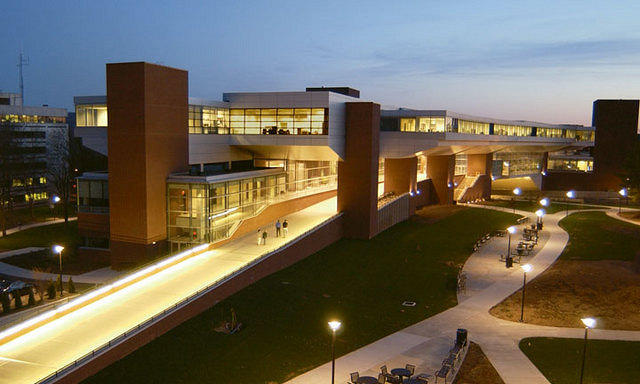
Contact us
The research group is located in the Westgate Building [about] at Penn State. Please read the FAQ for answers to some common questions.
James Z. Wang, Distinguished ProfessorCollege of Information Sciences and Technology
Westgate Building, Penn State, University Park, PA 16802
personal page +1-814-865-7889
(fax) +1-814-865-6426 jwang at ist dot psu dot edu
In the midst of difficulty lies opportunity. – Albert Einstein


